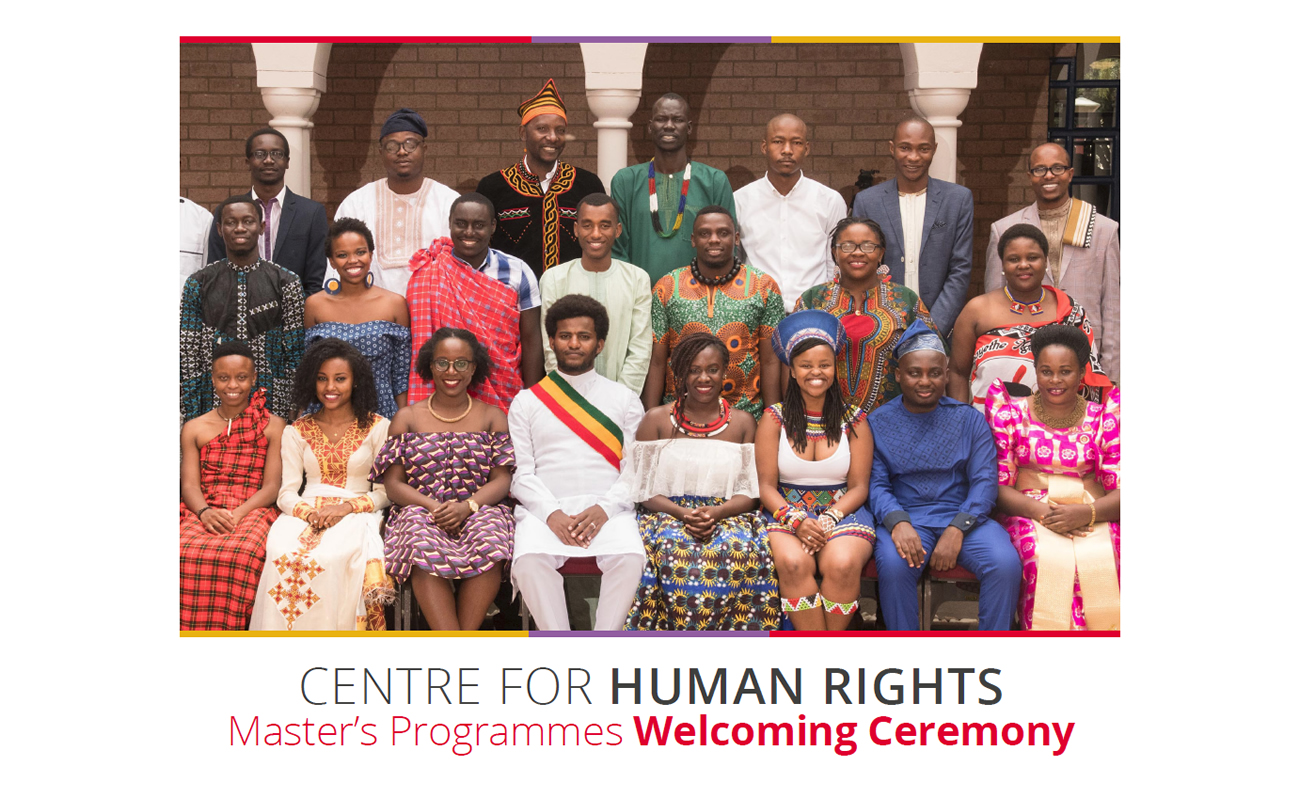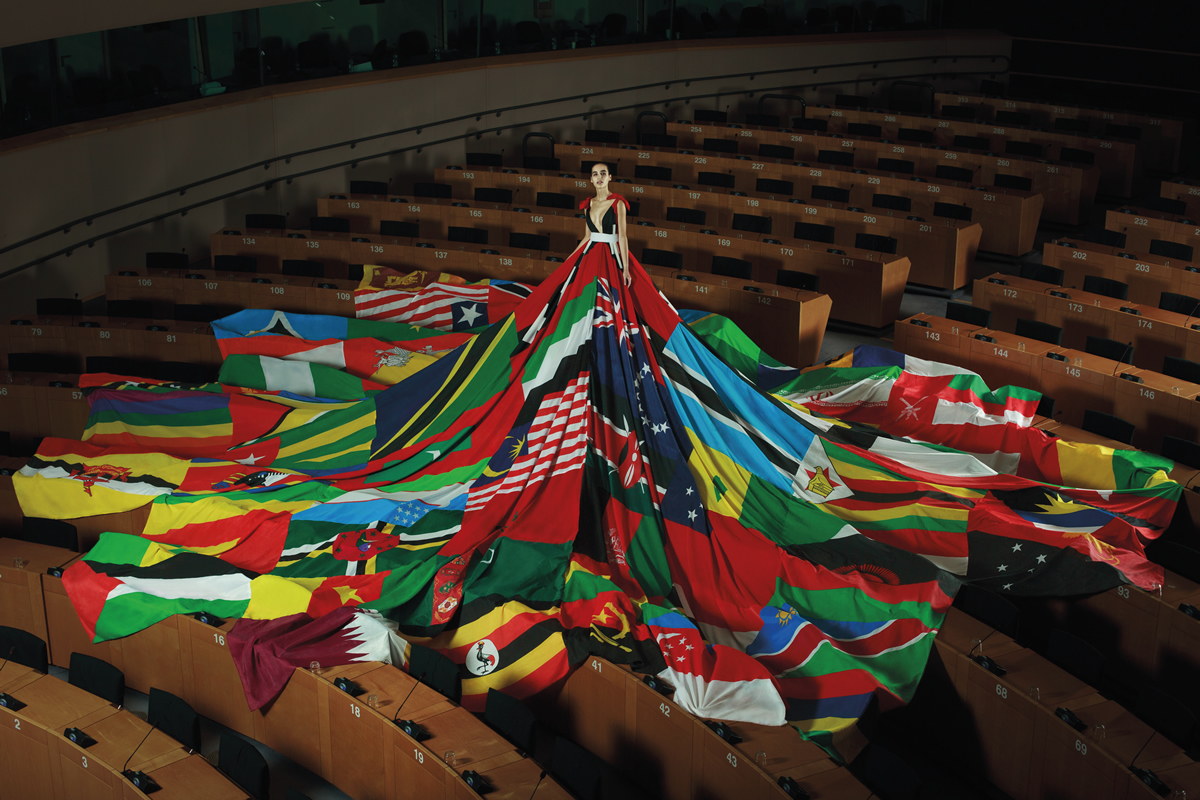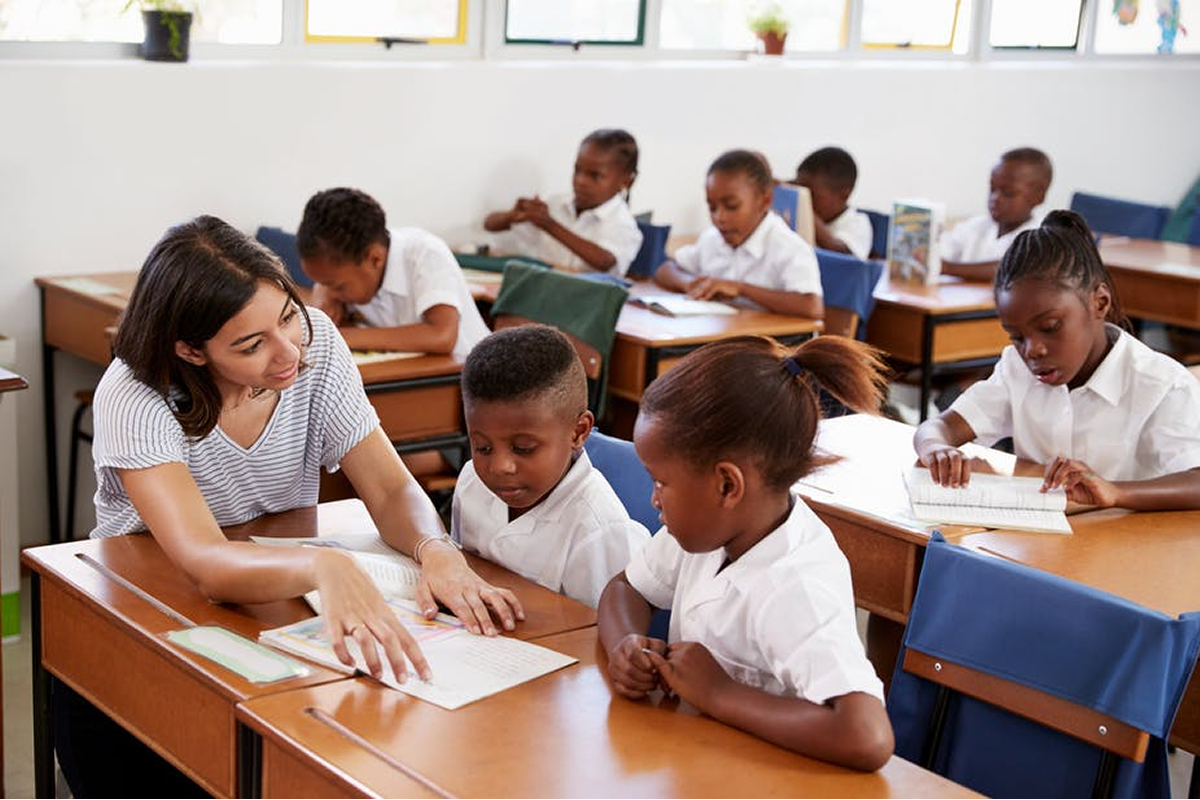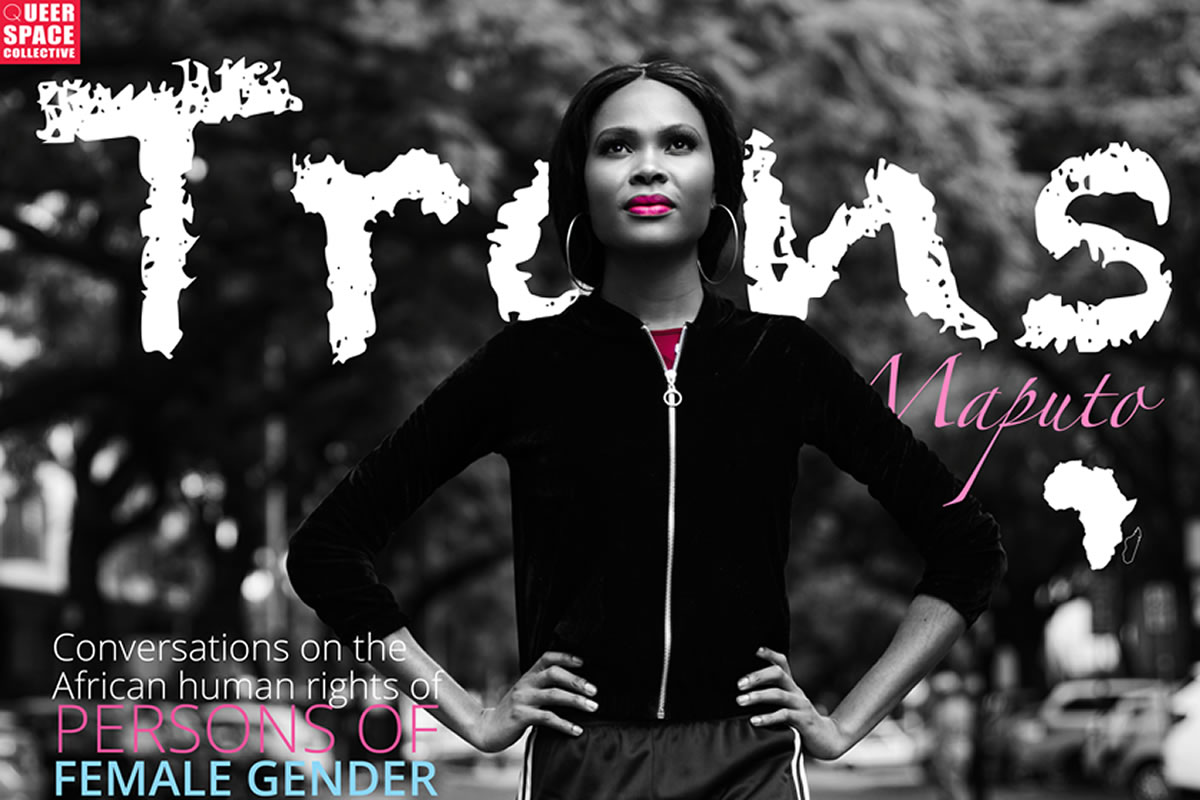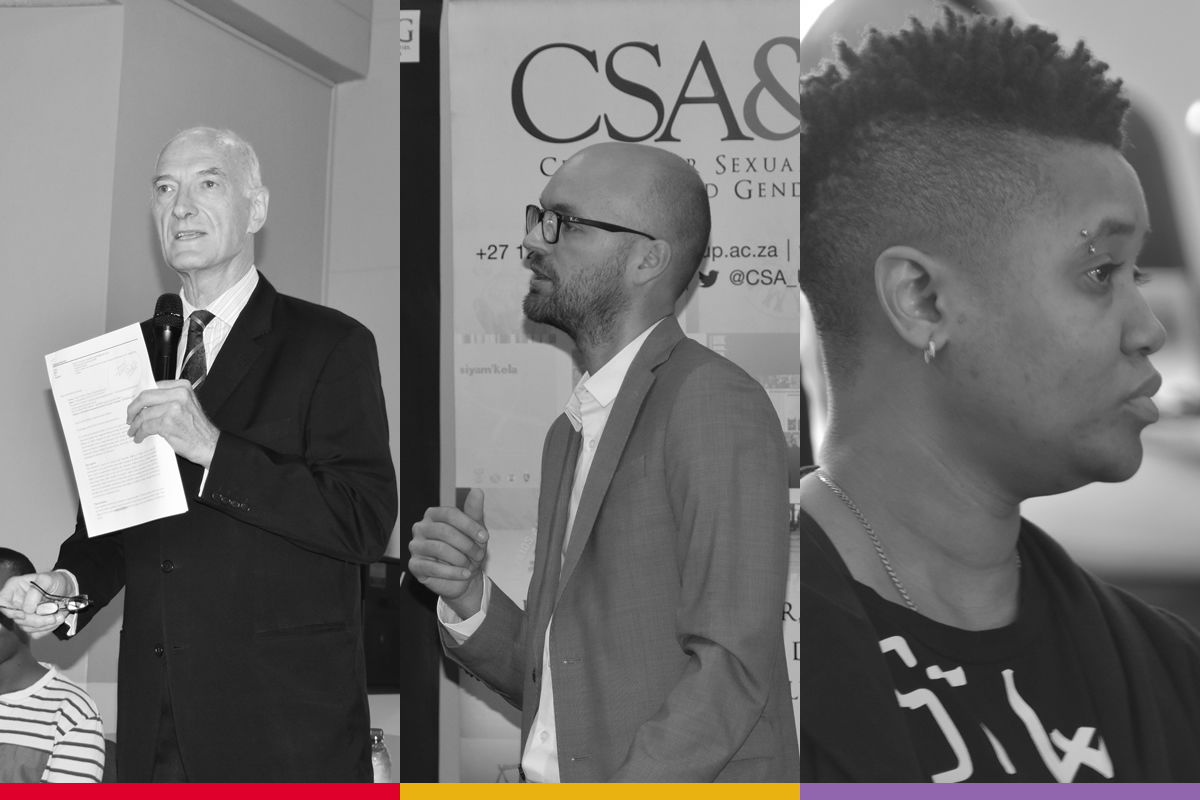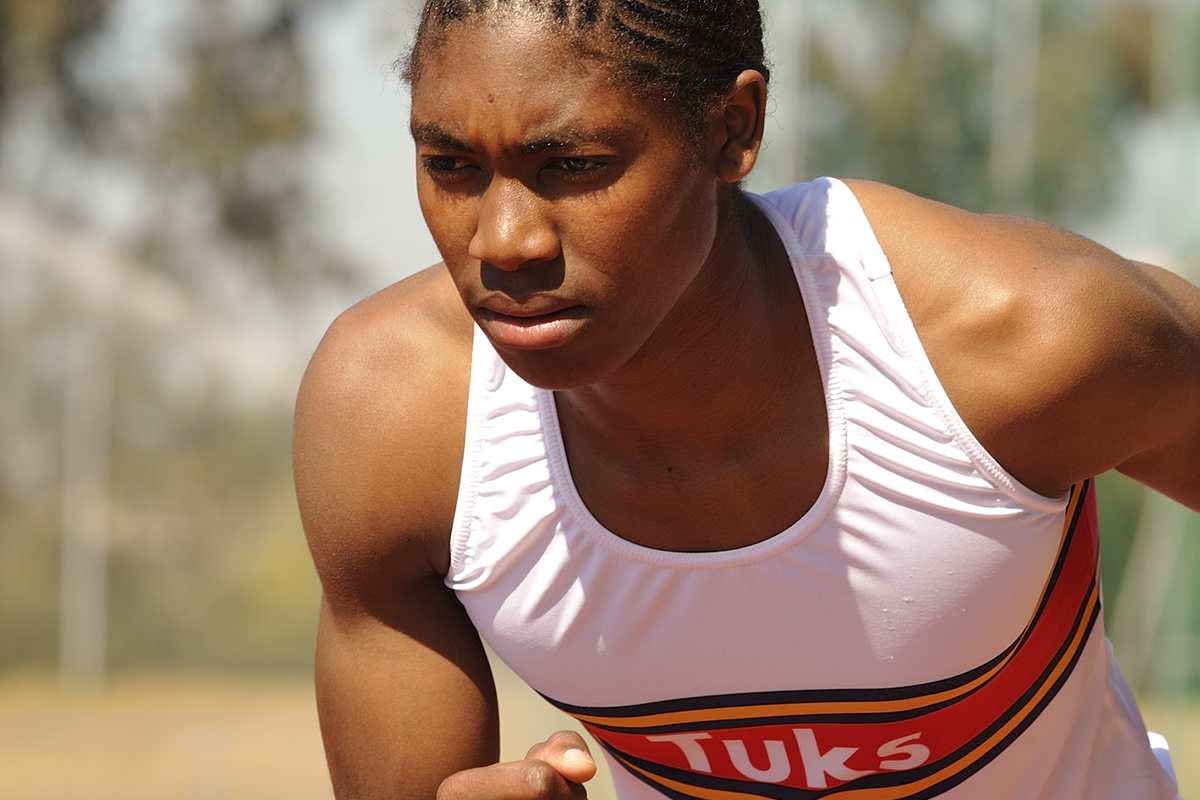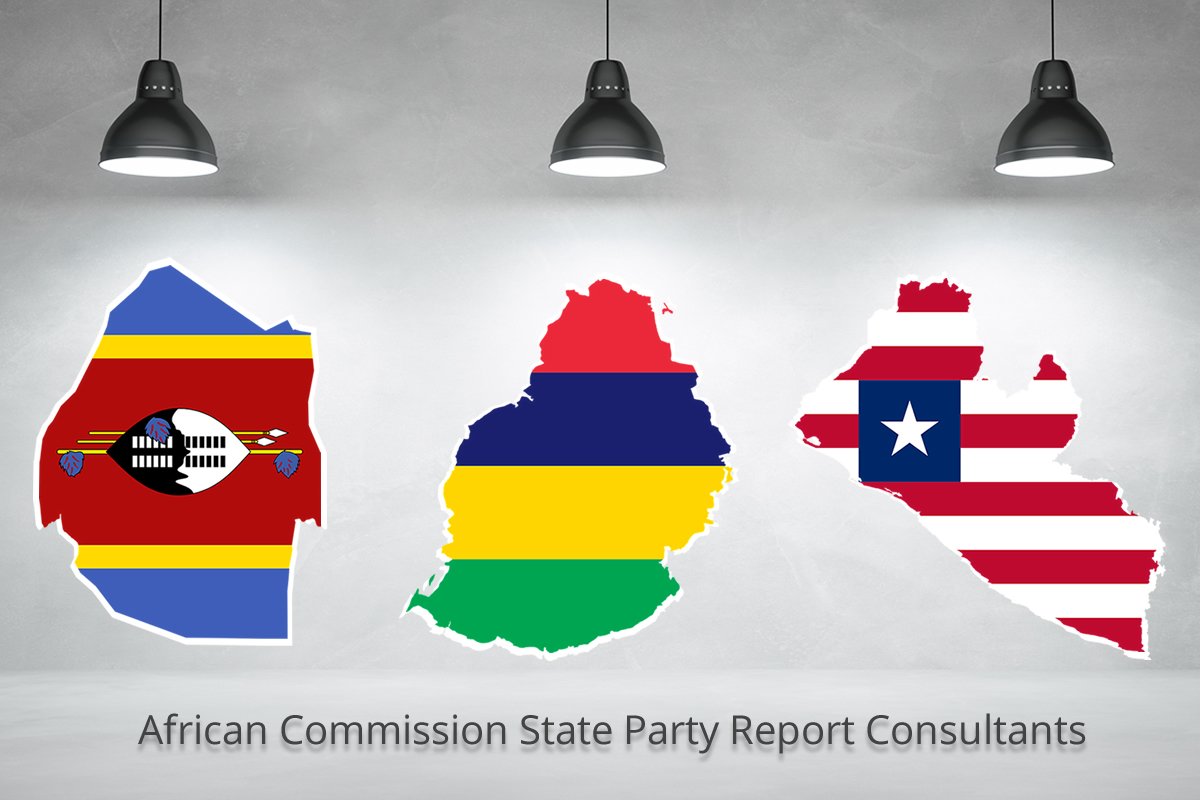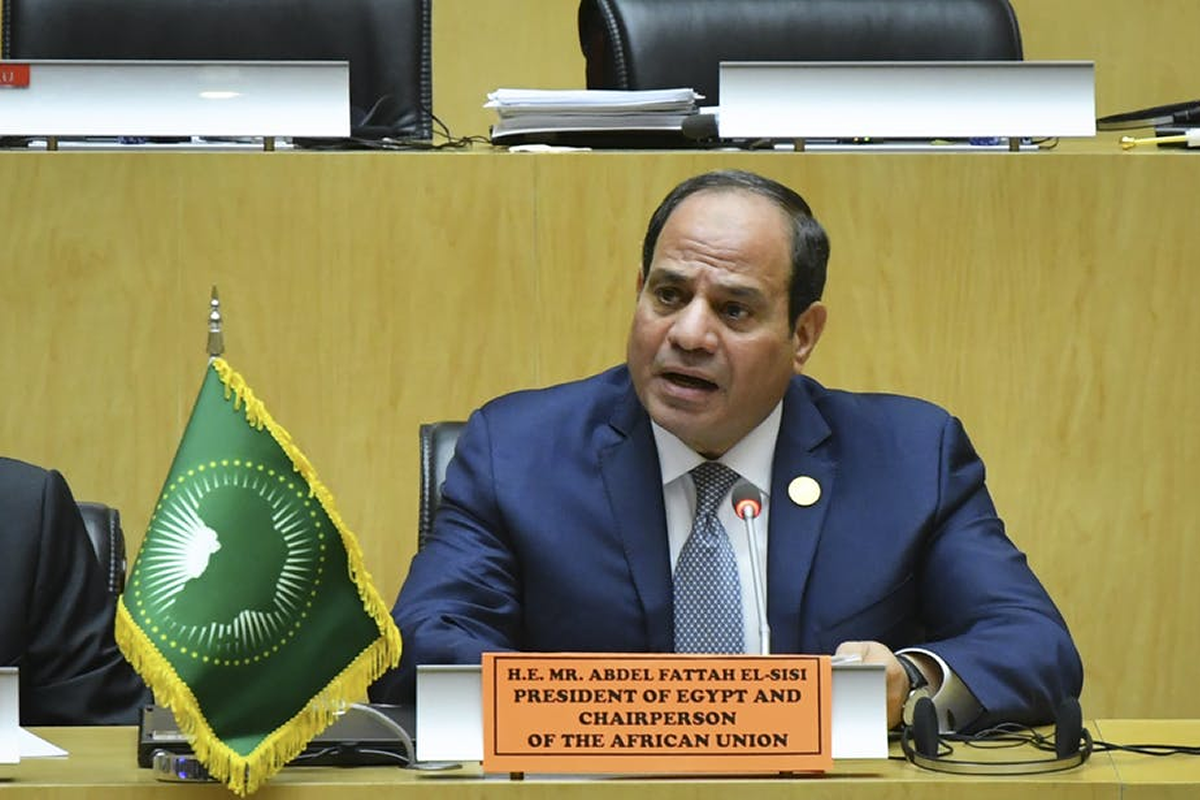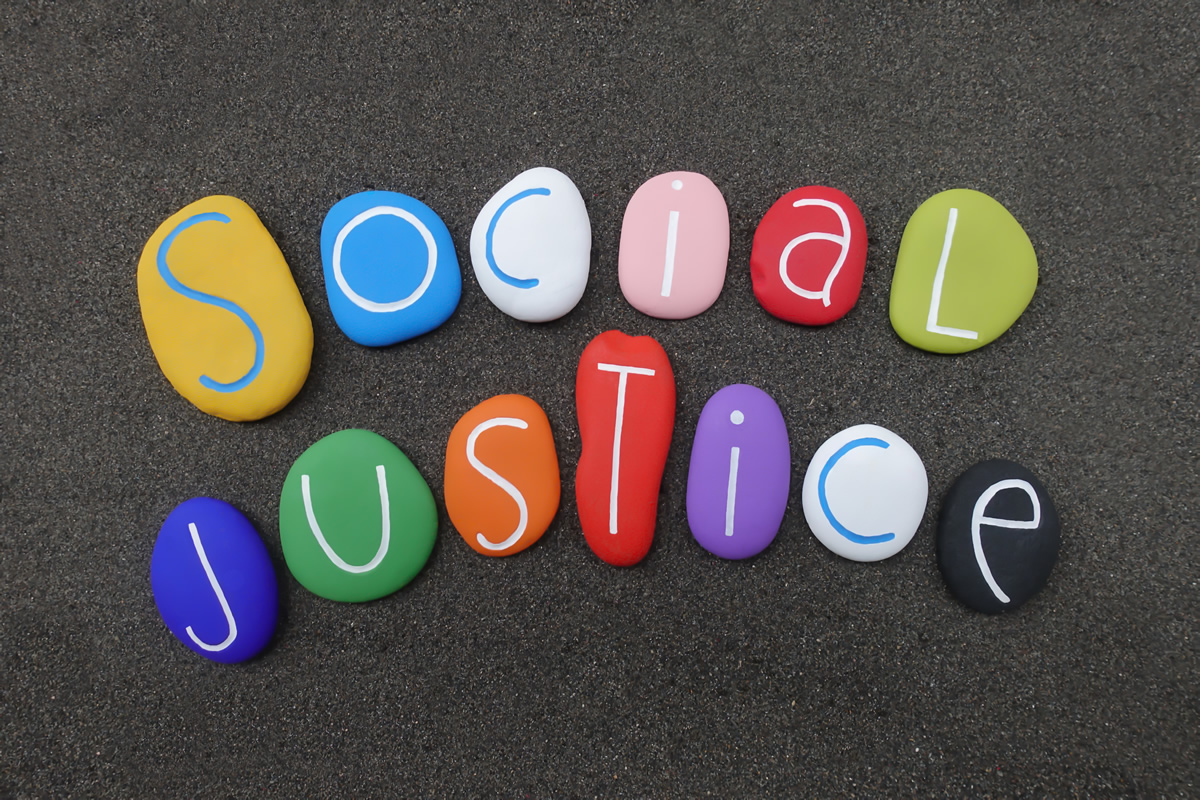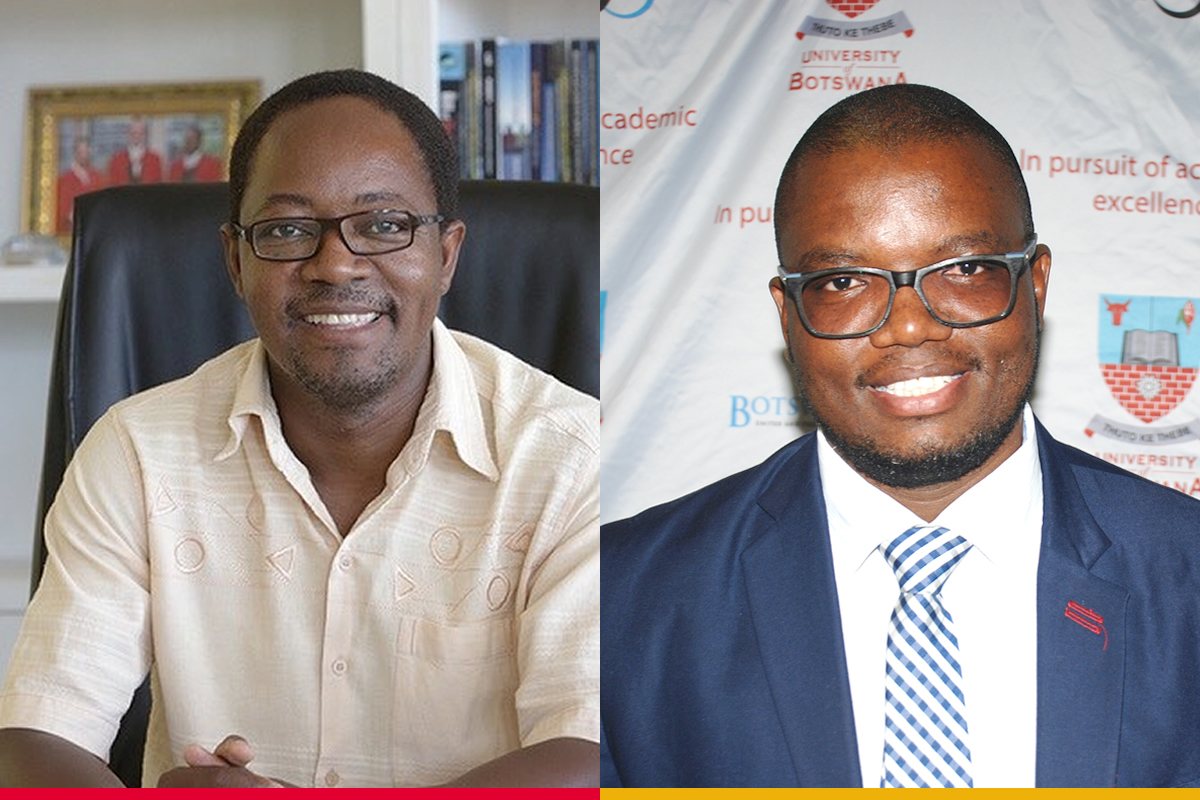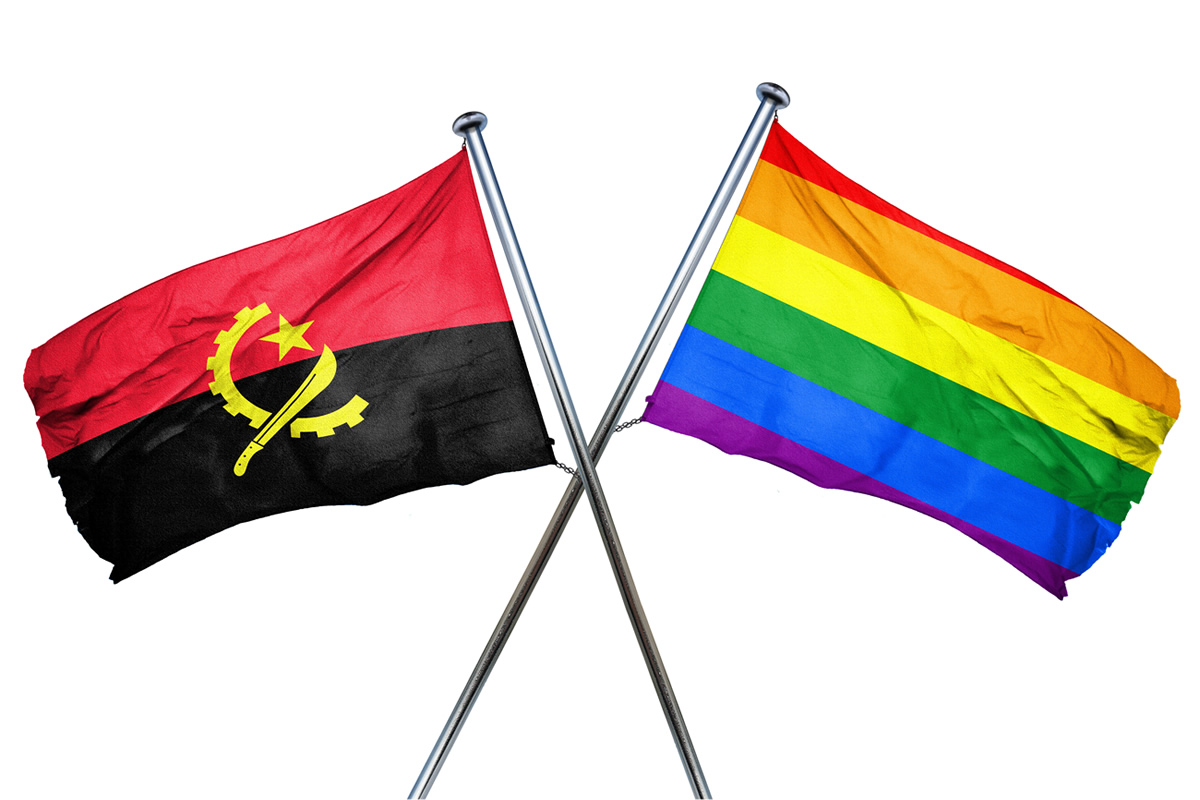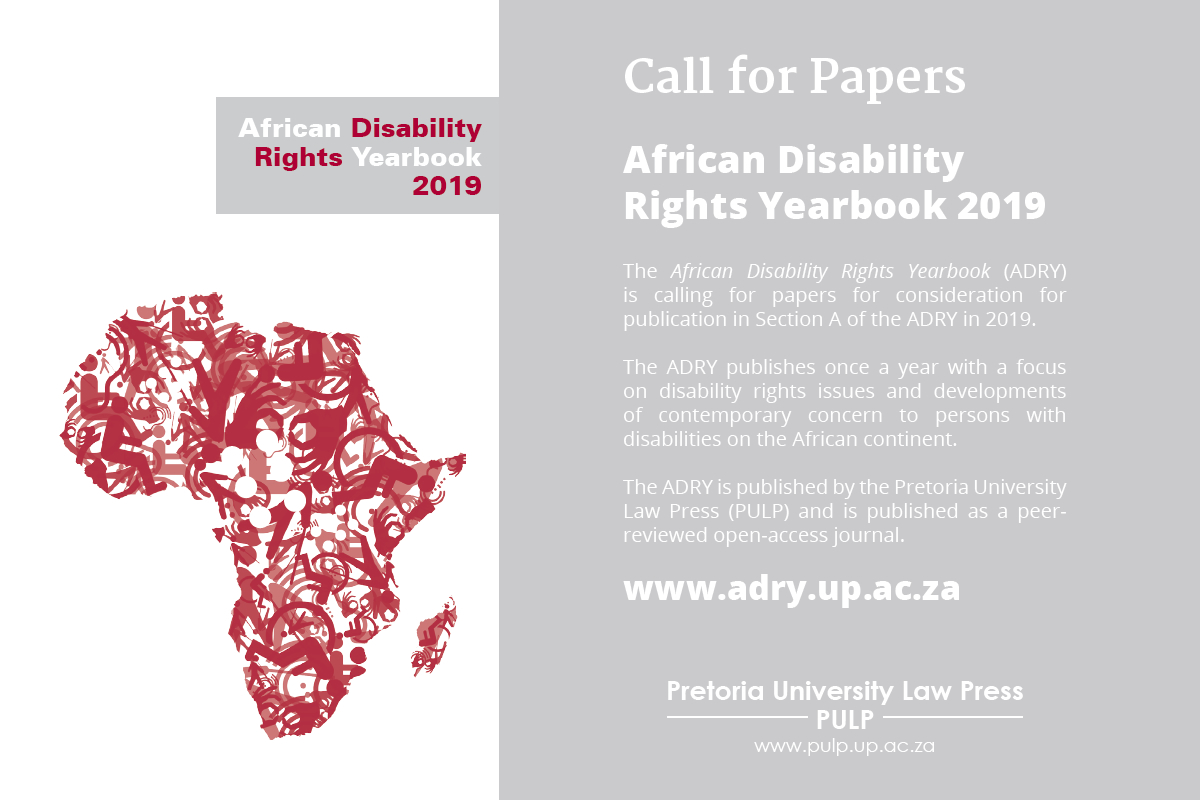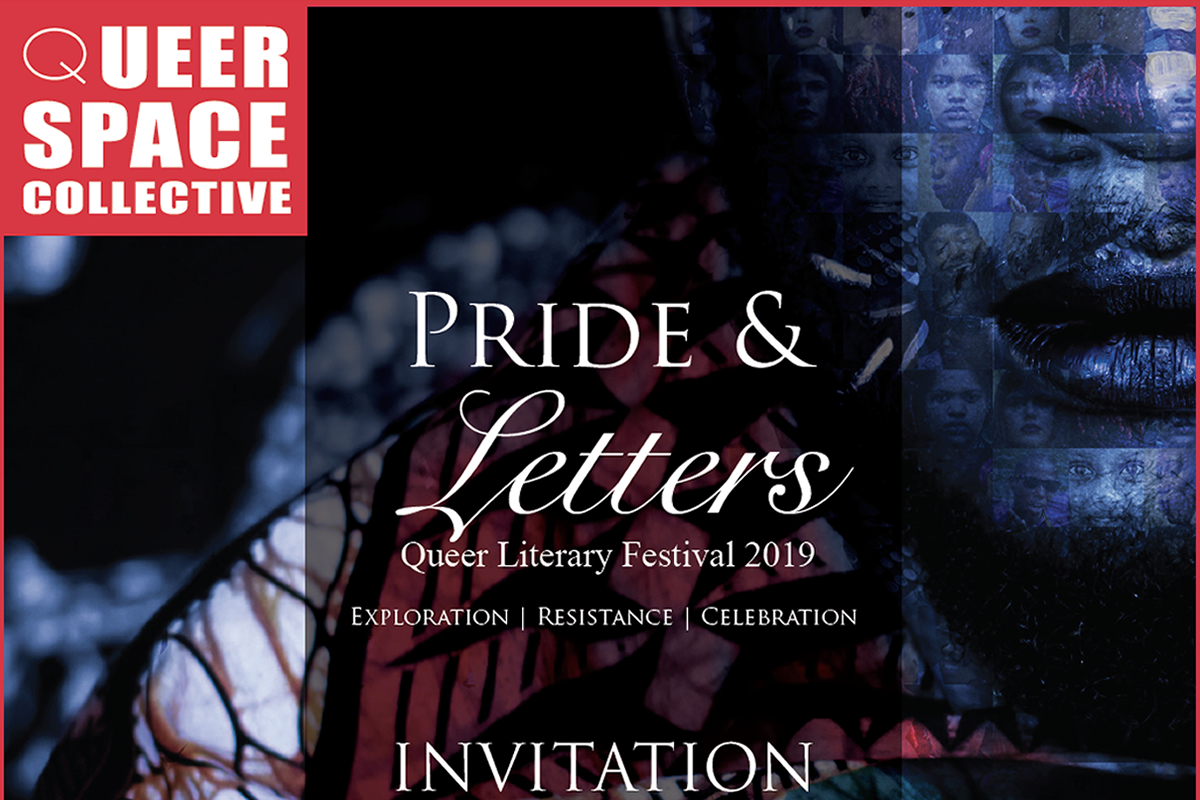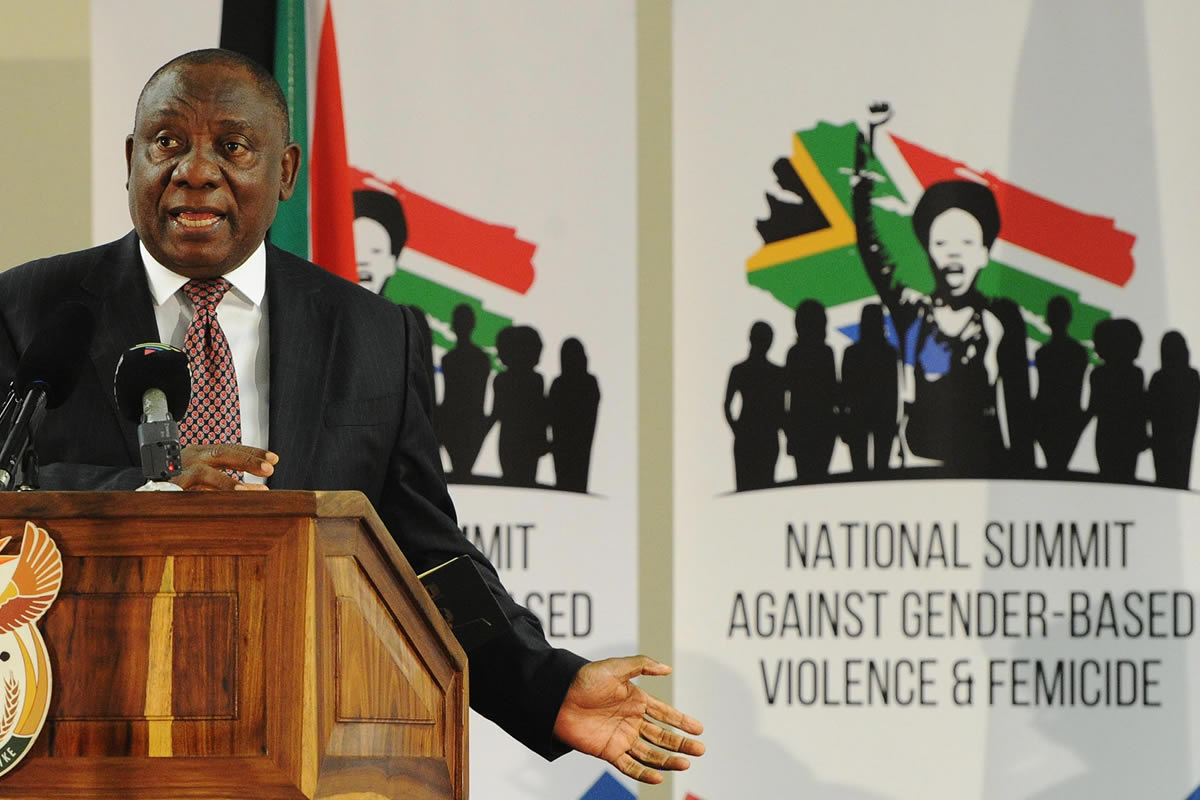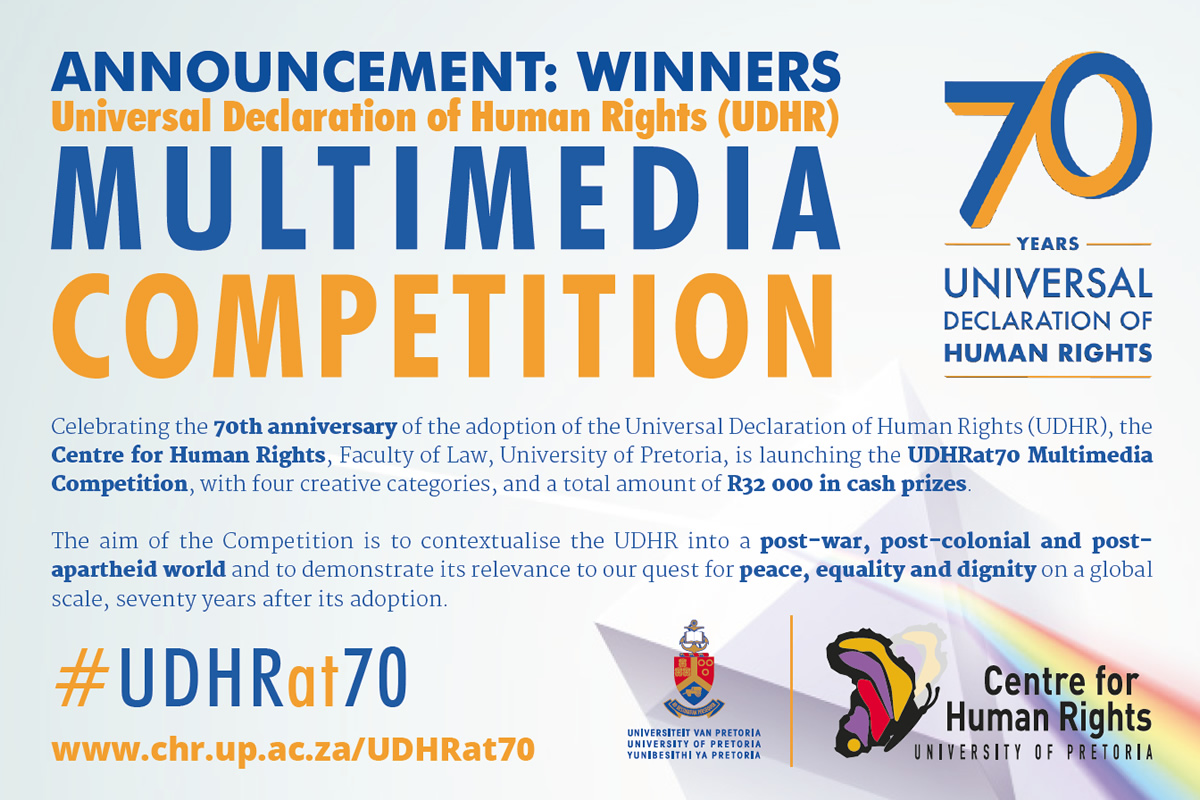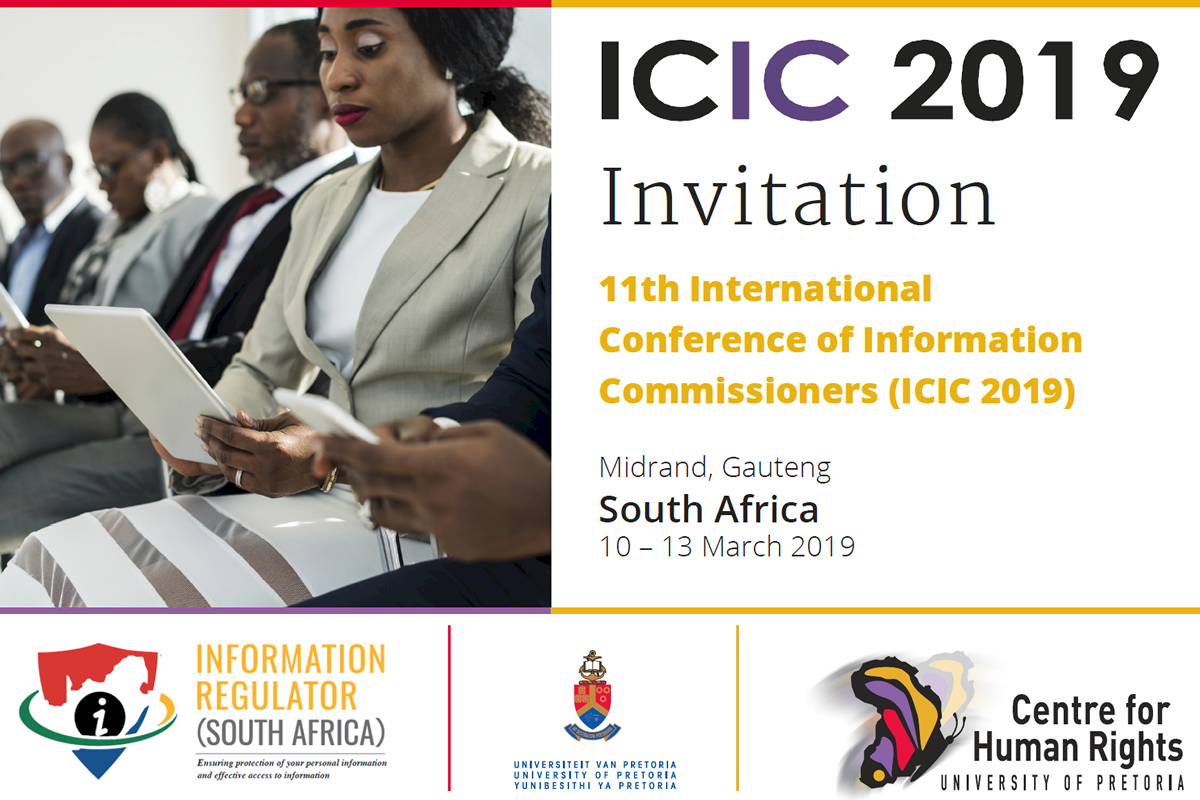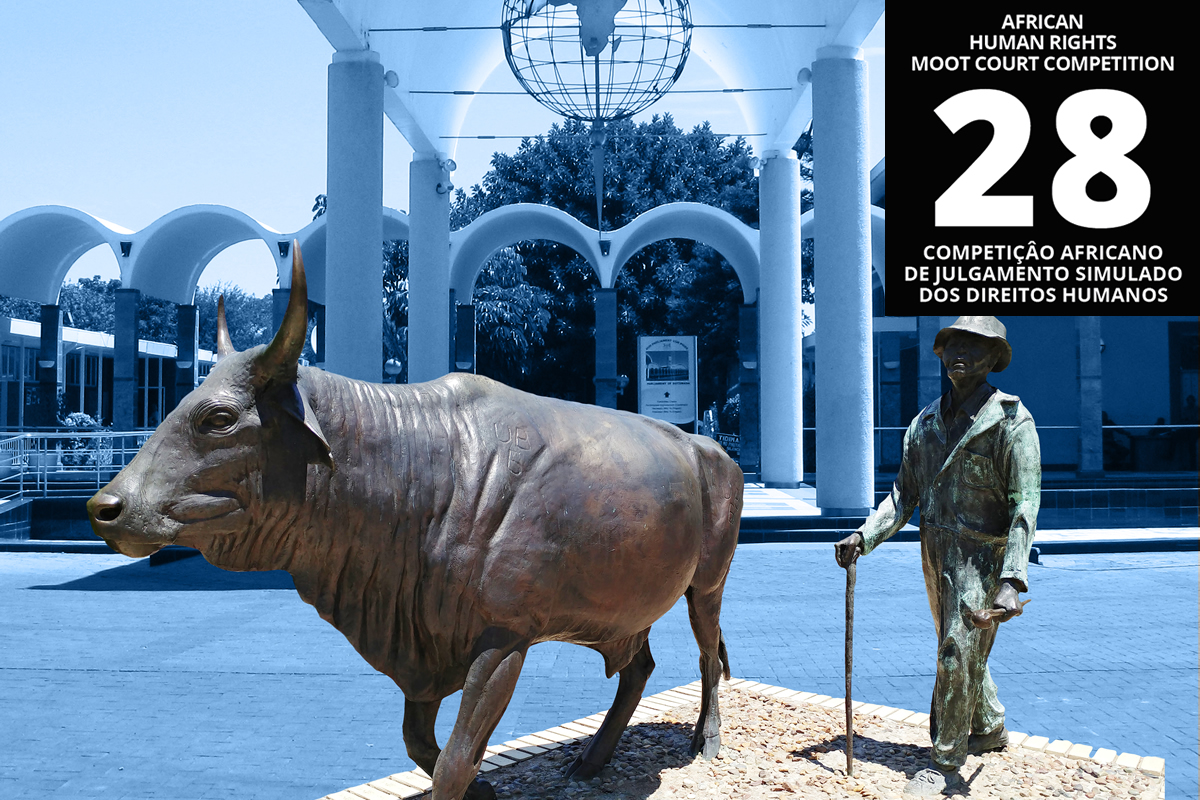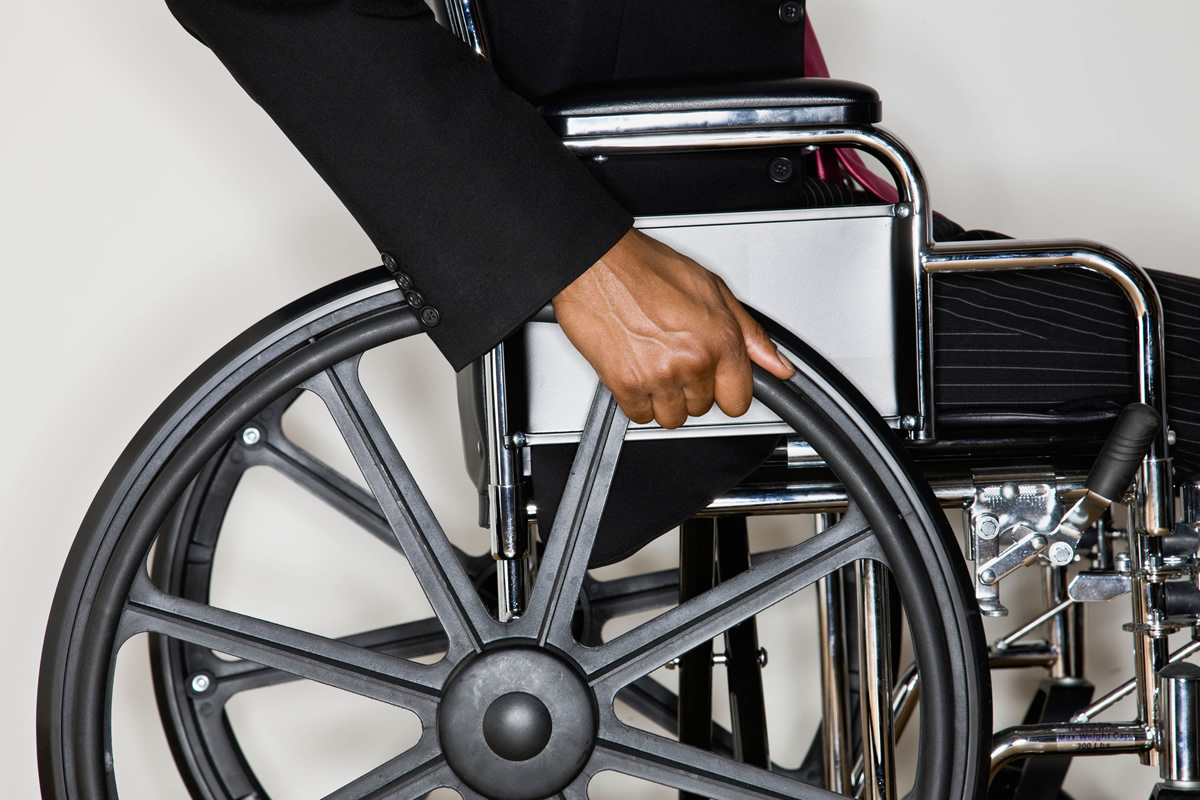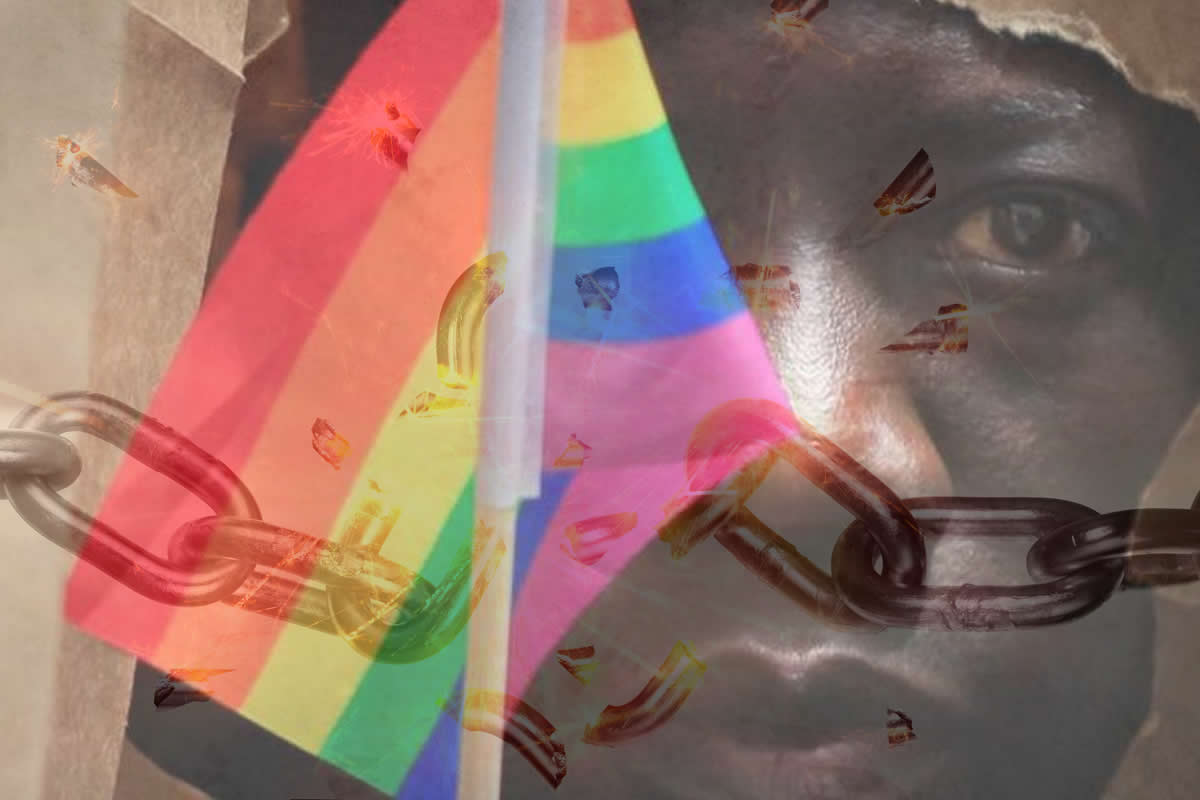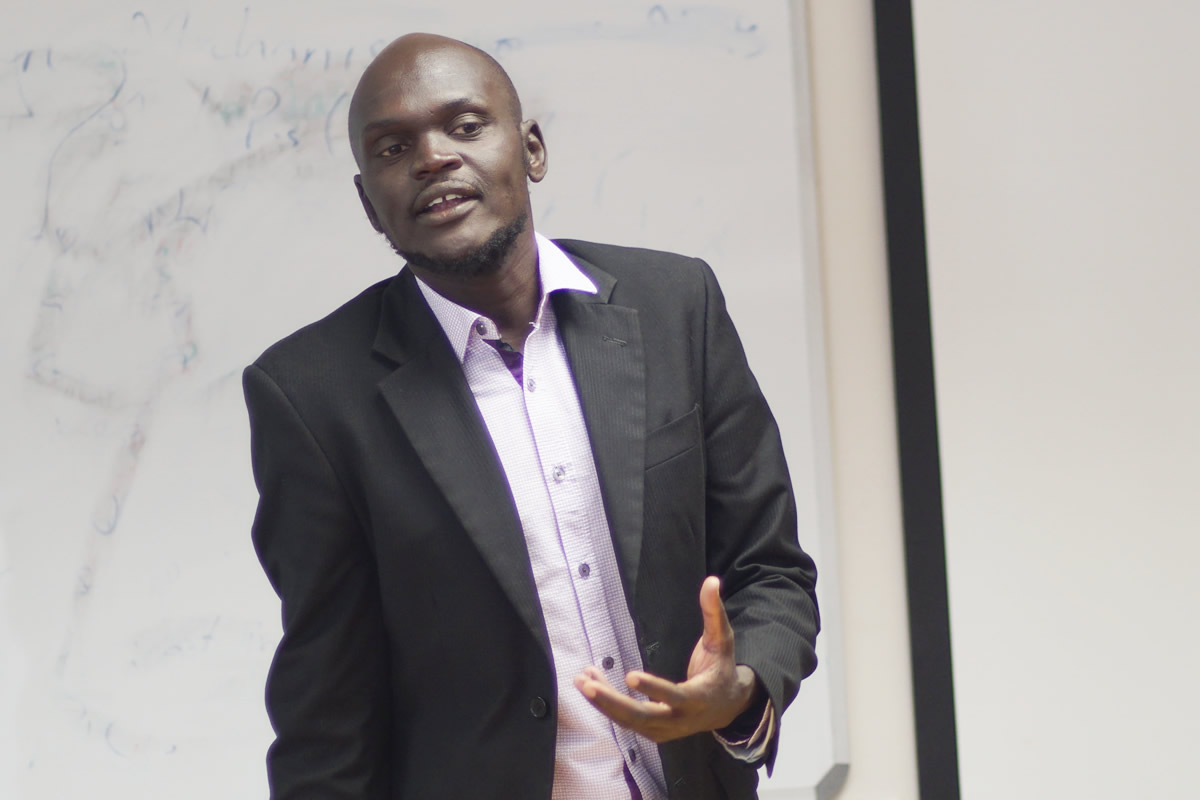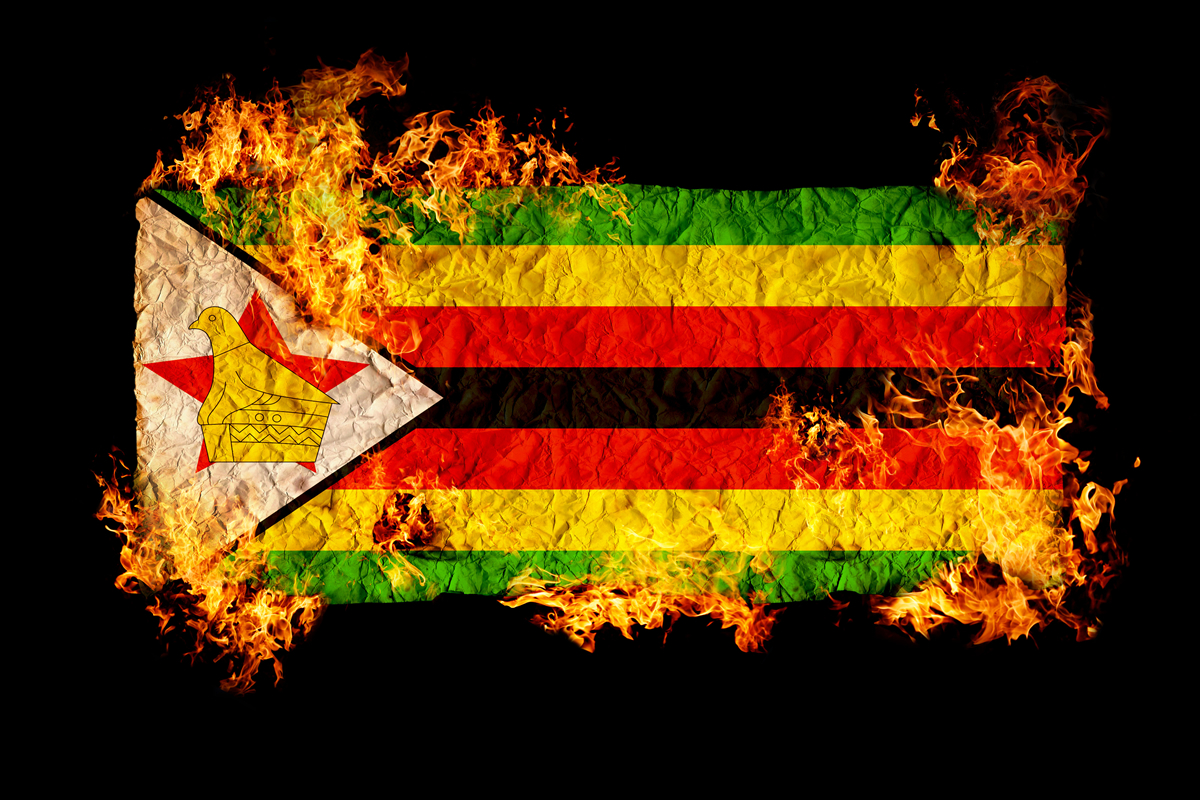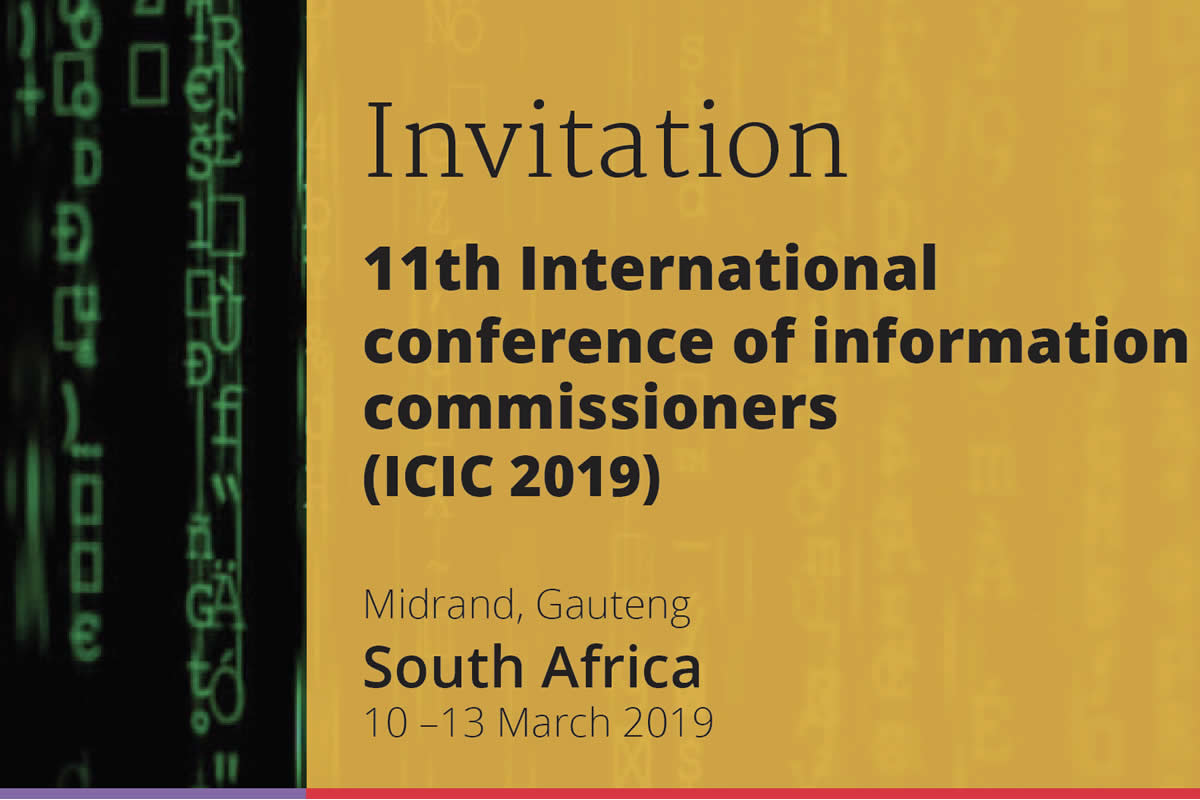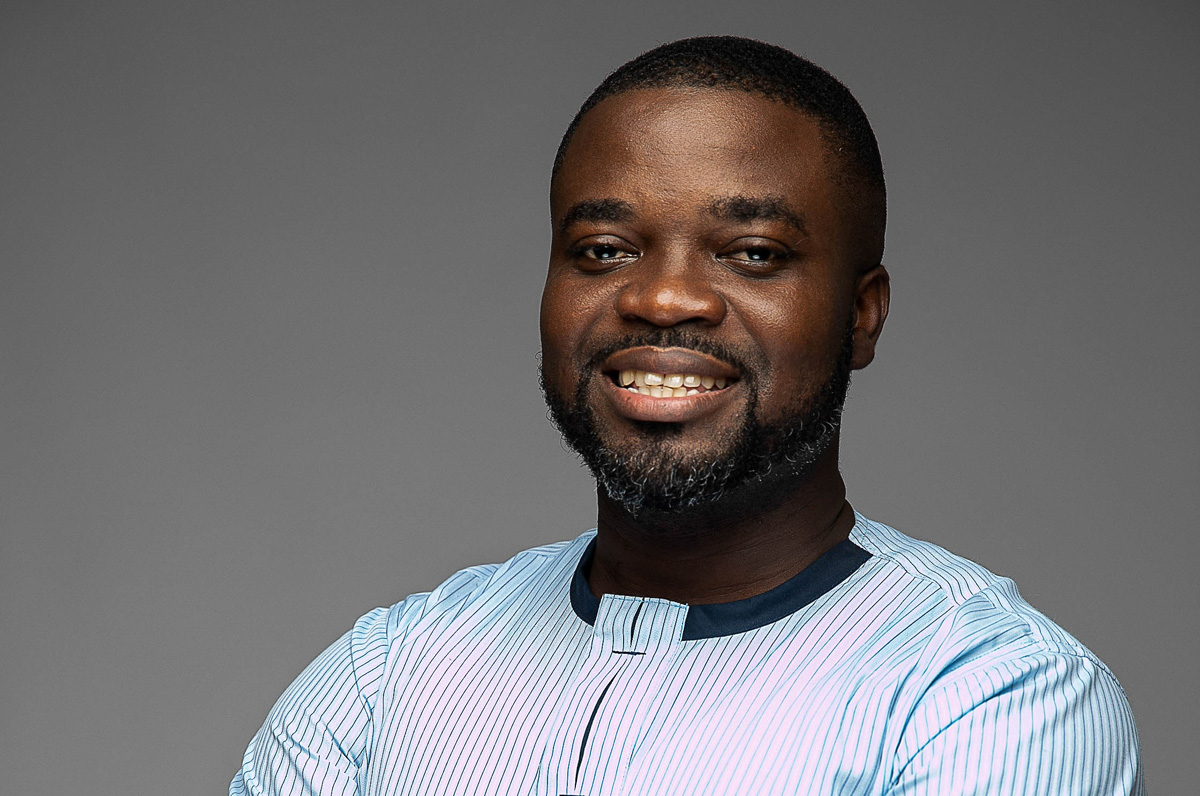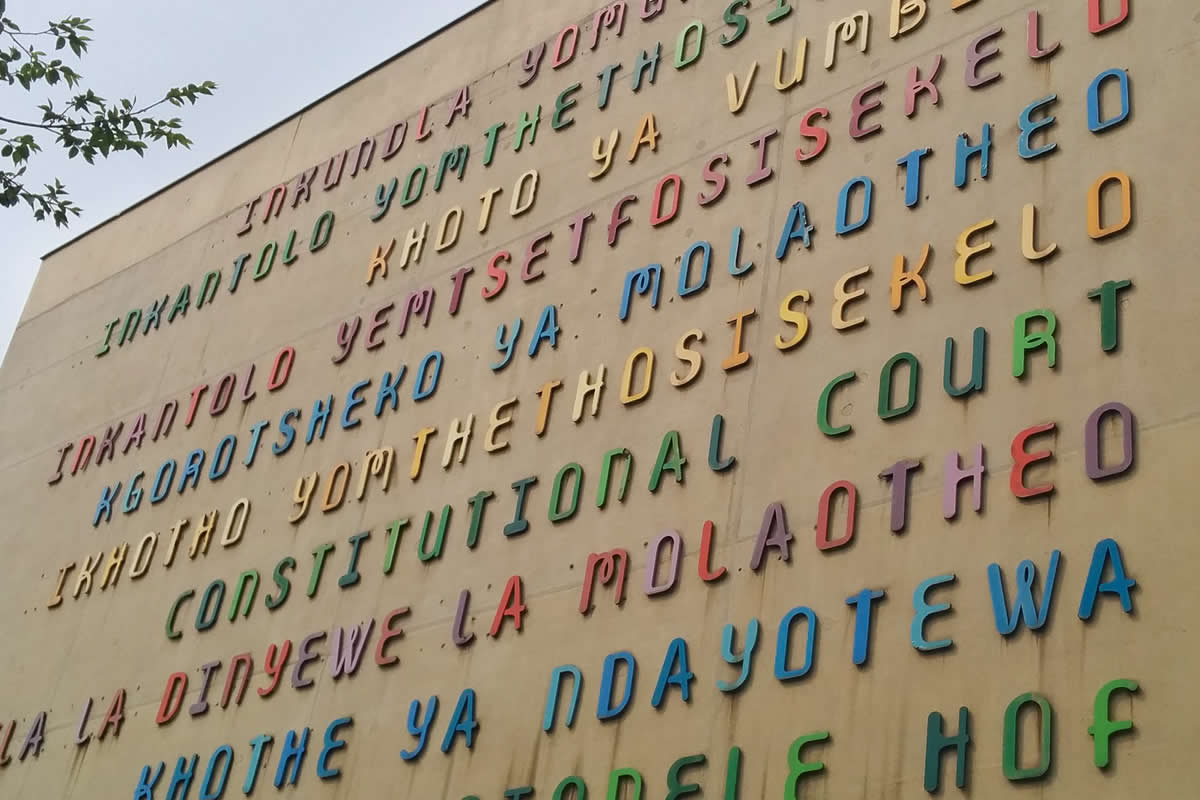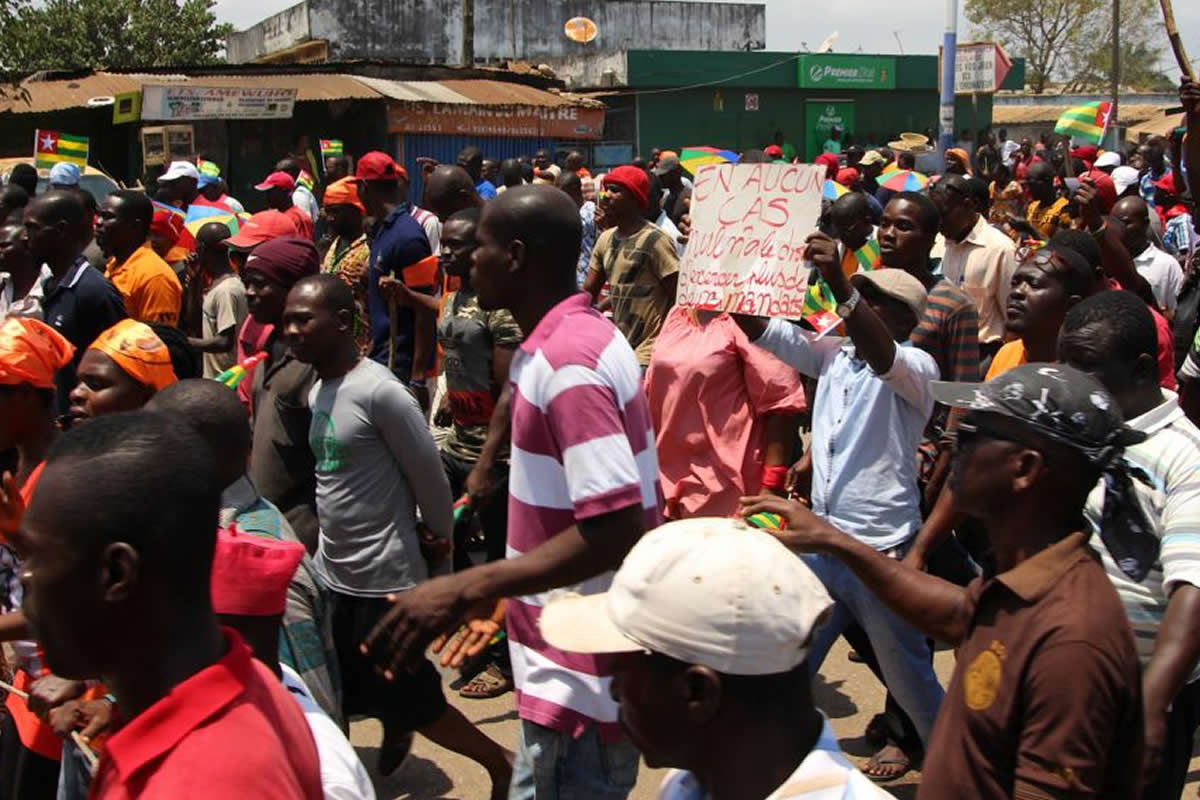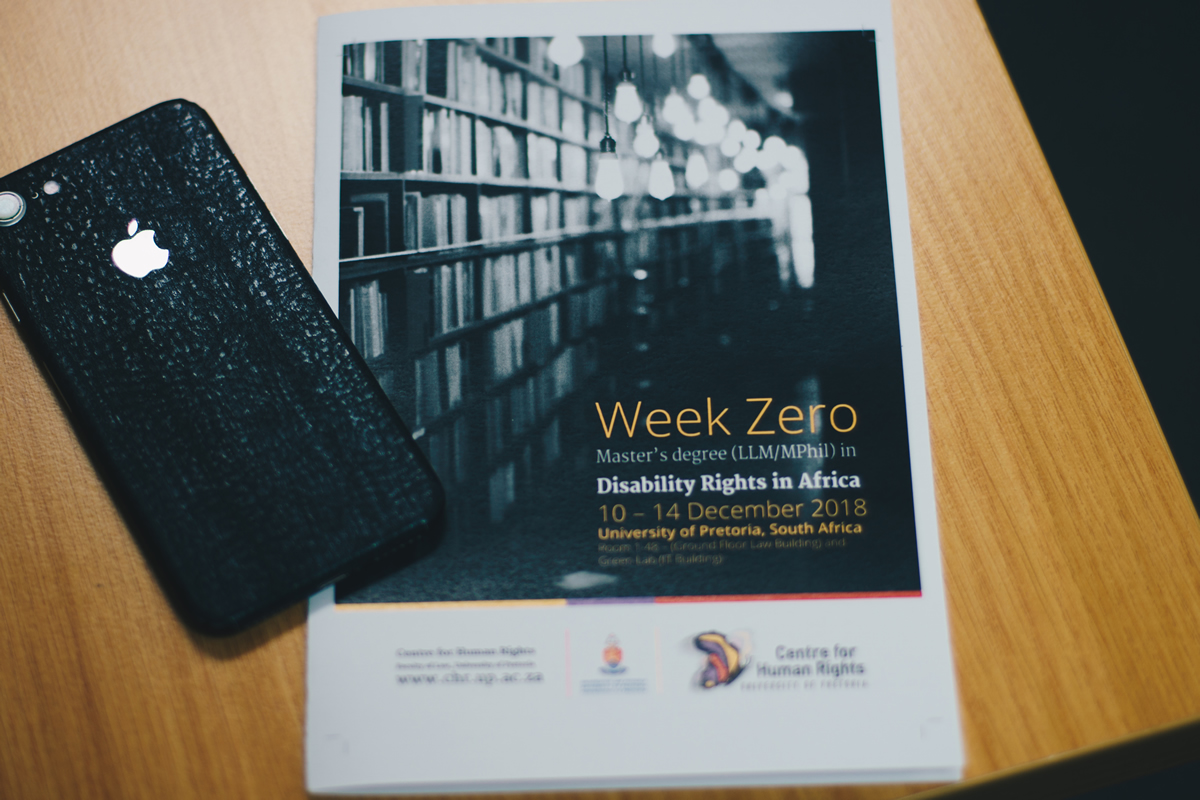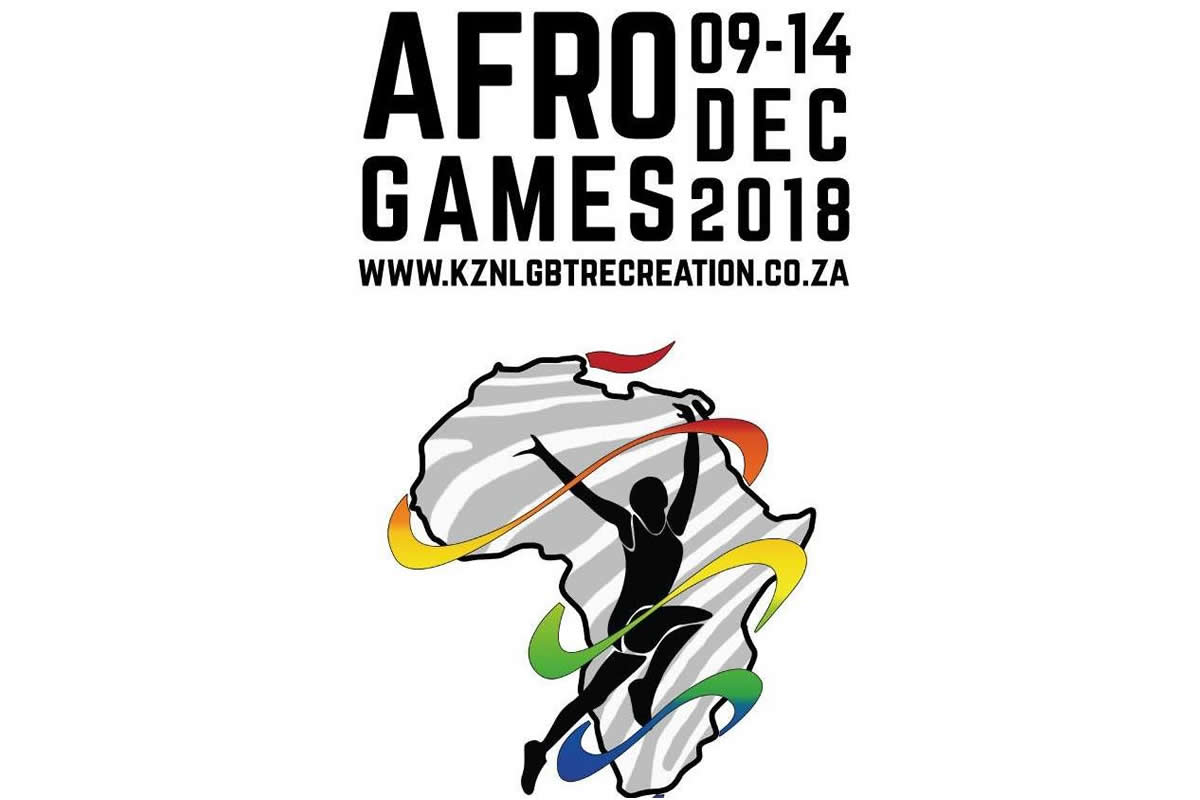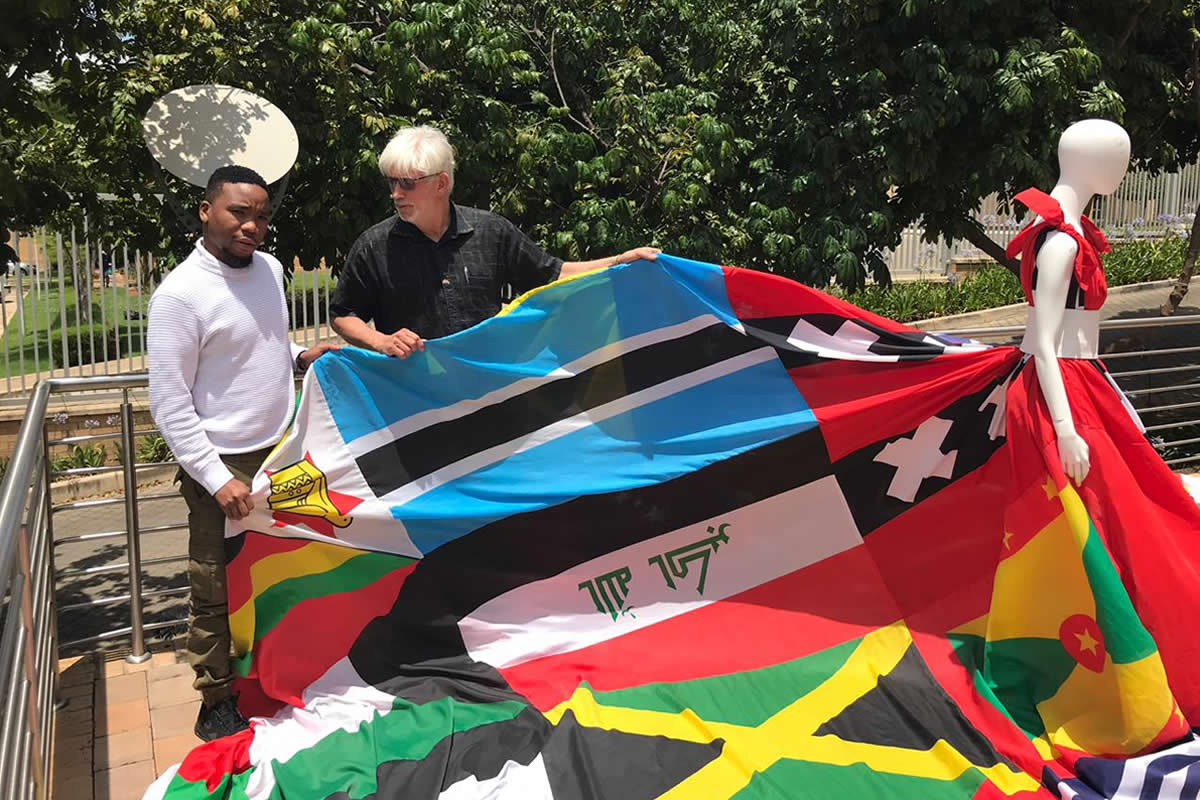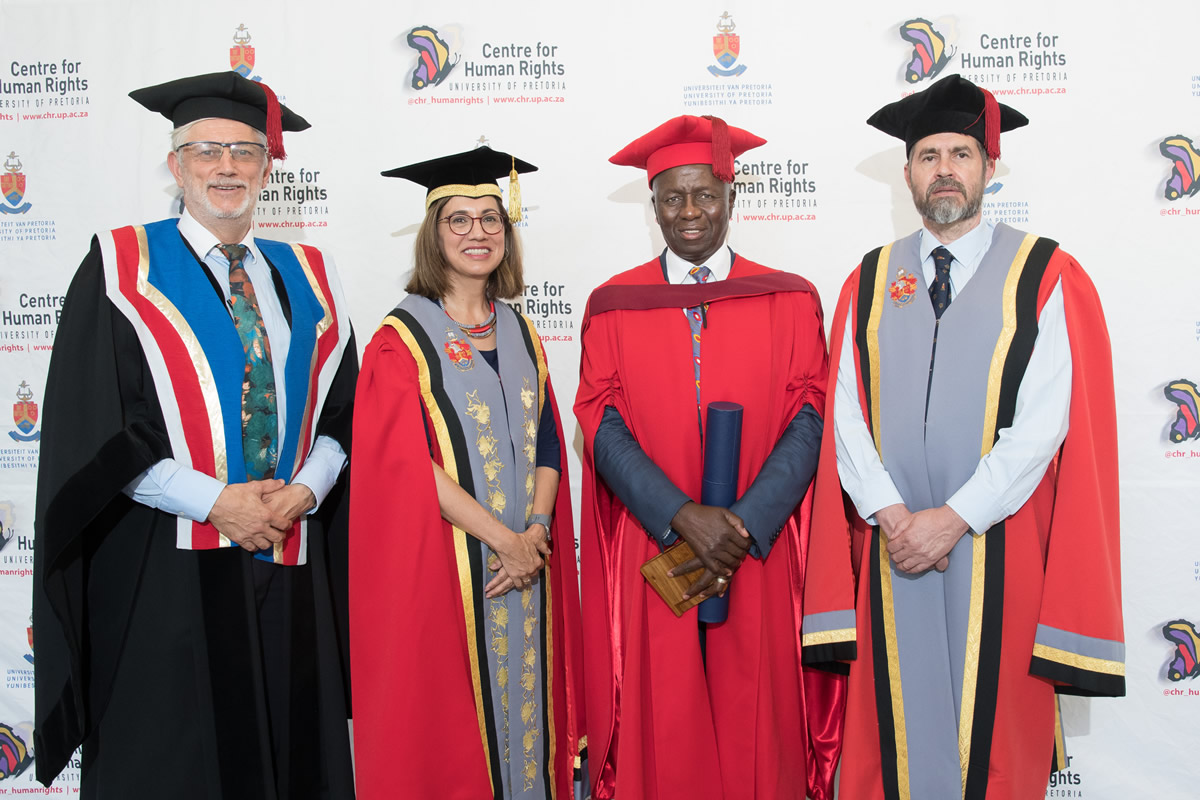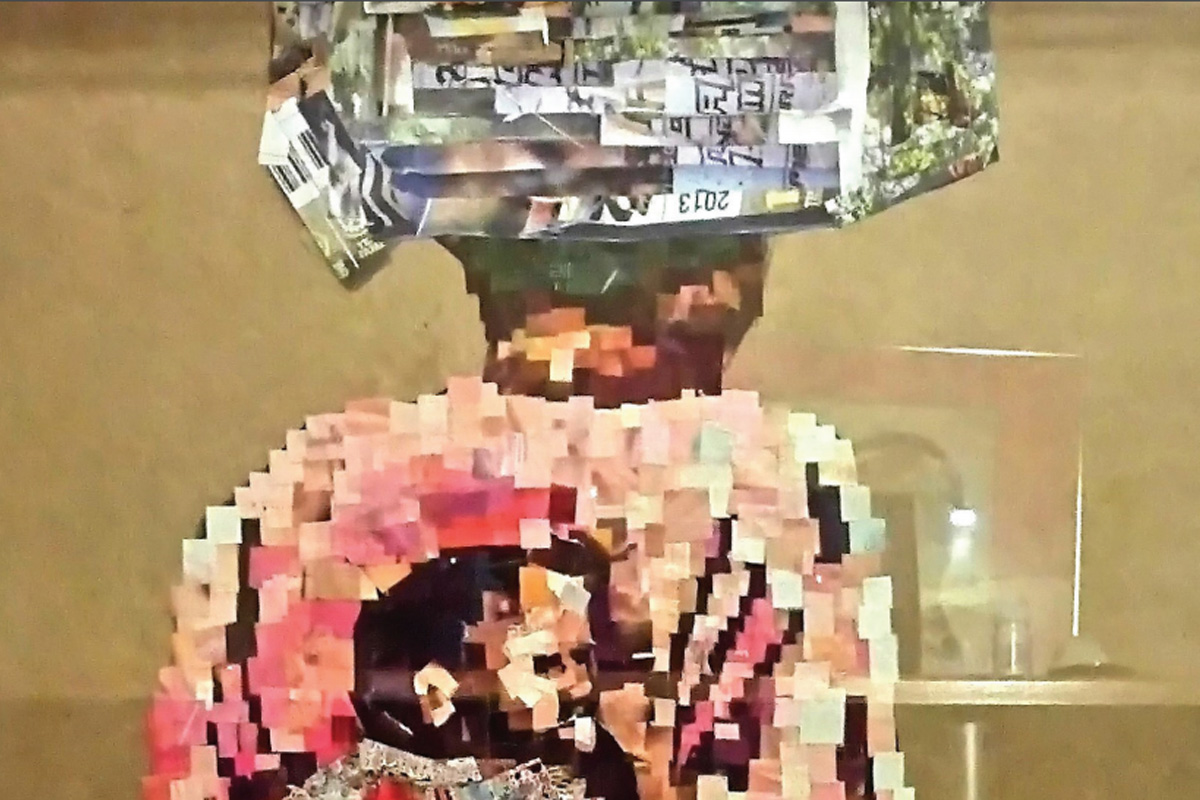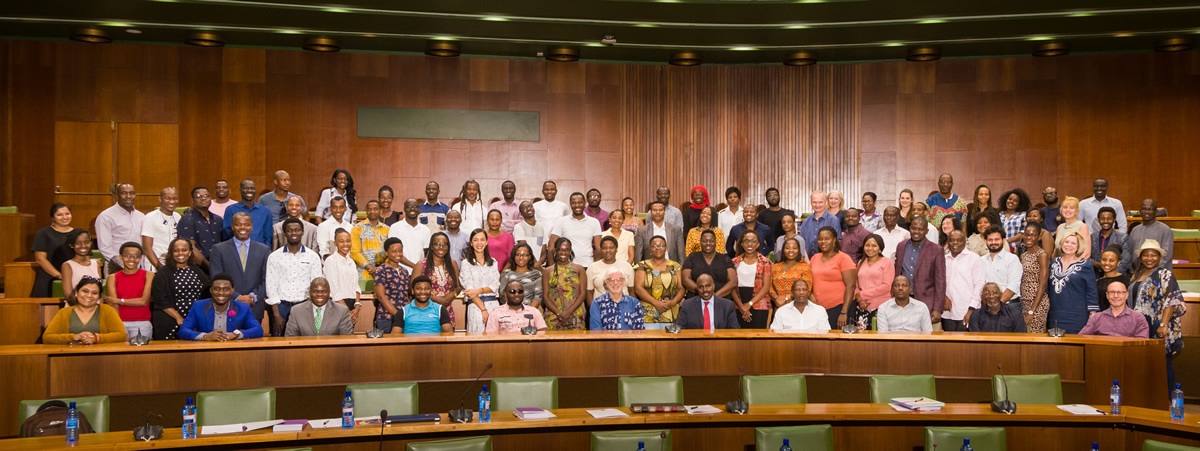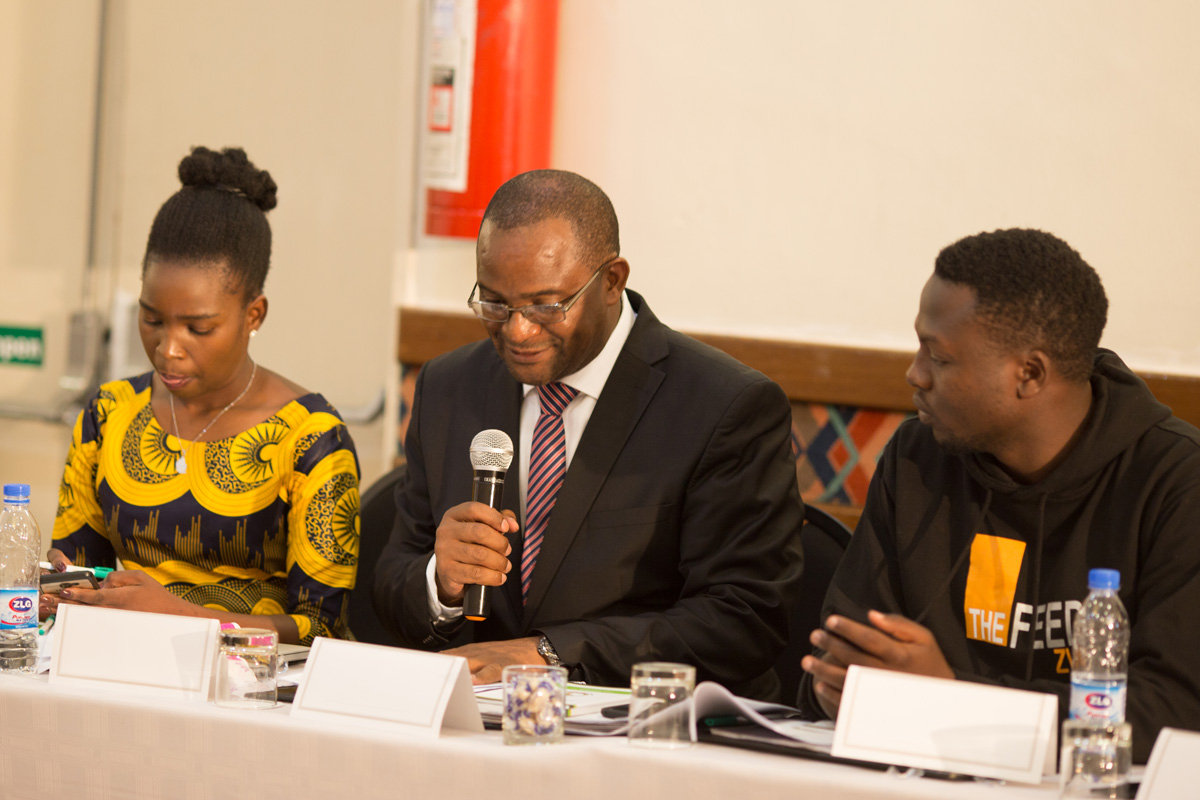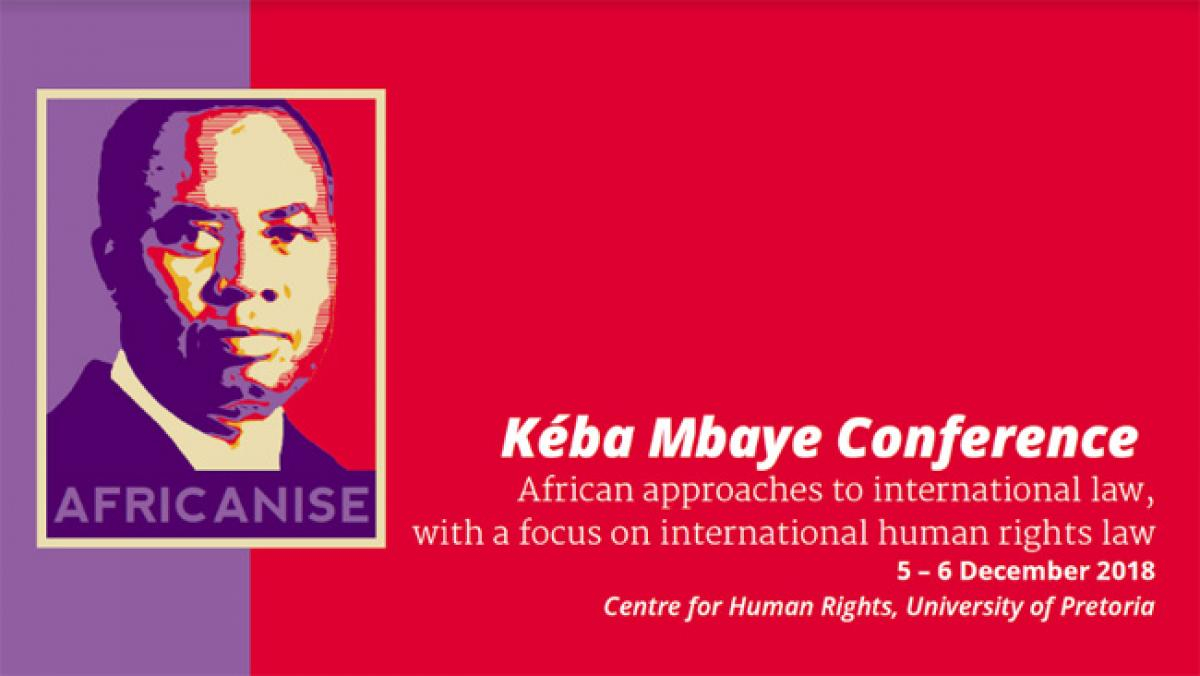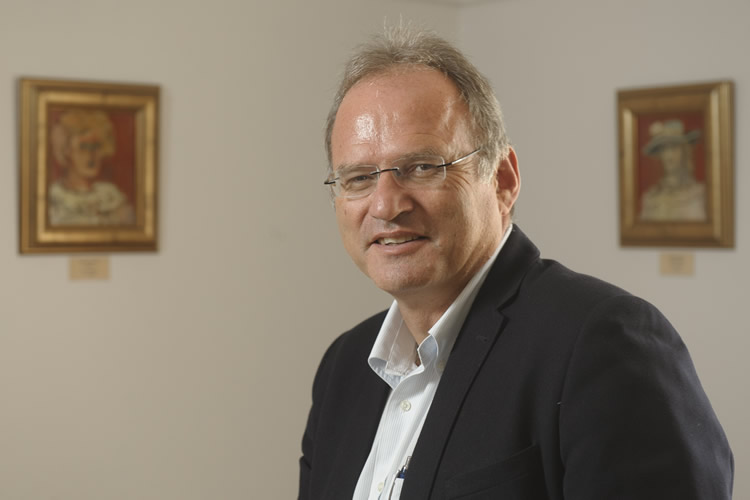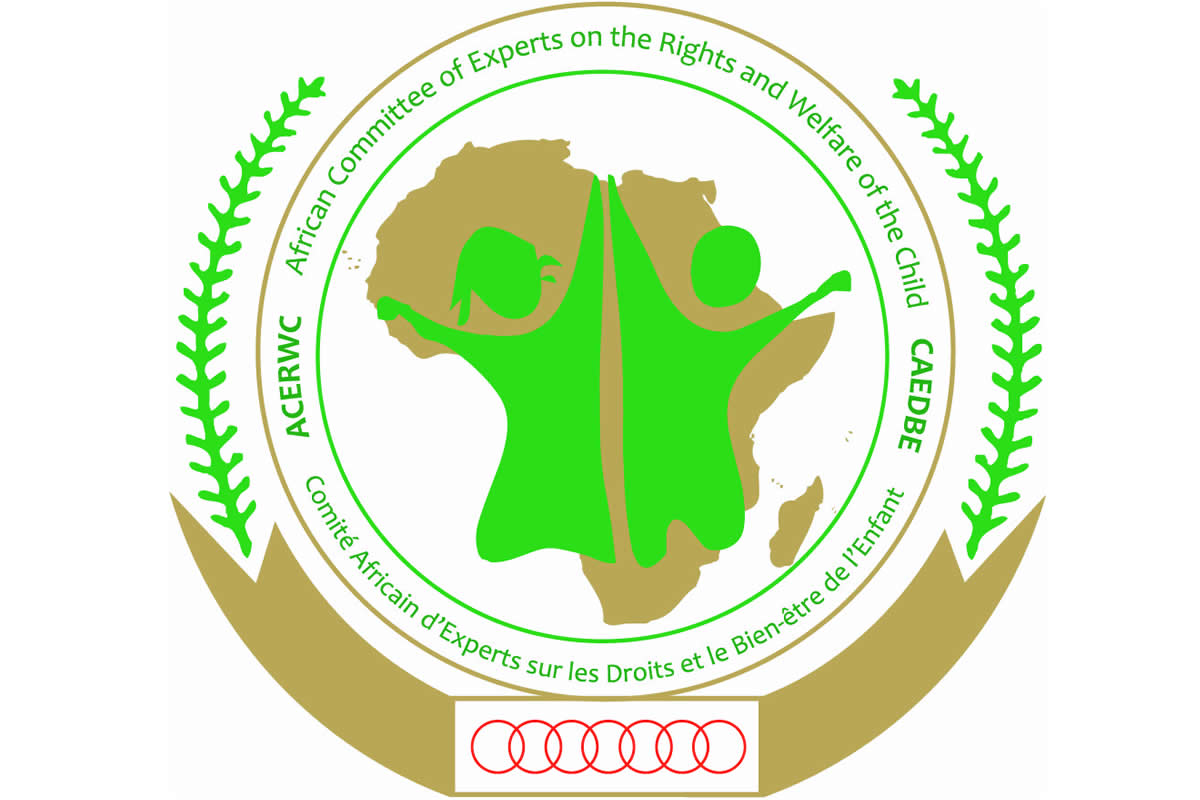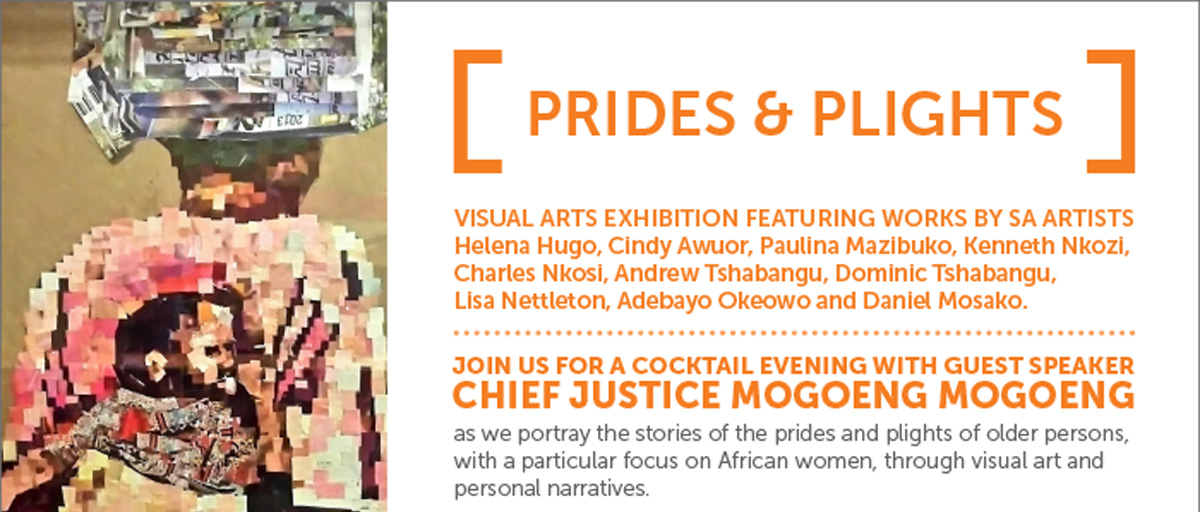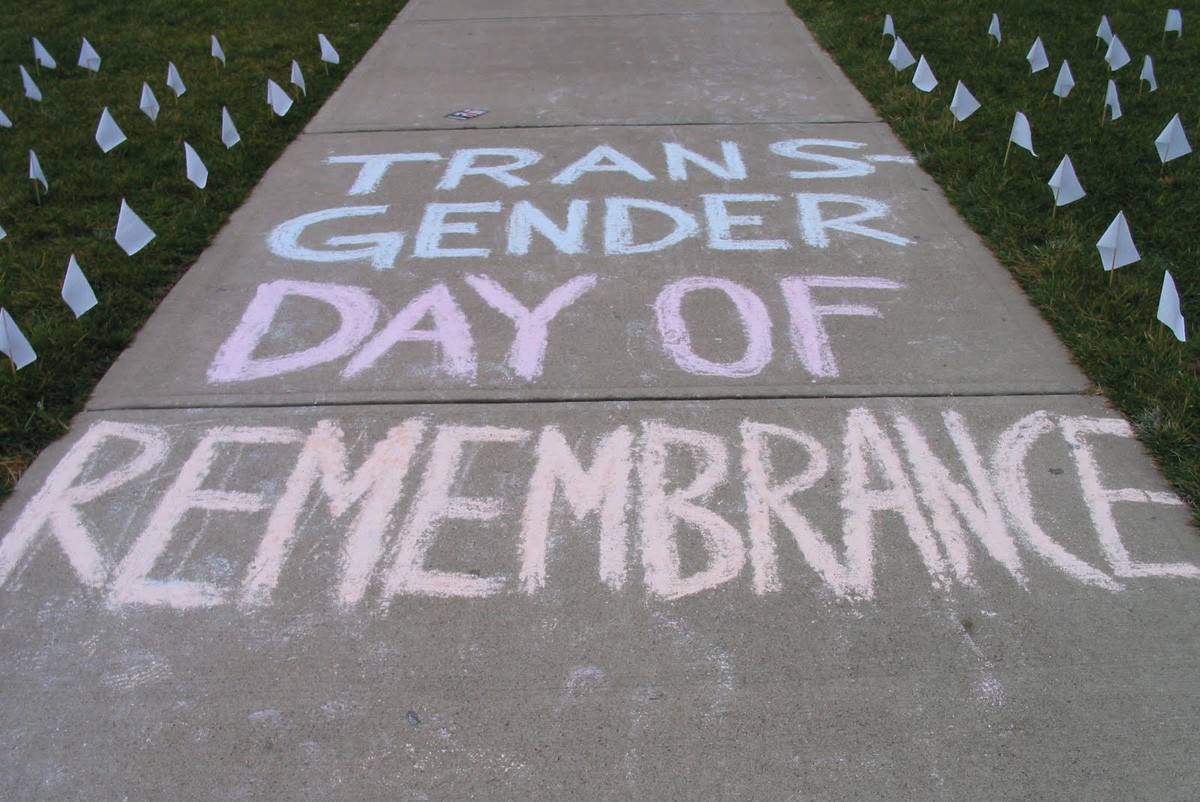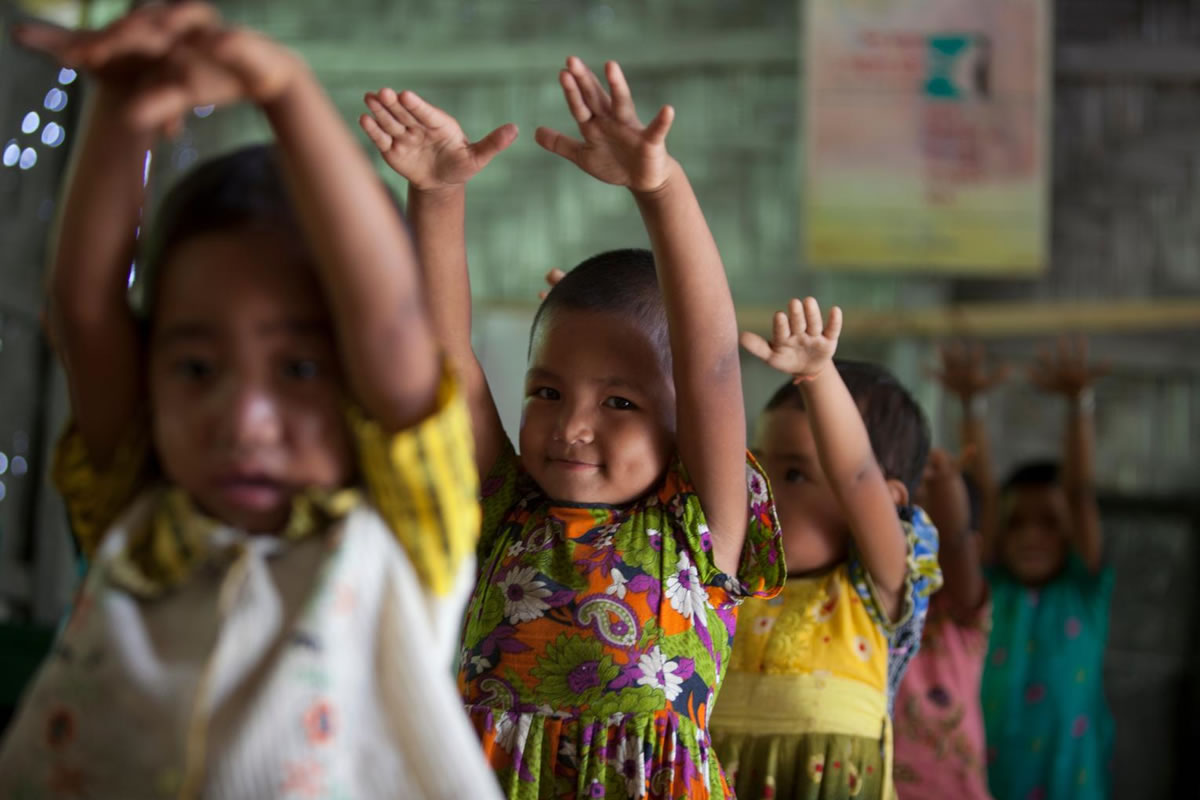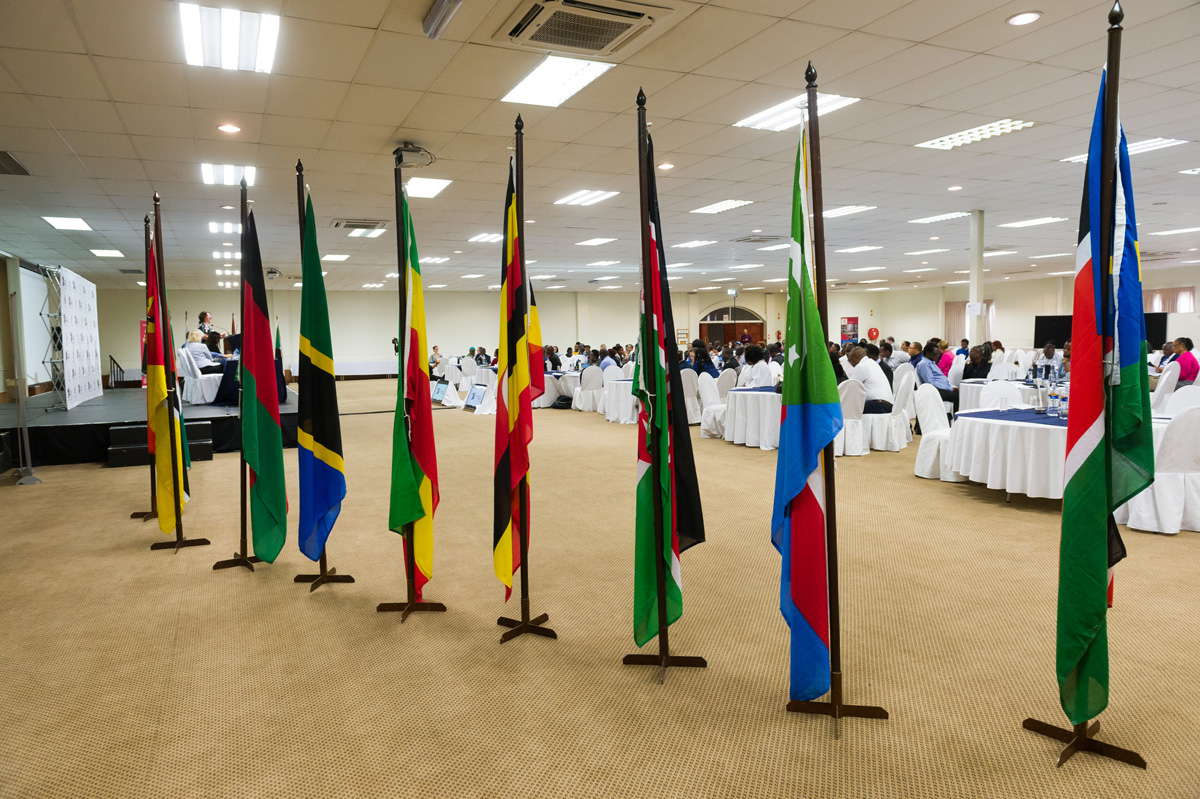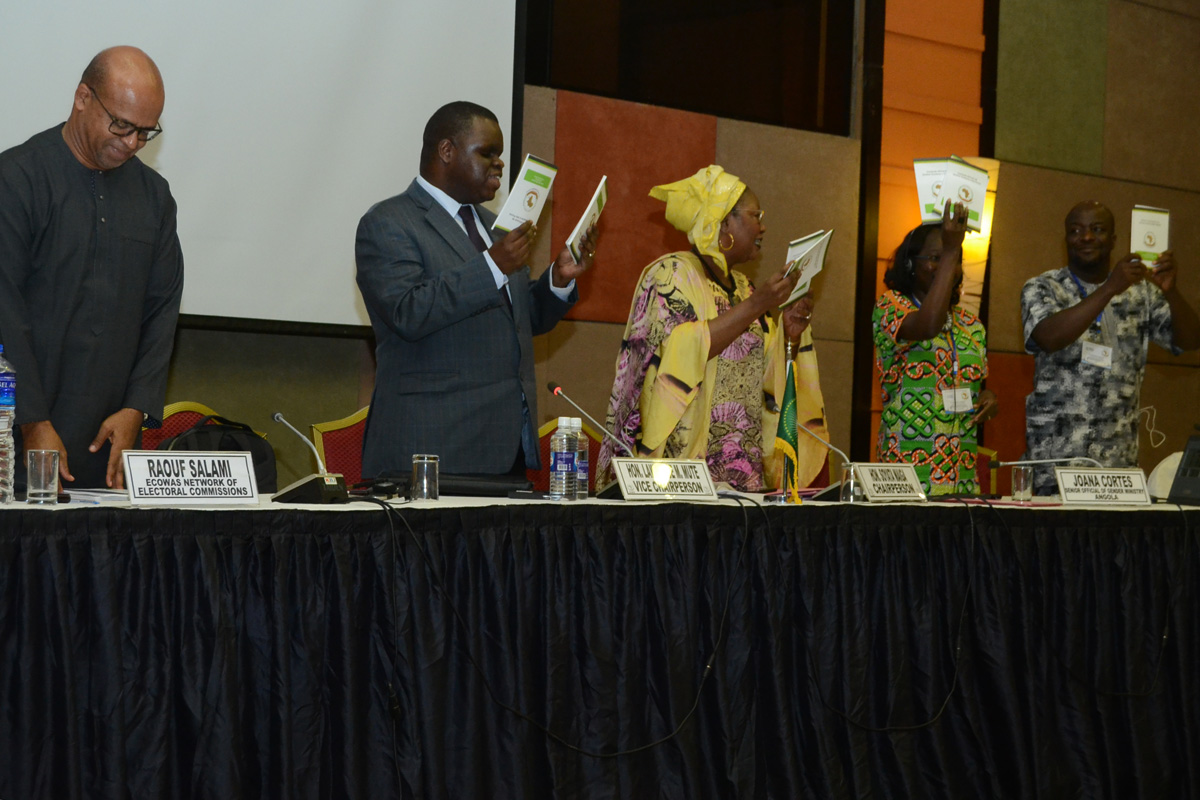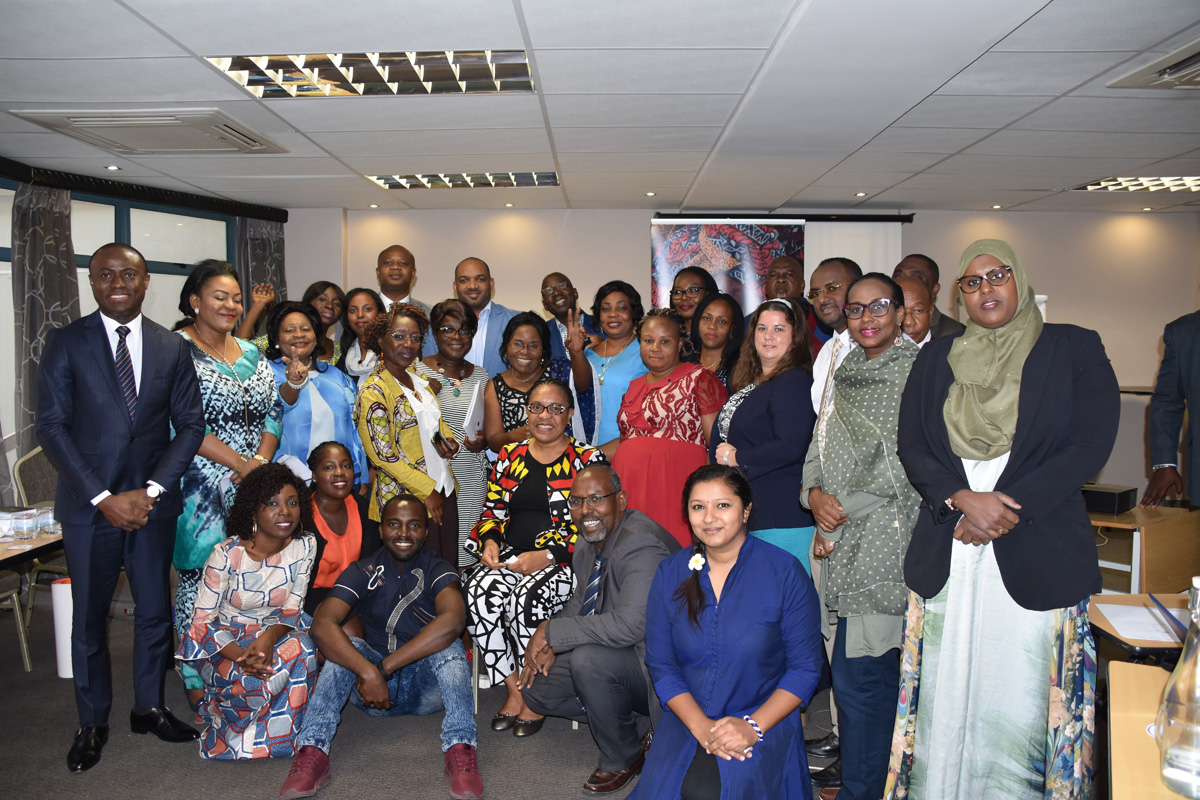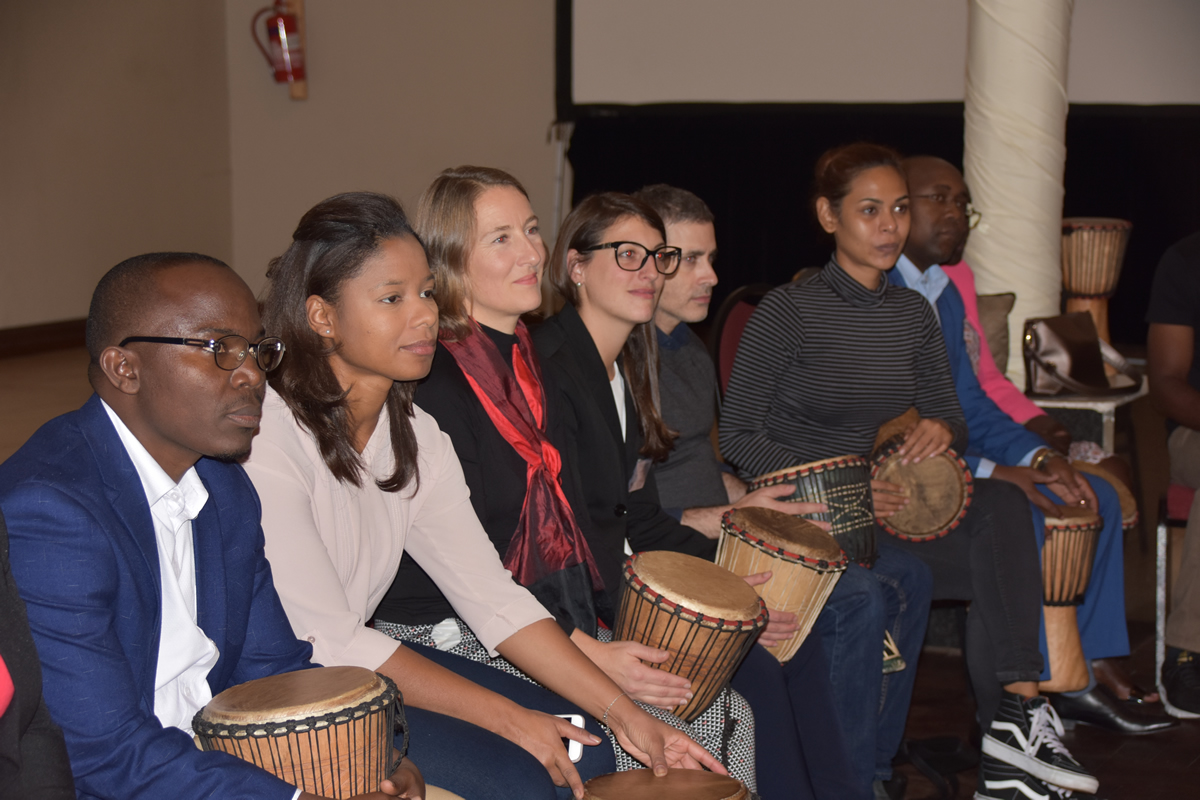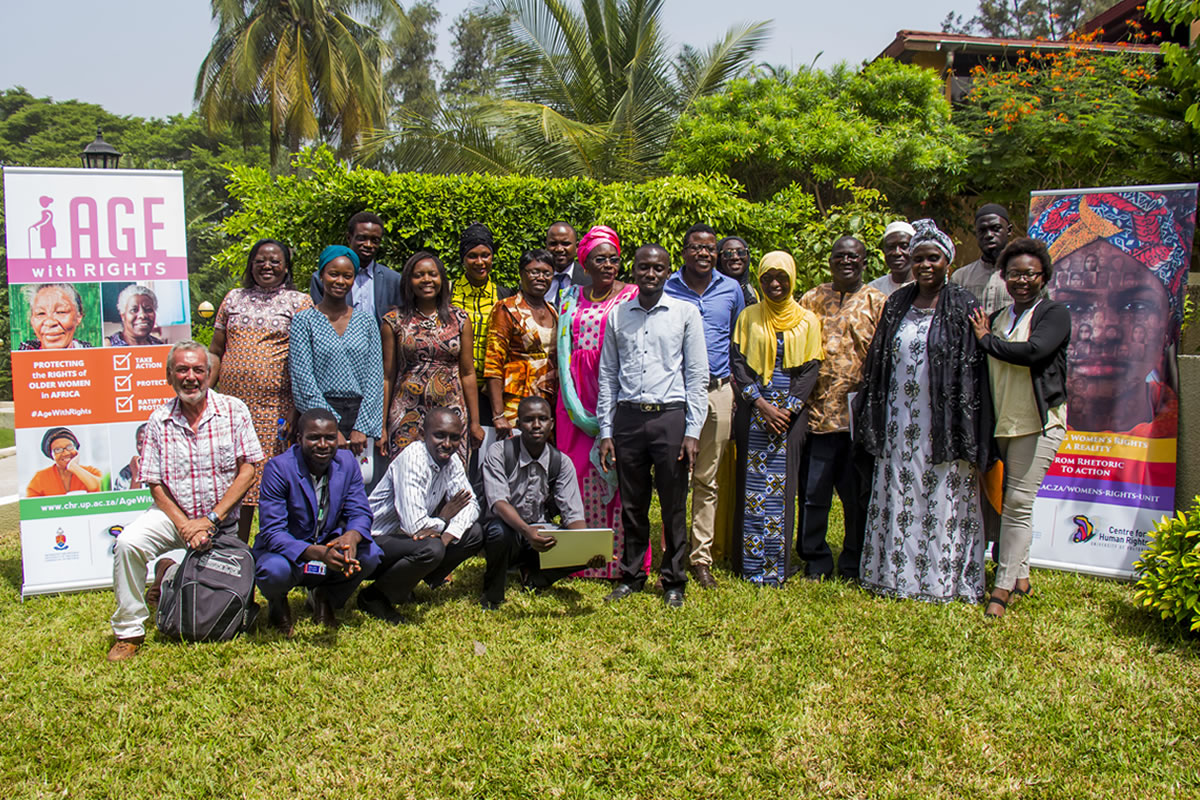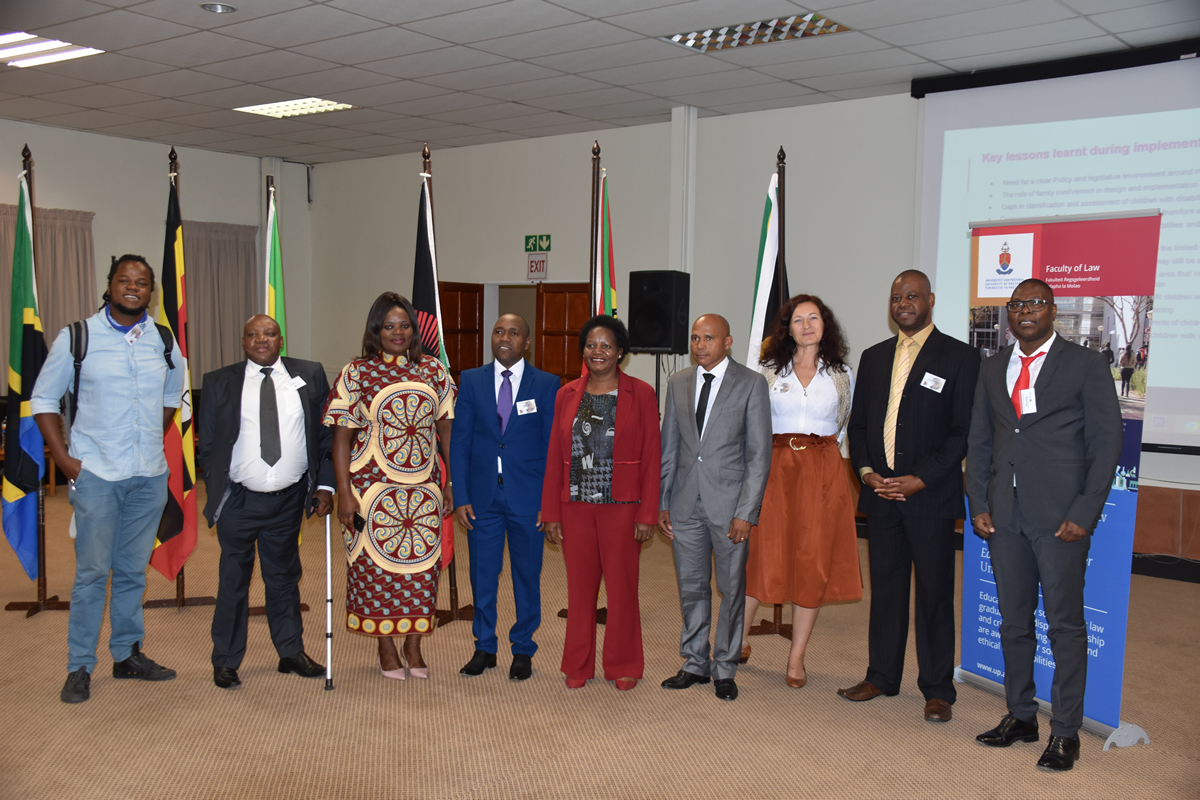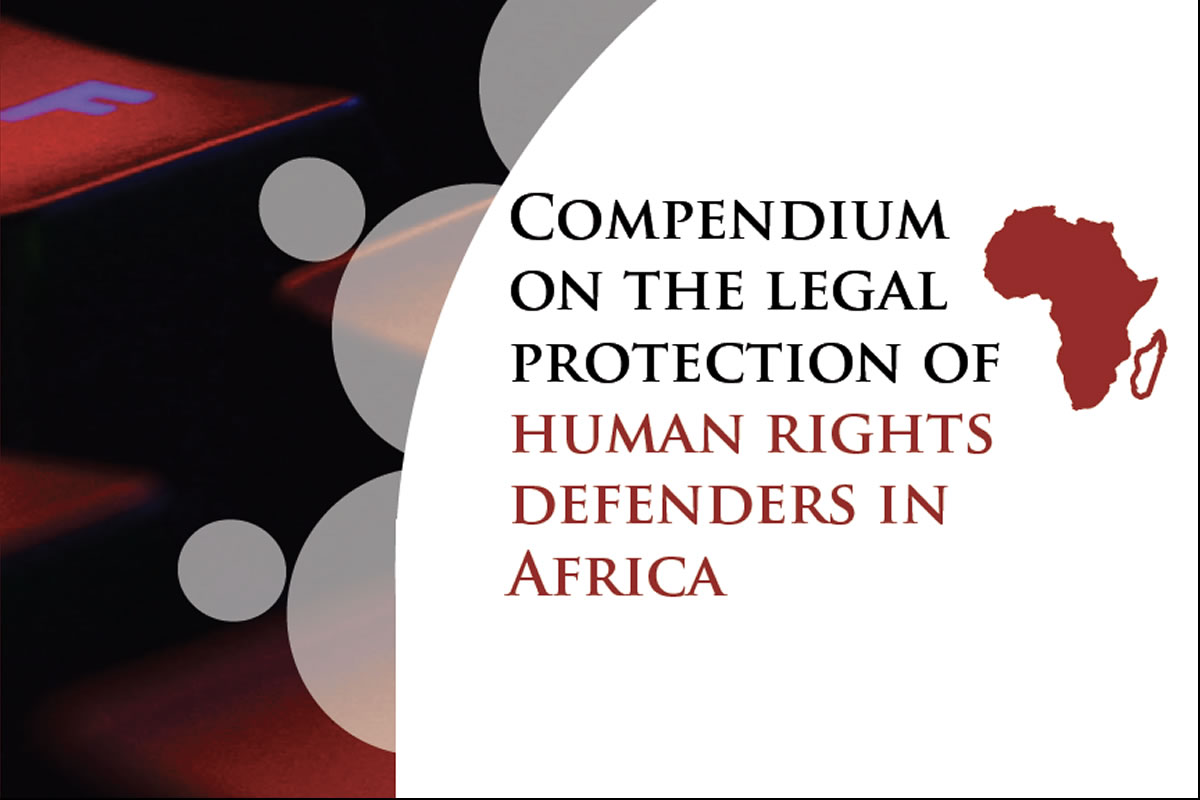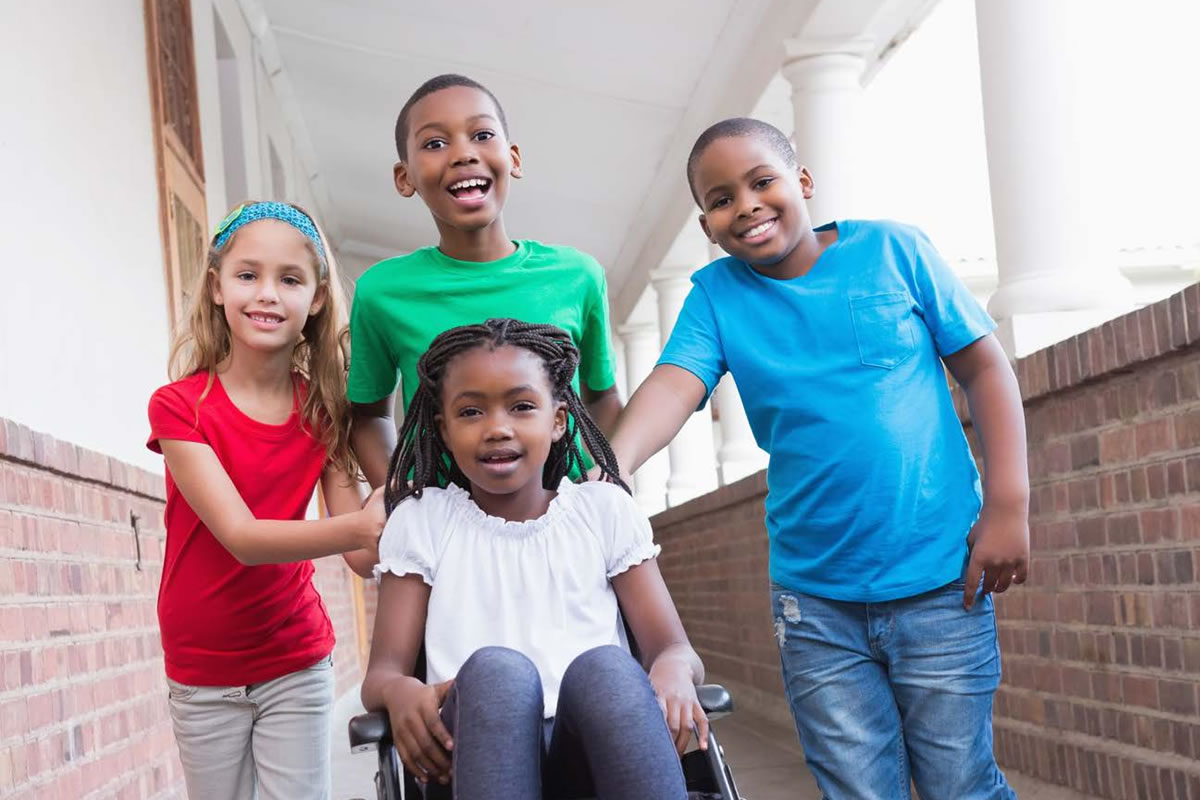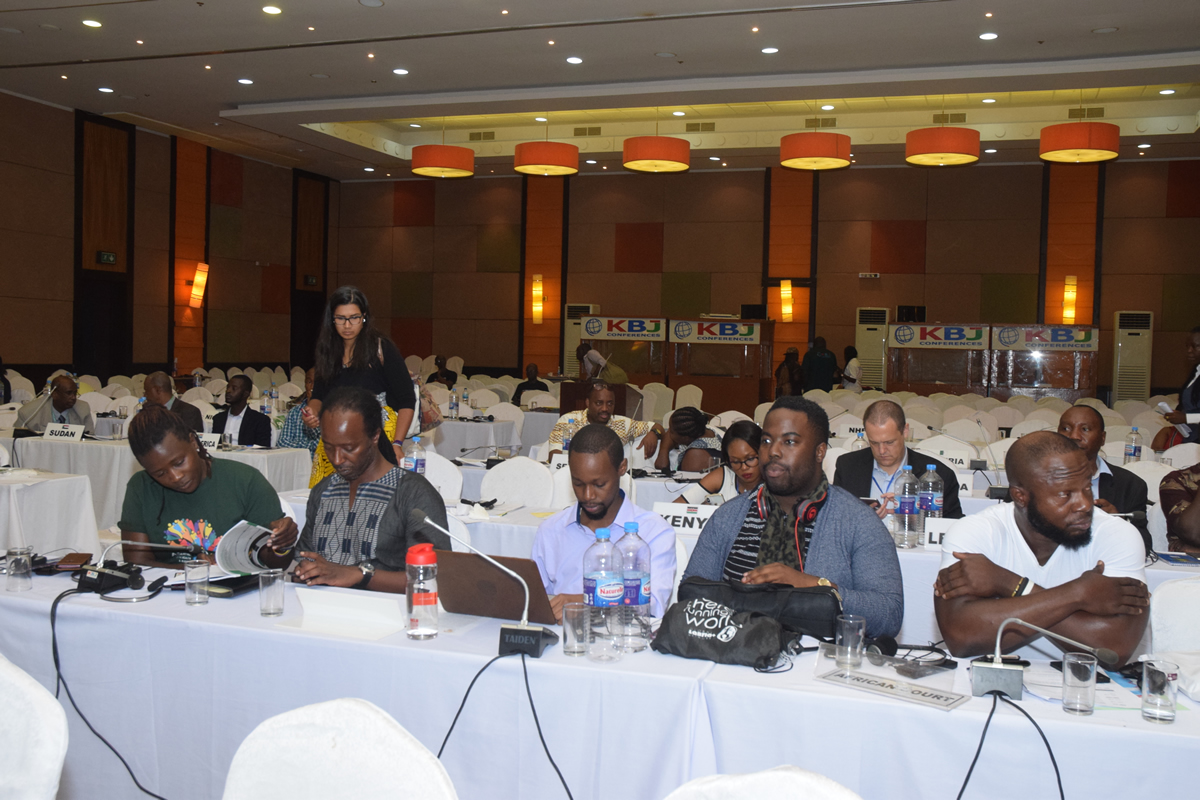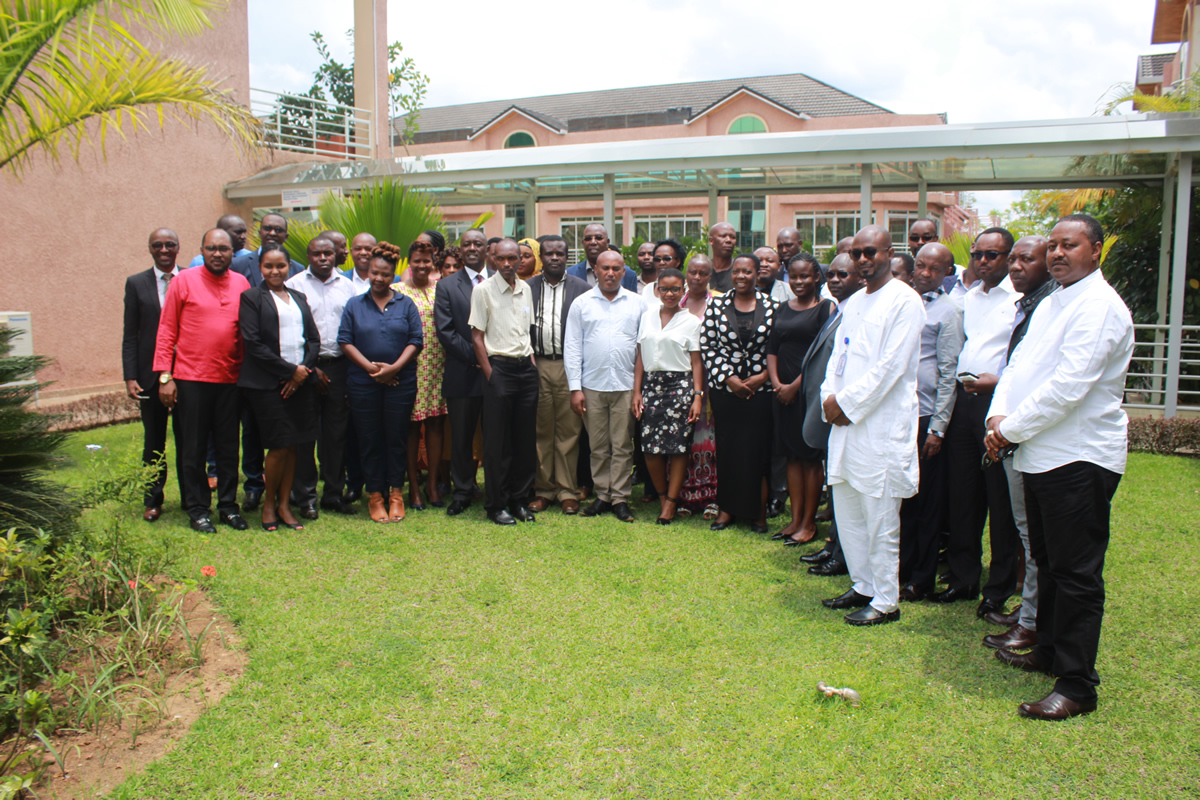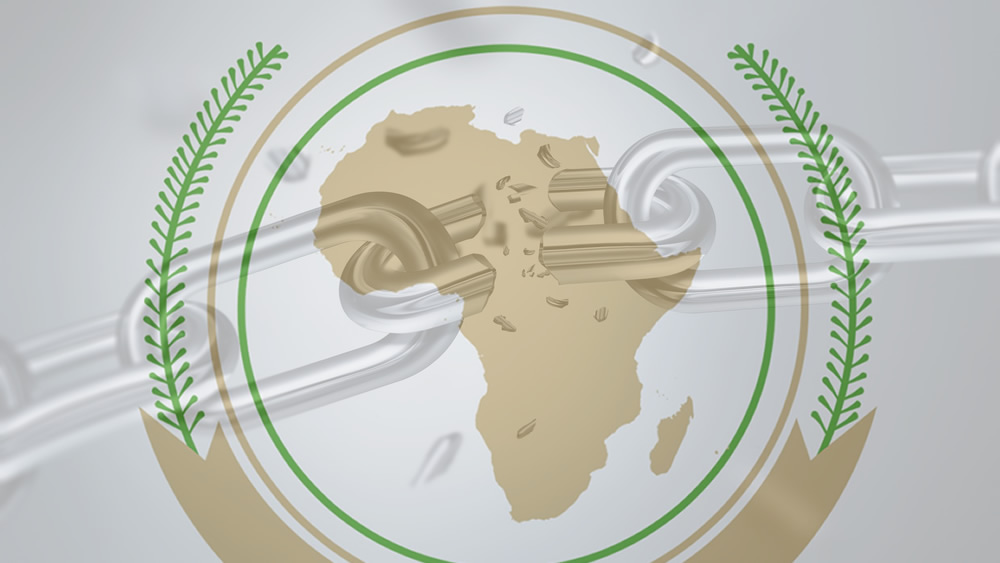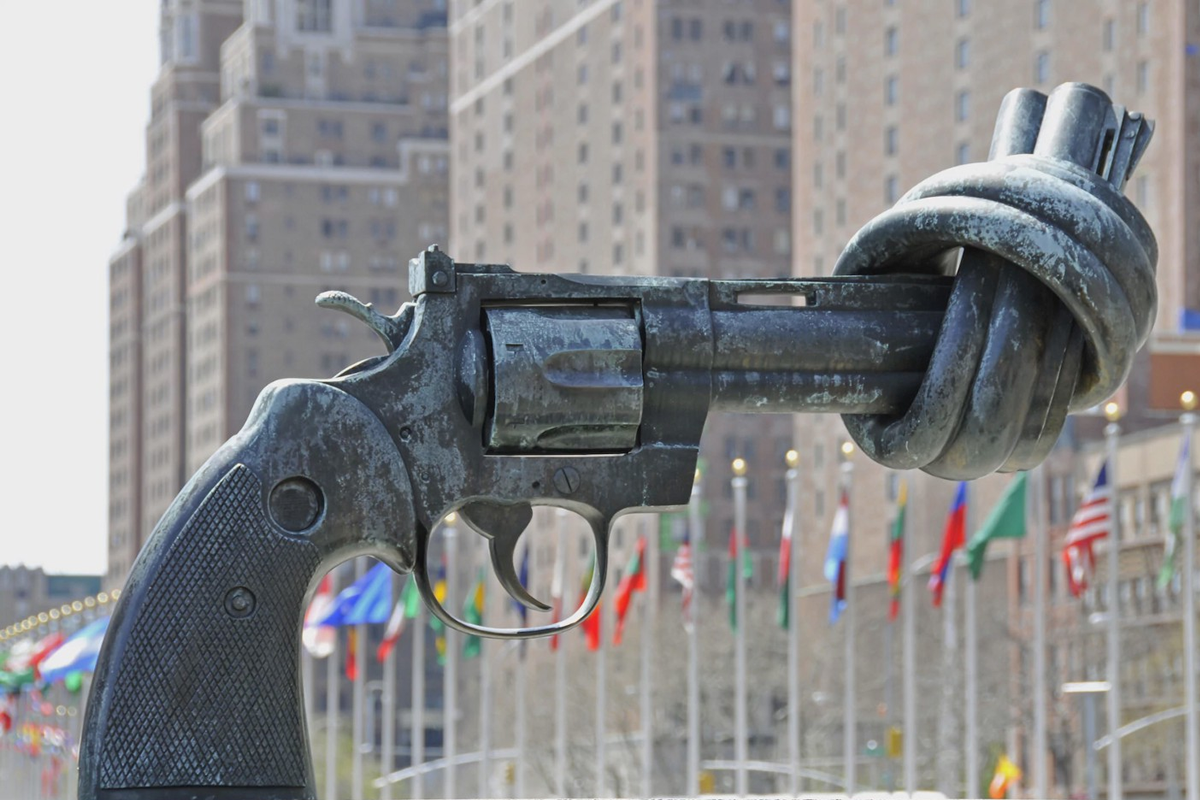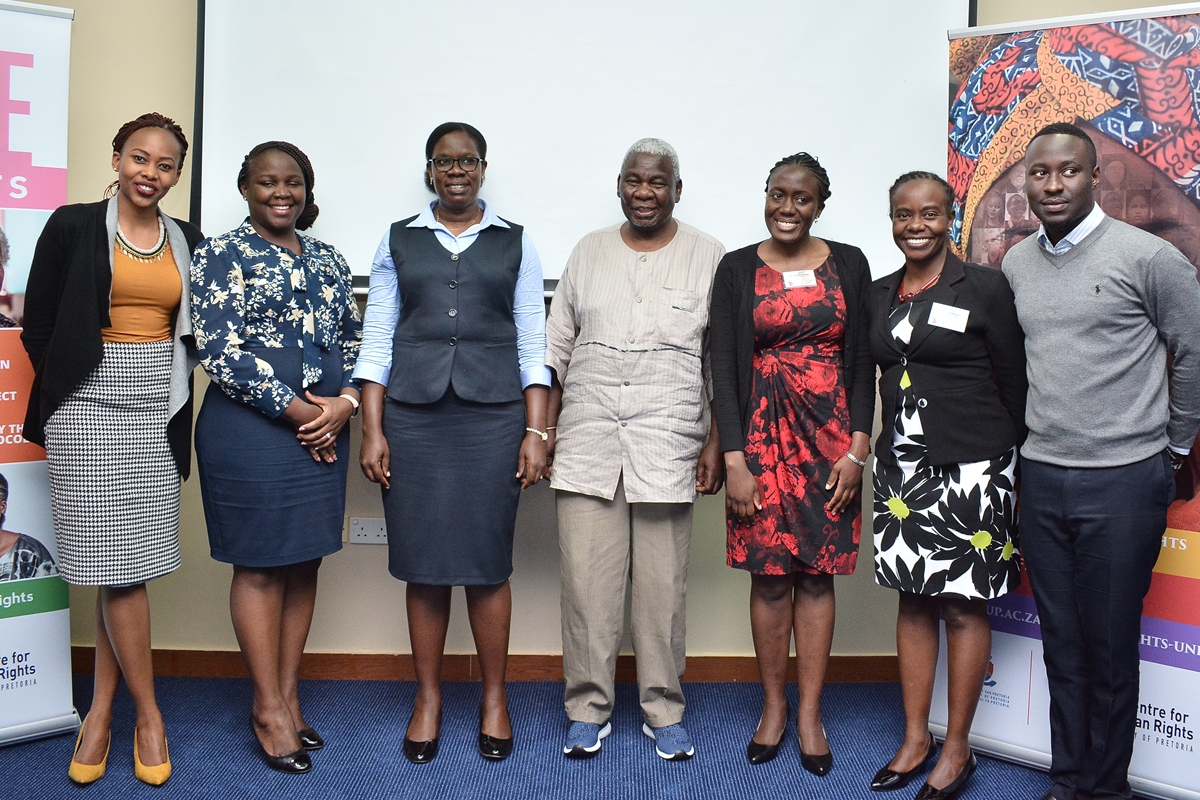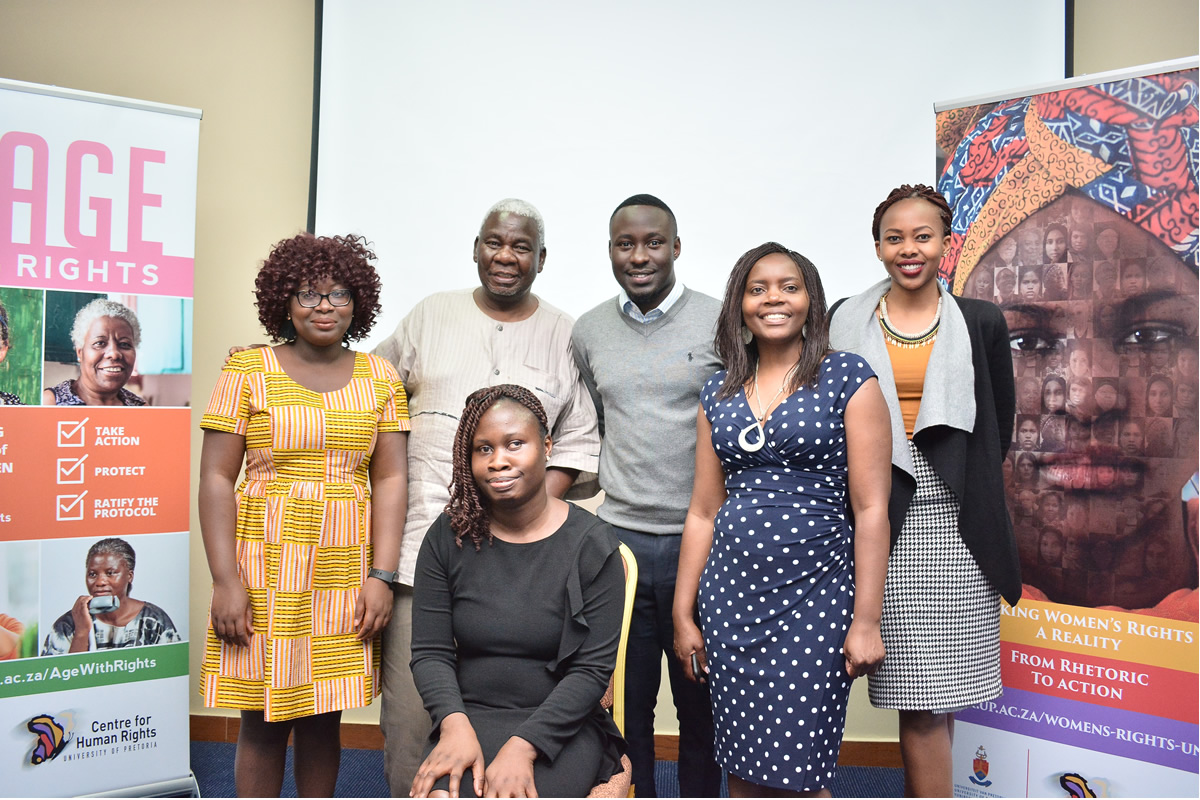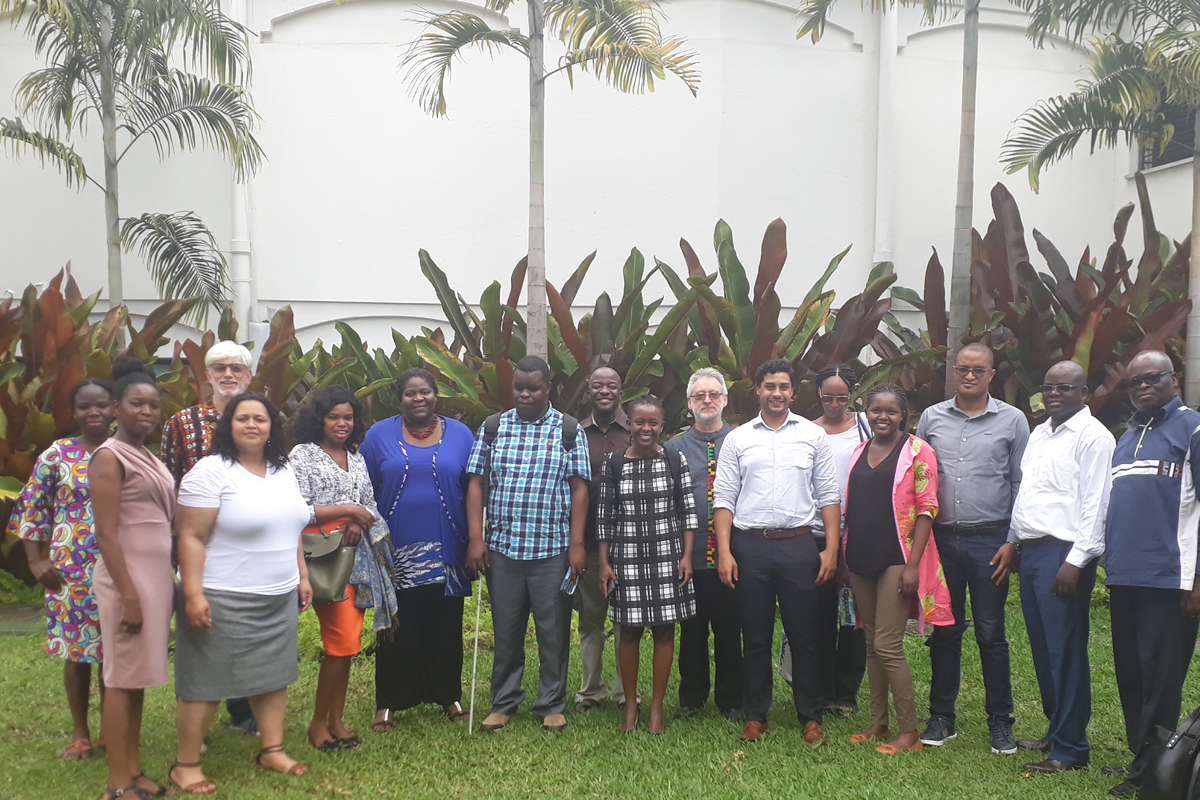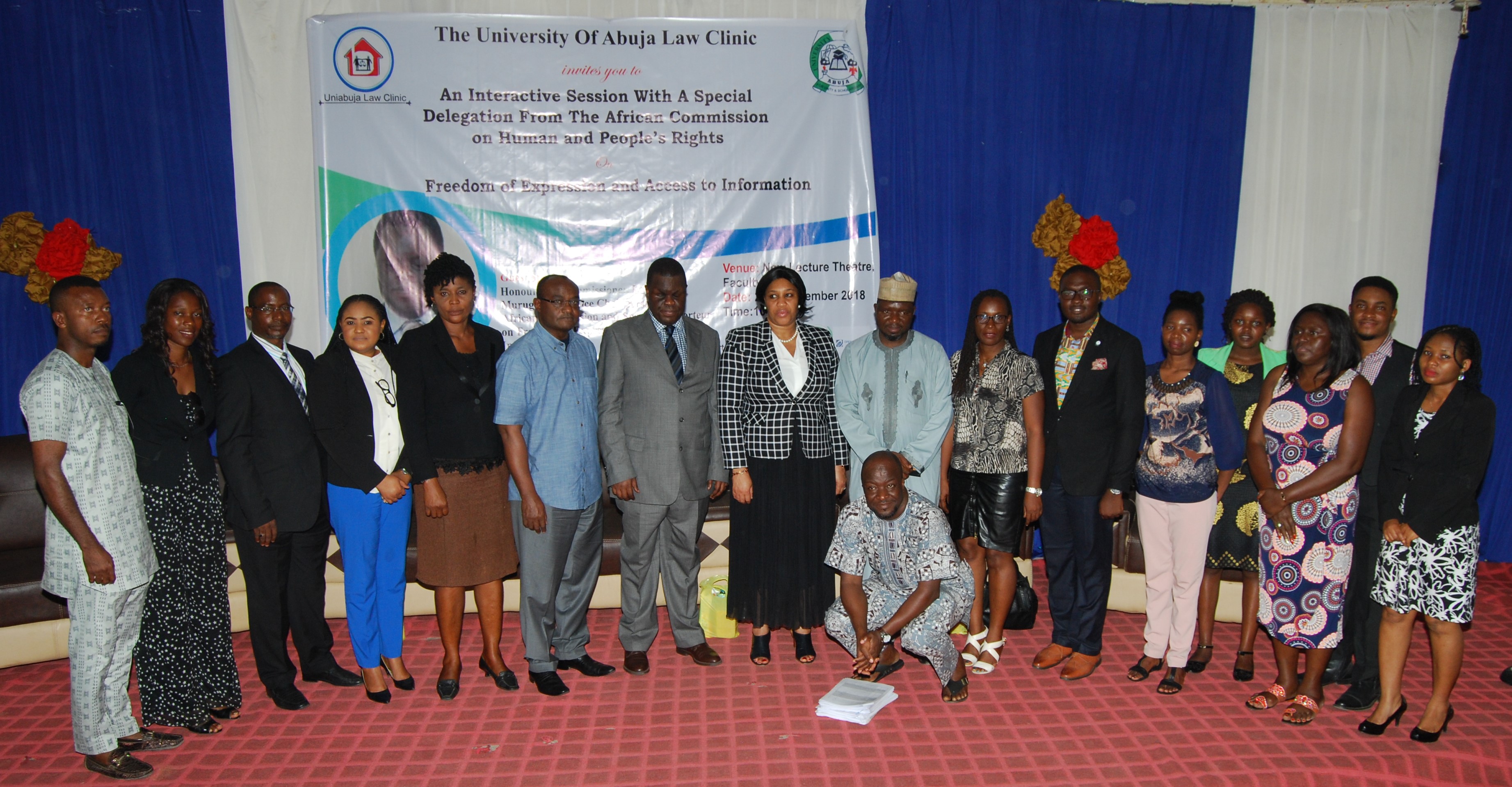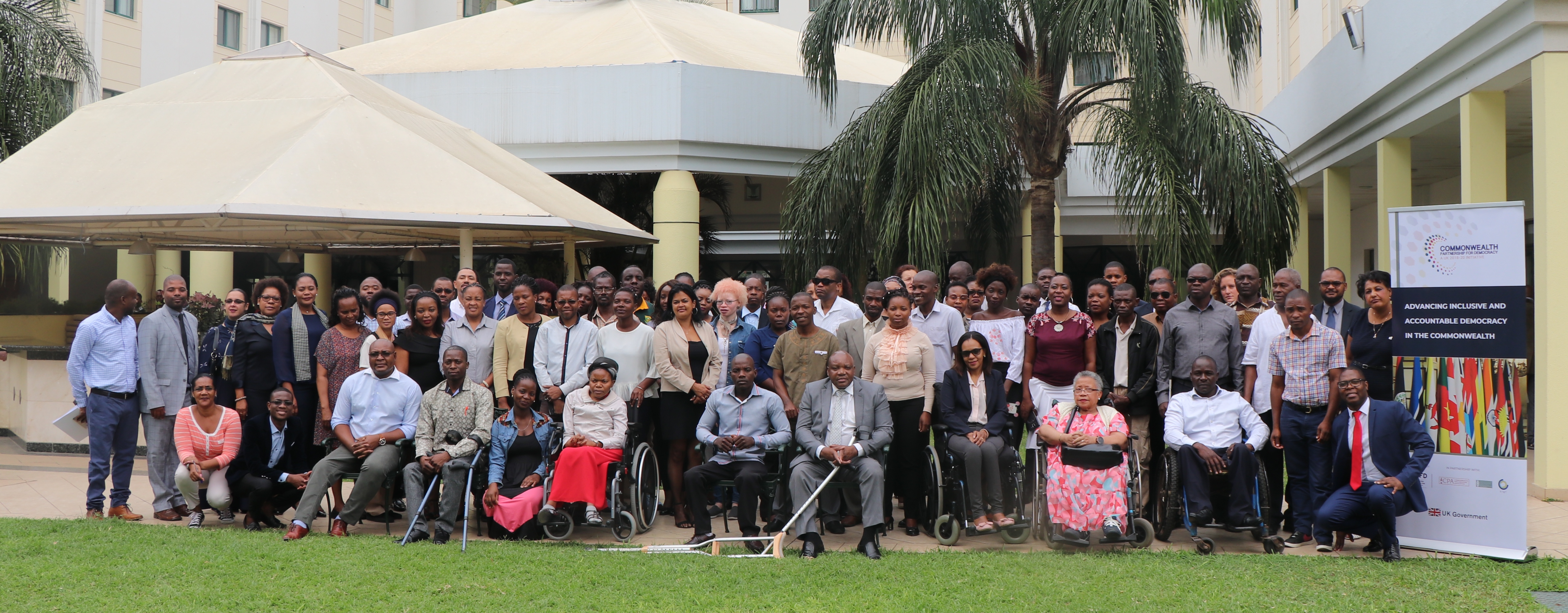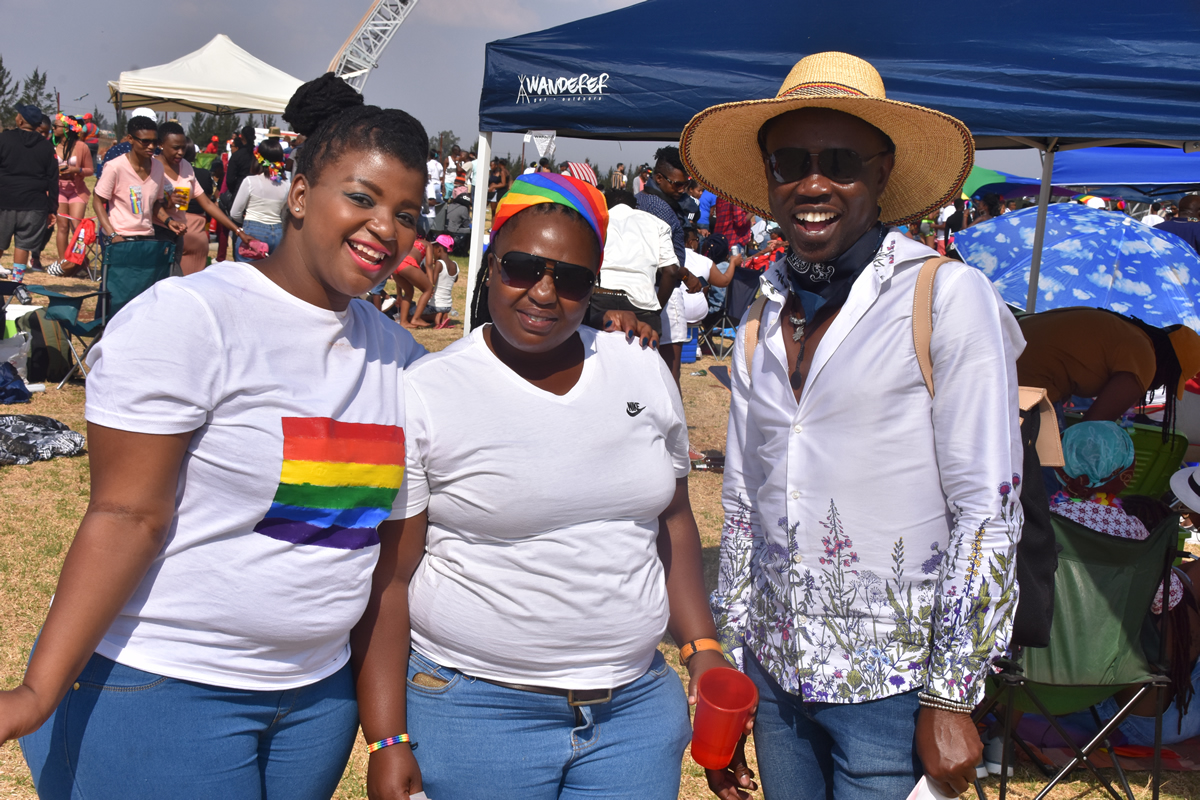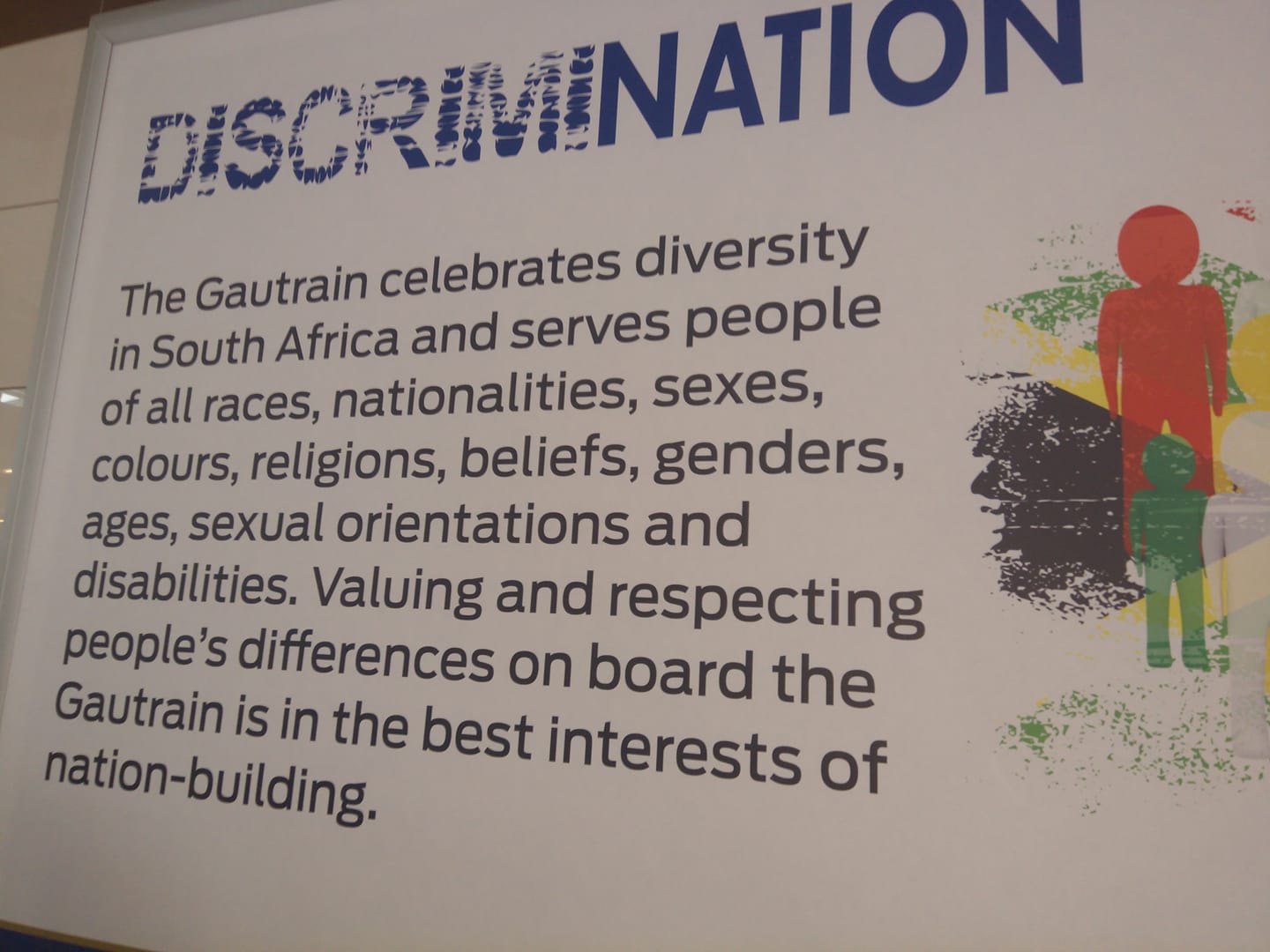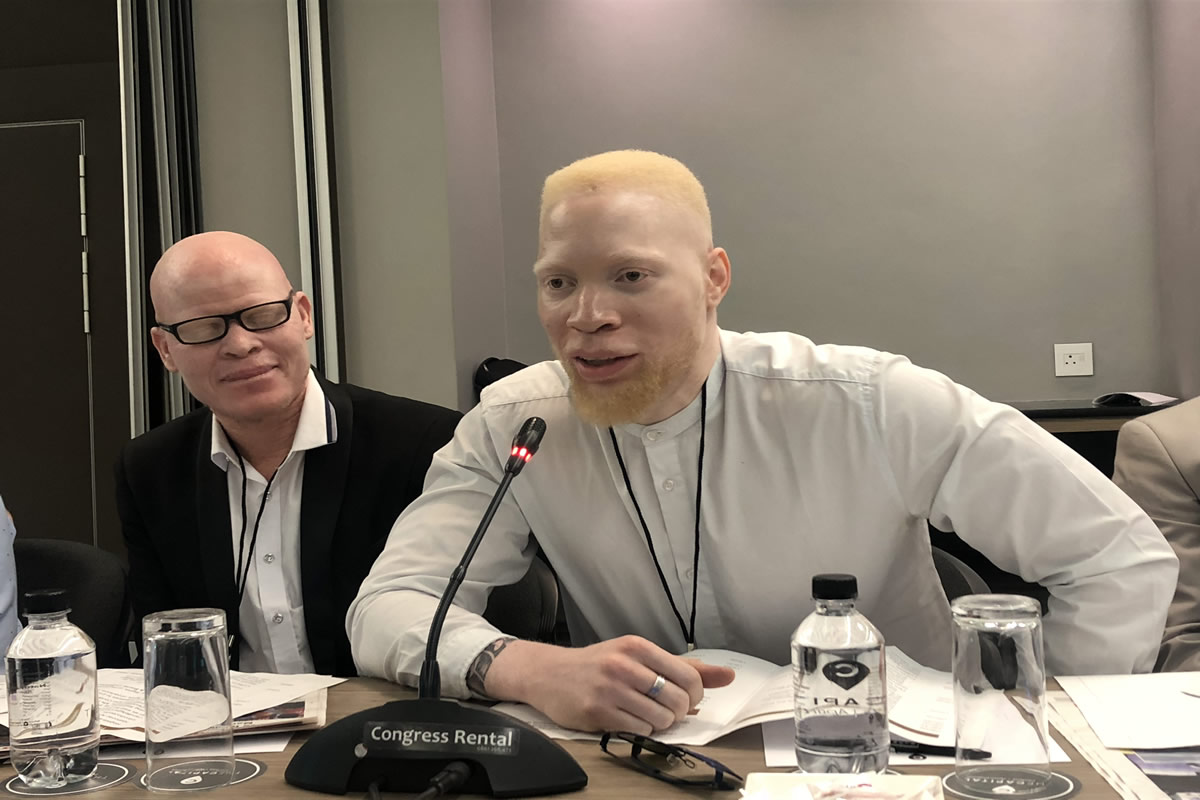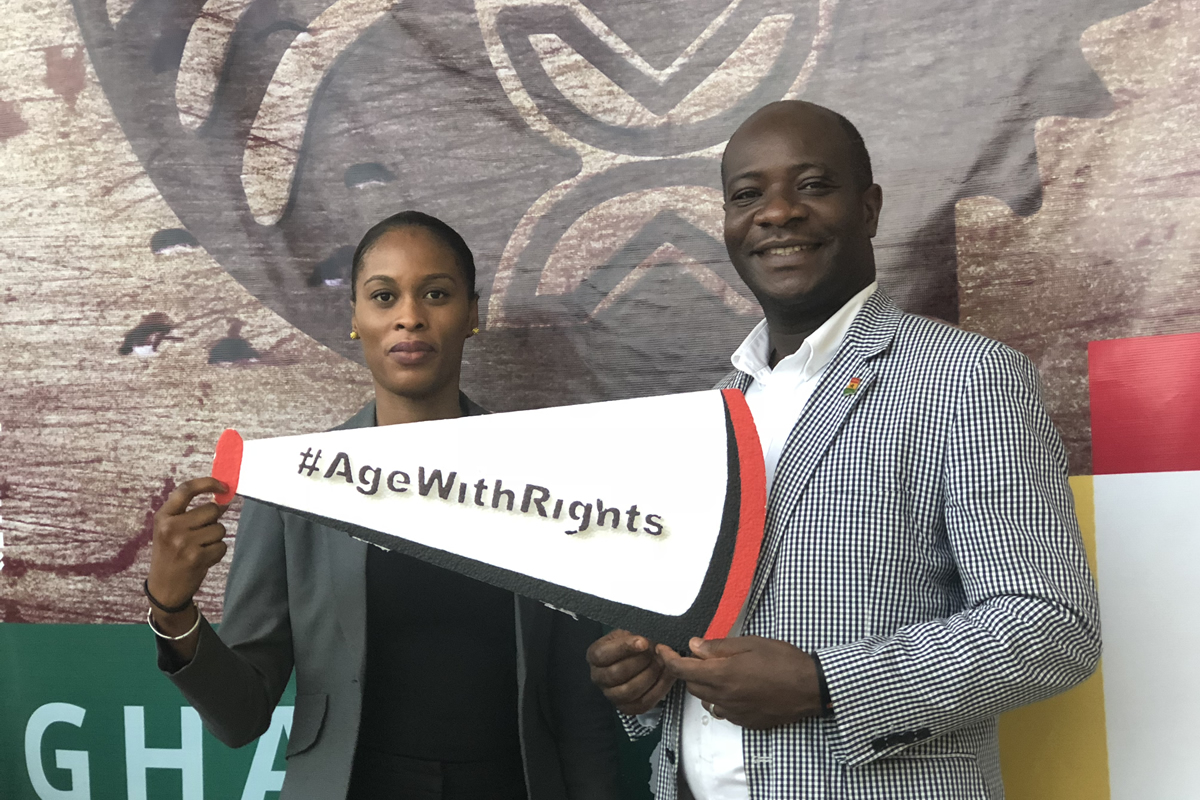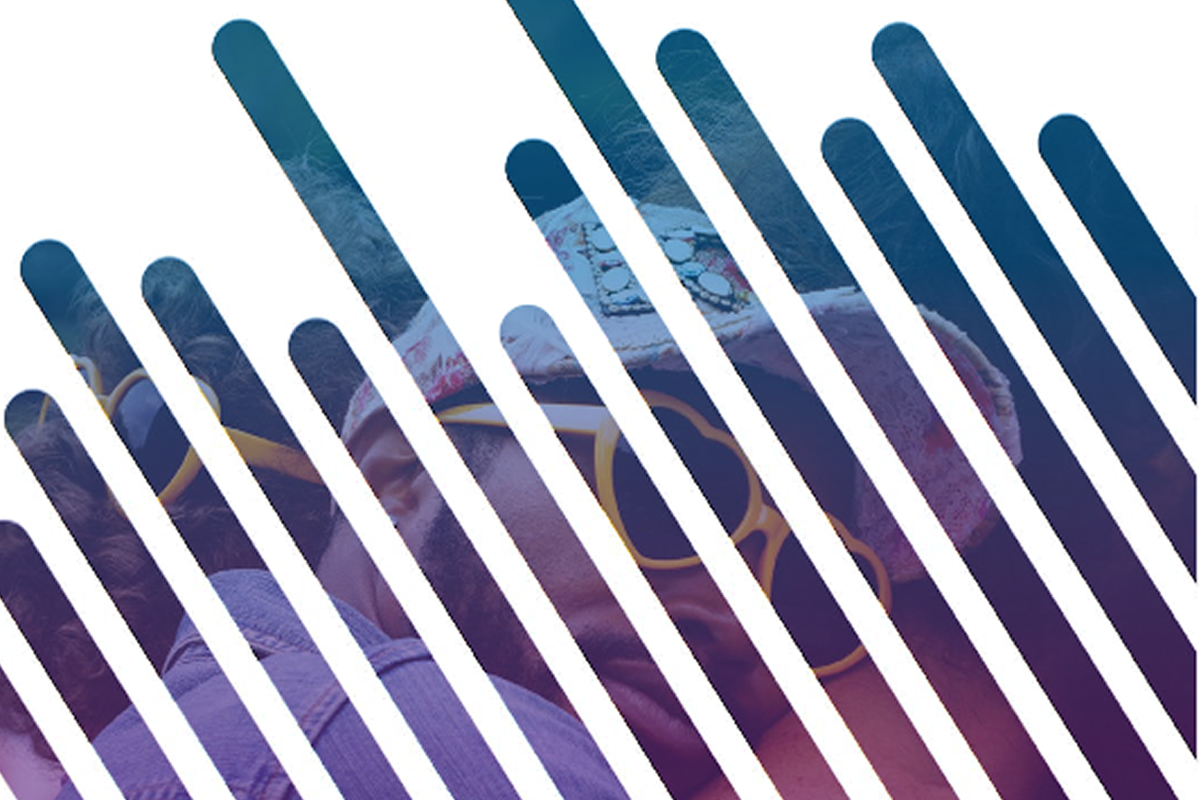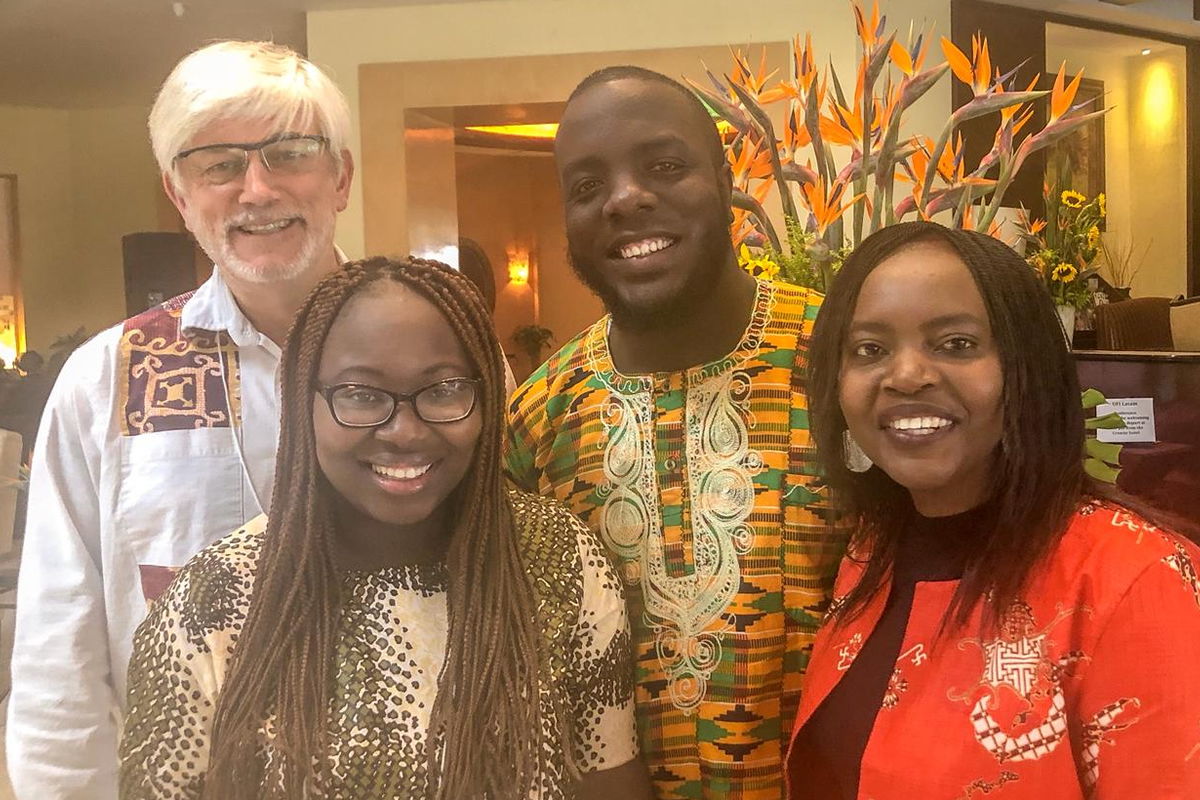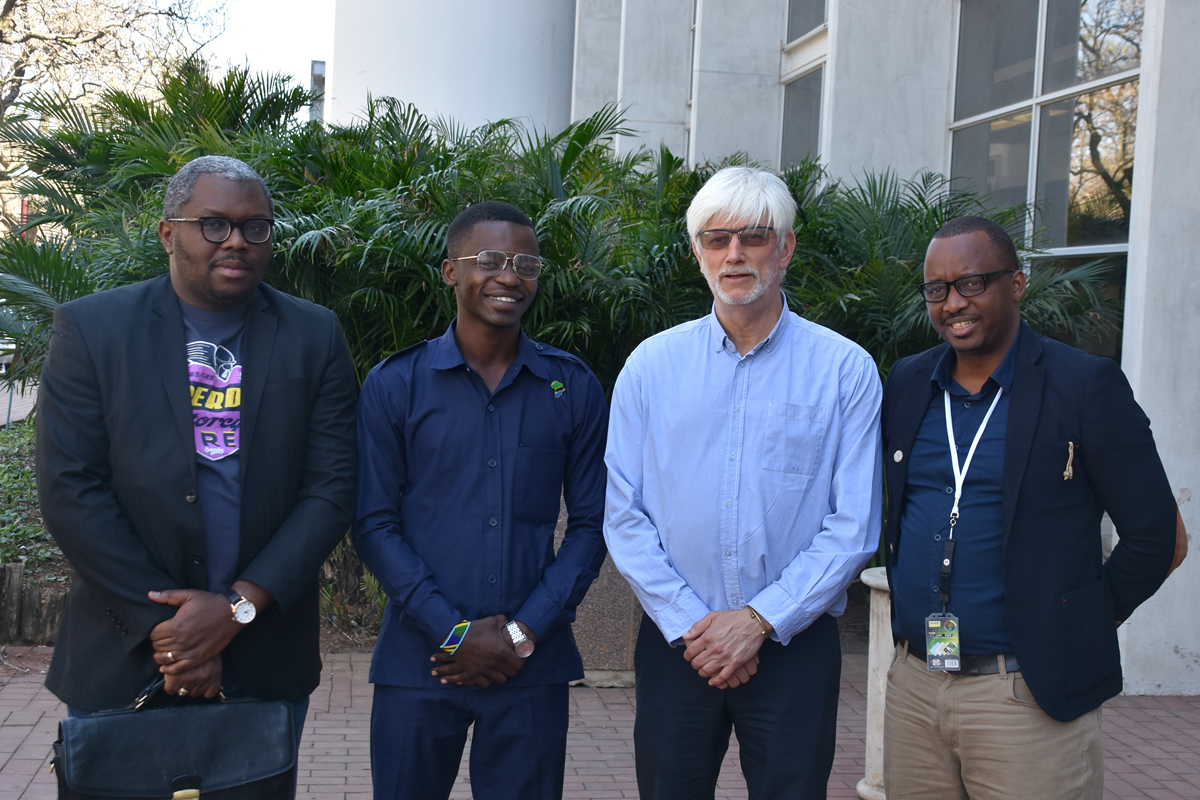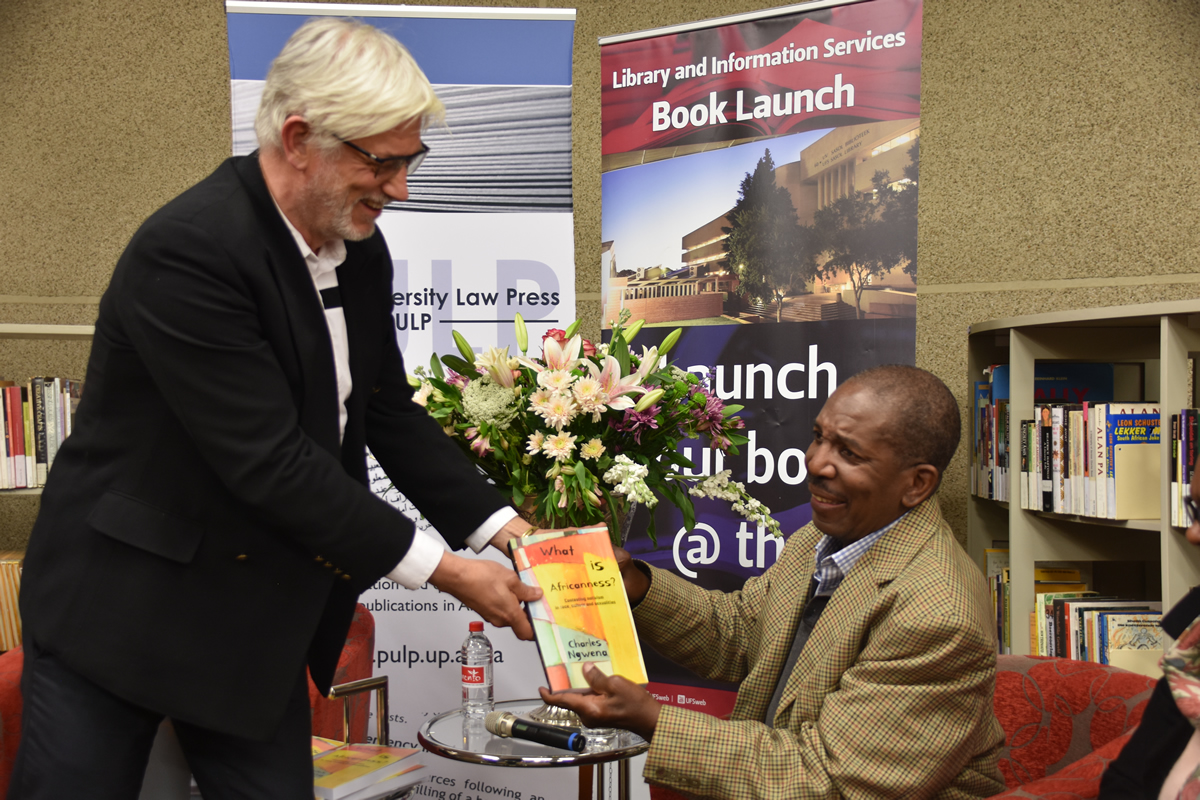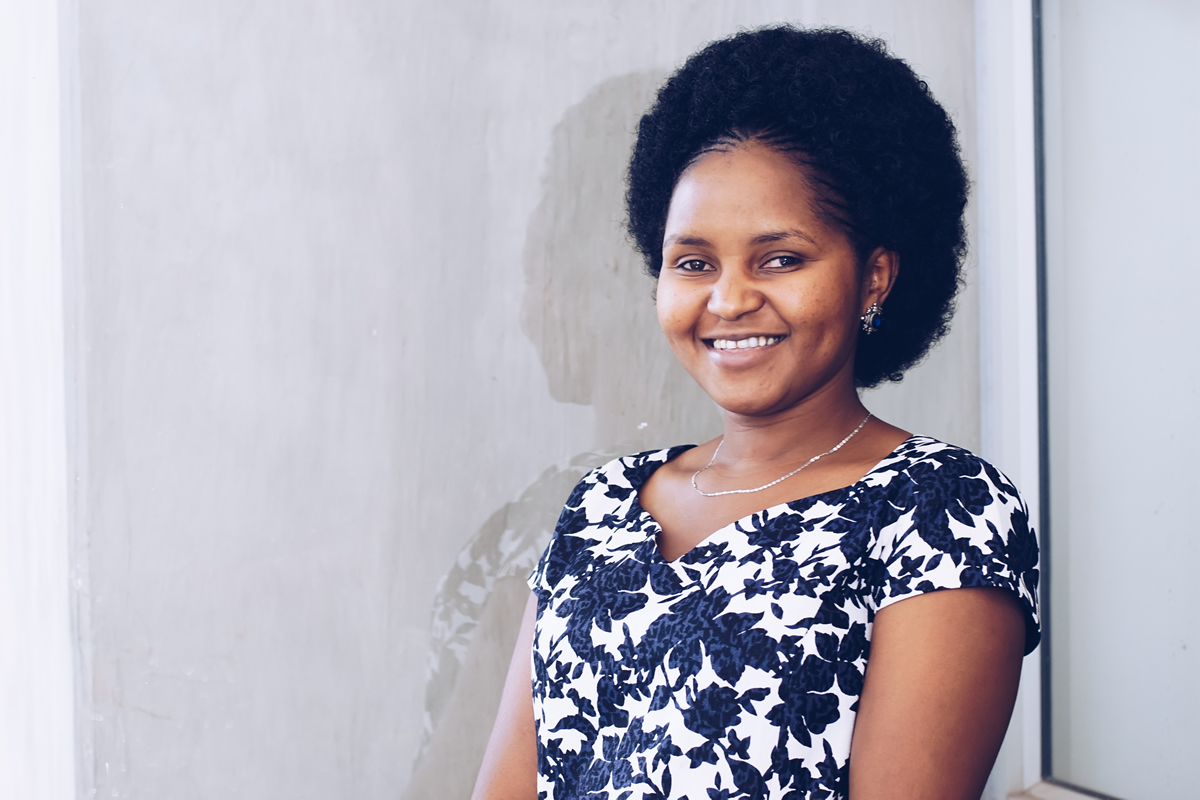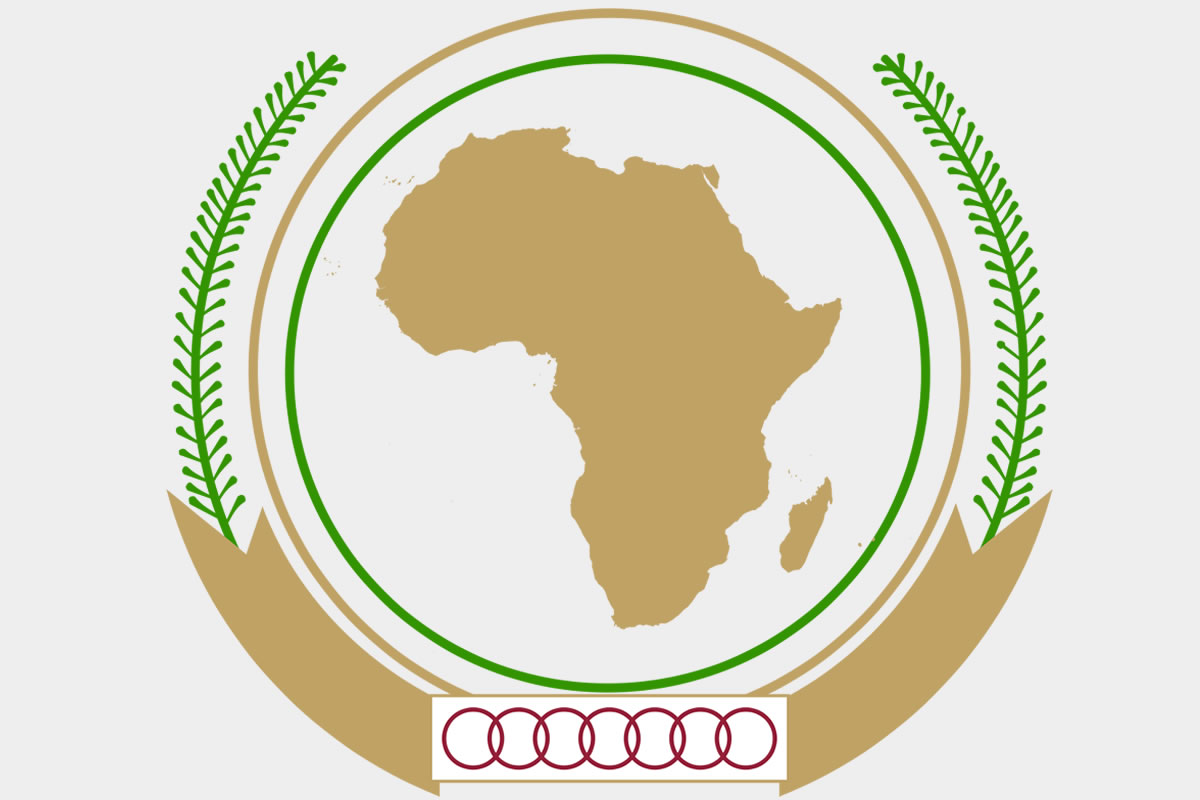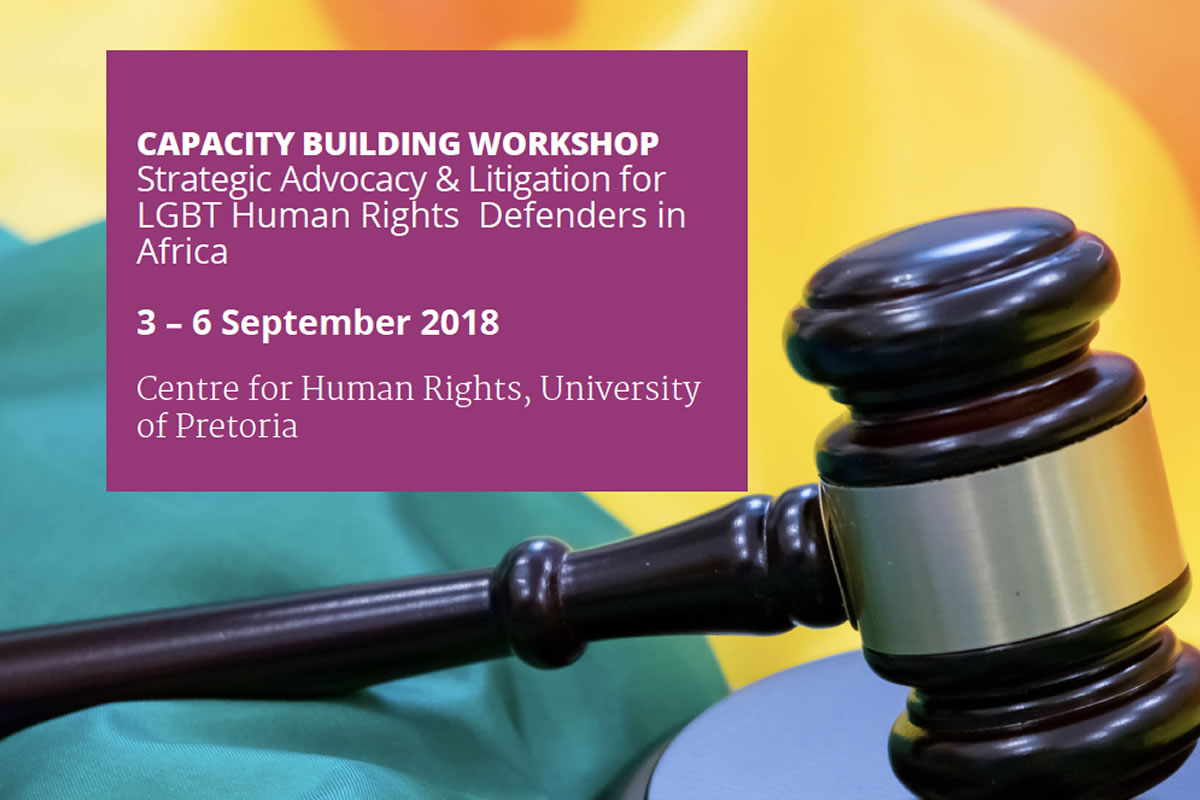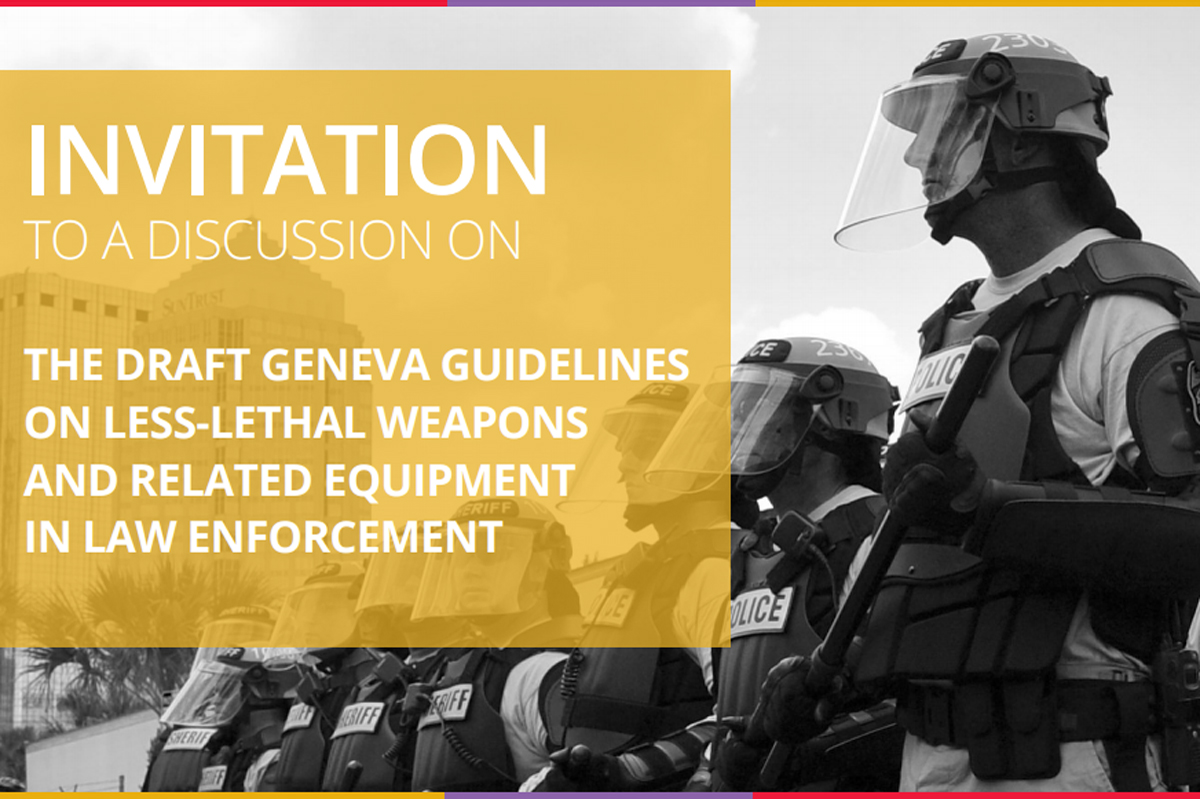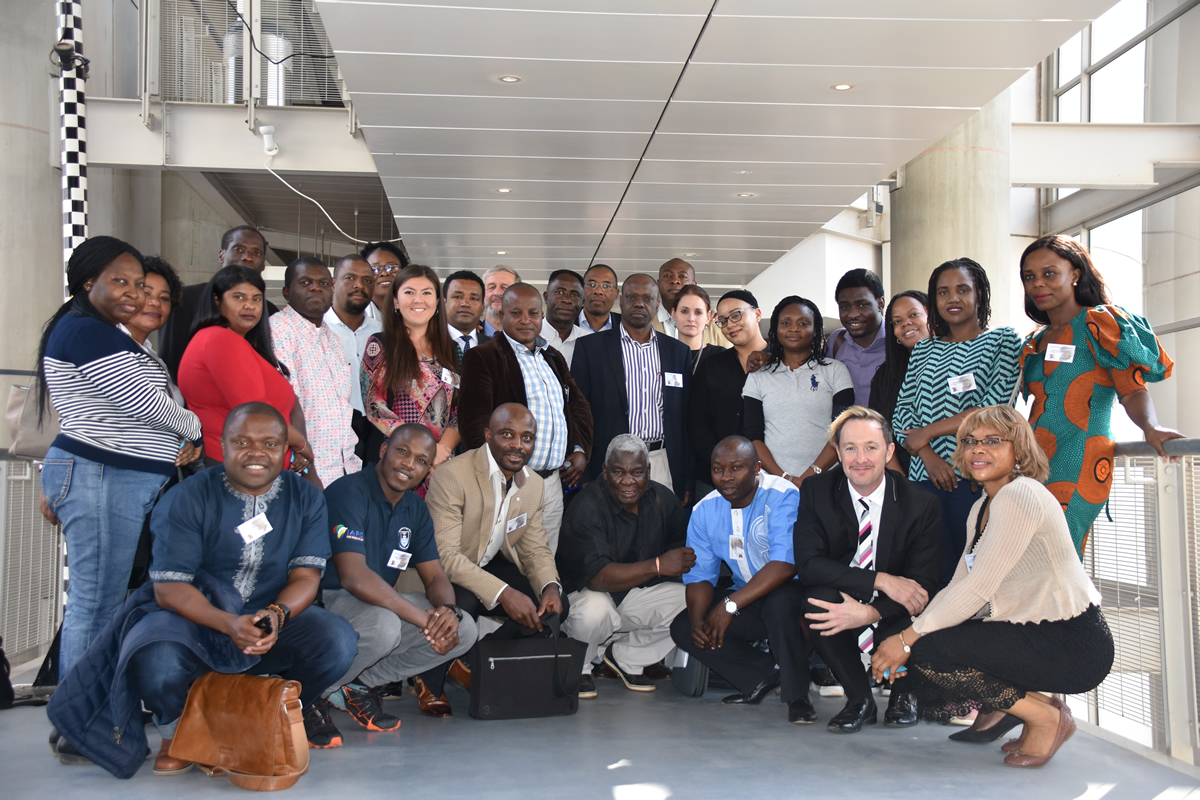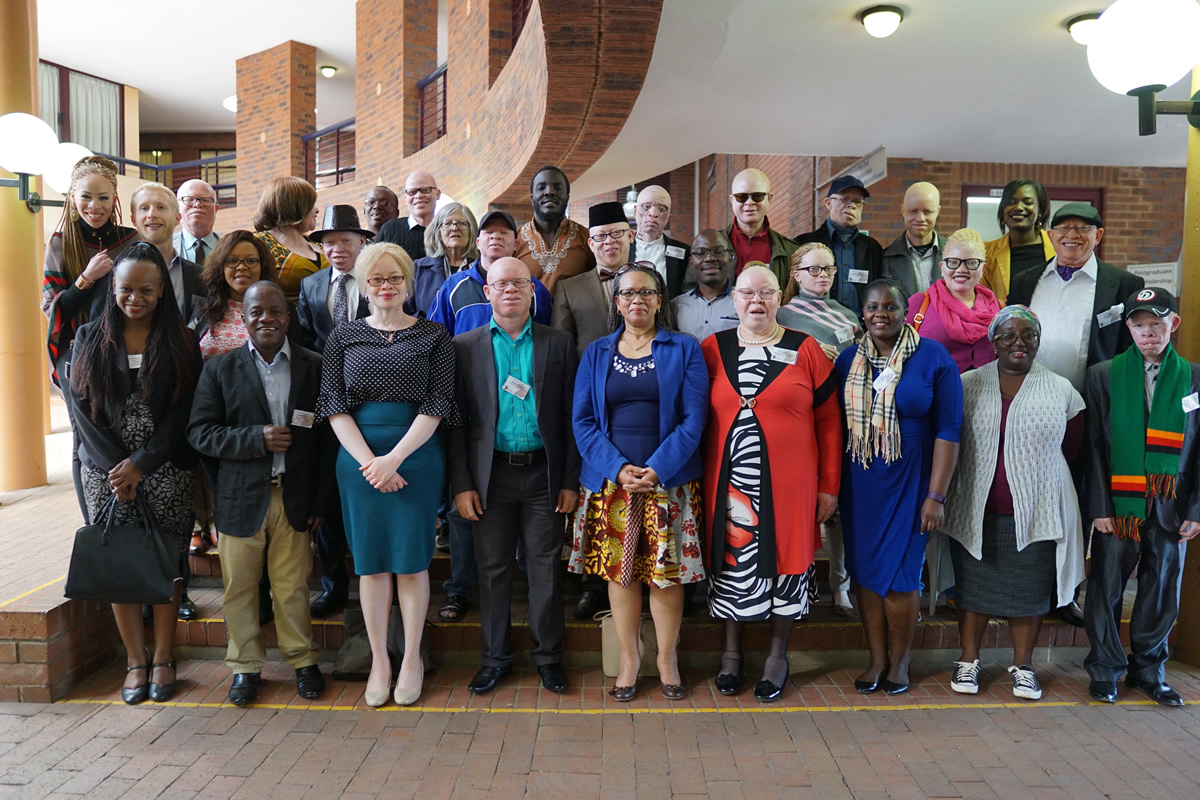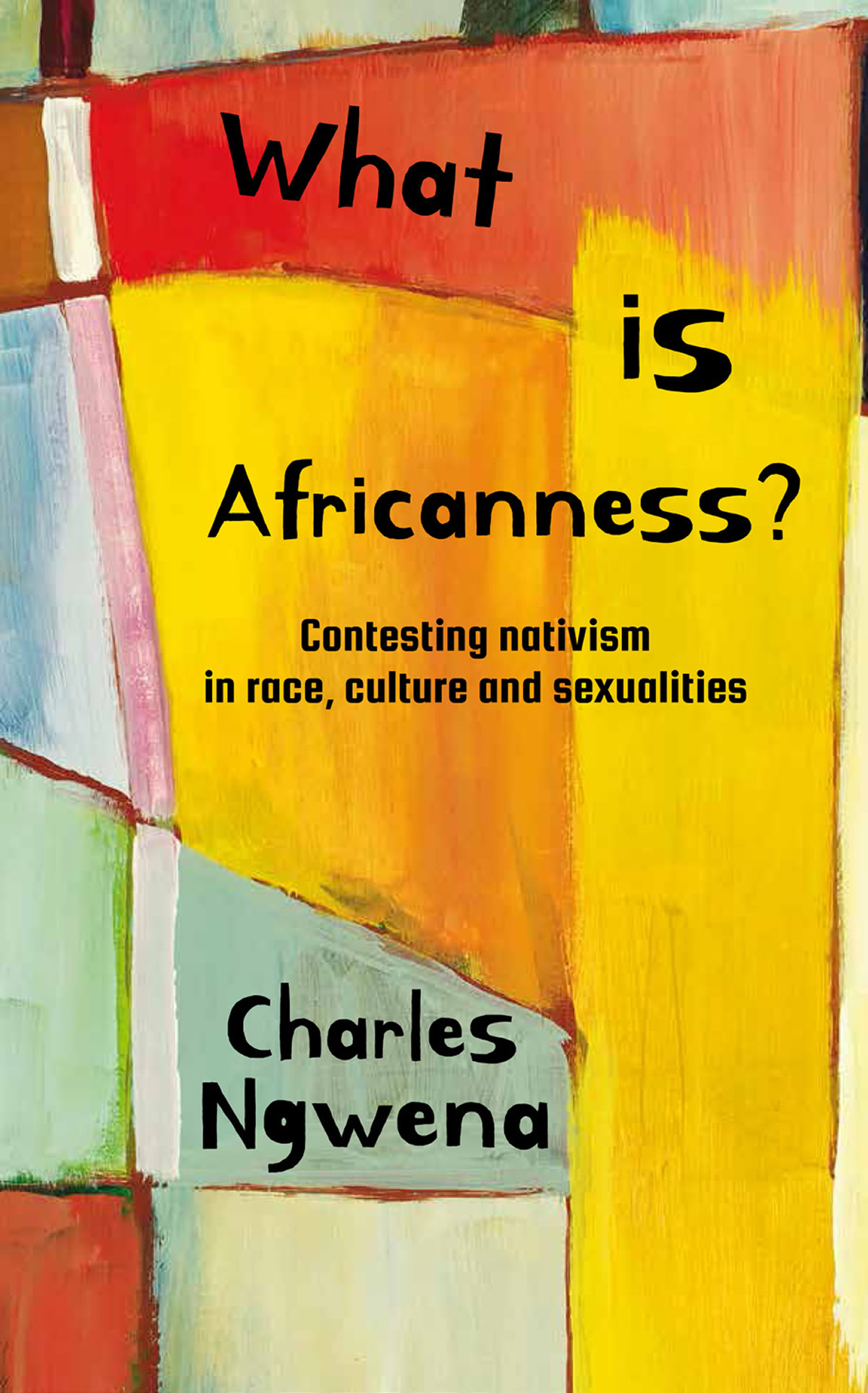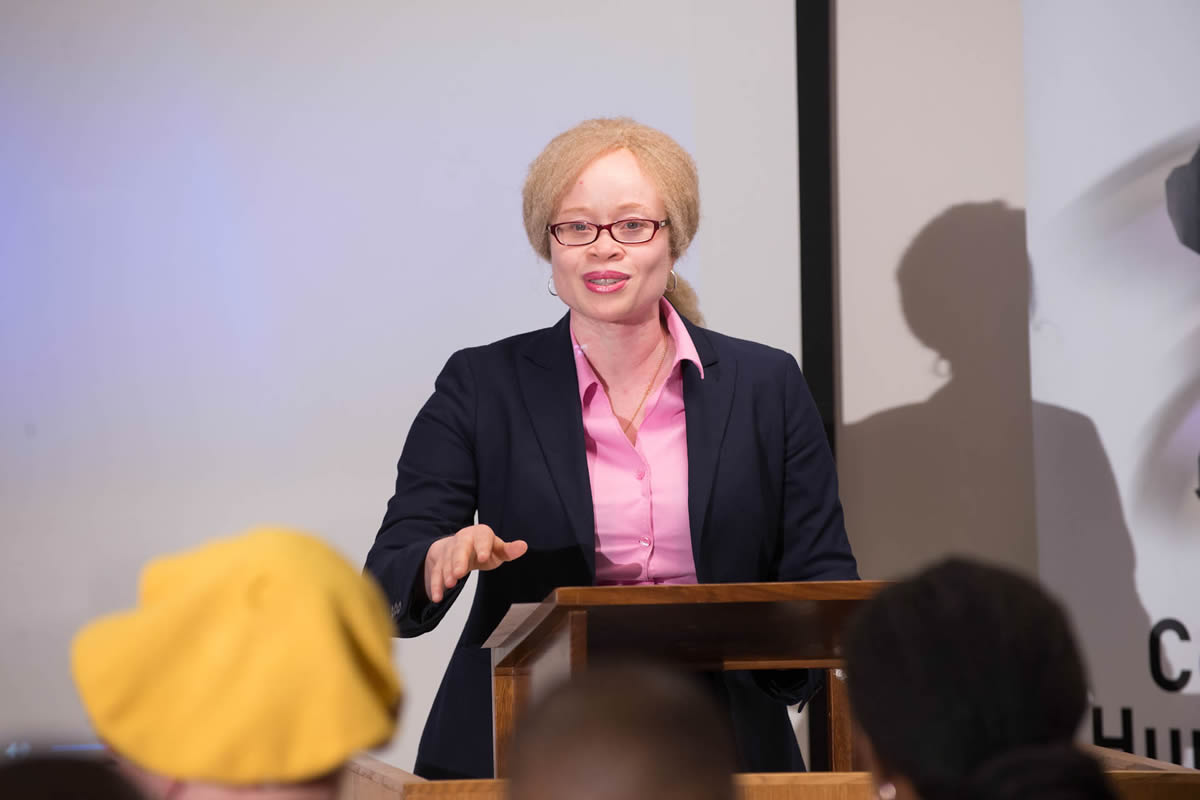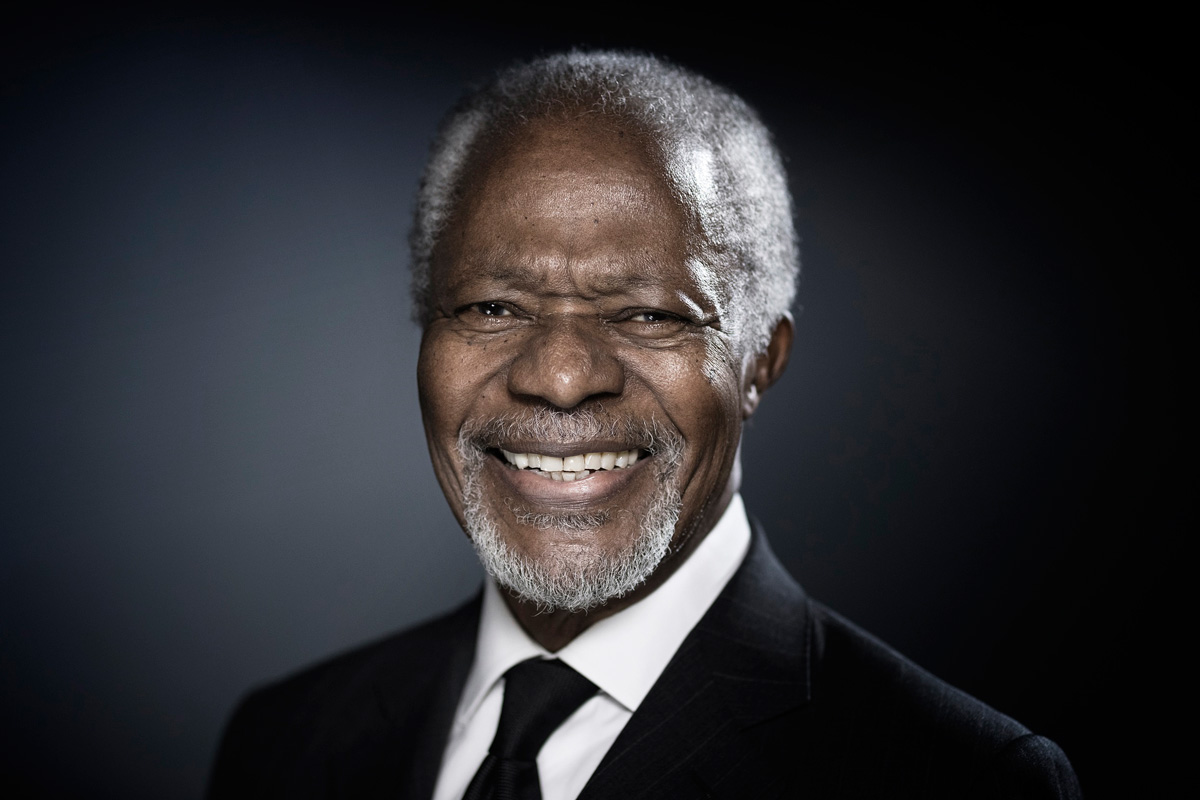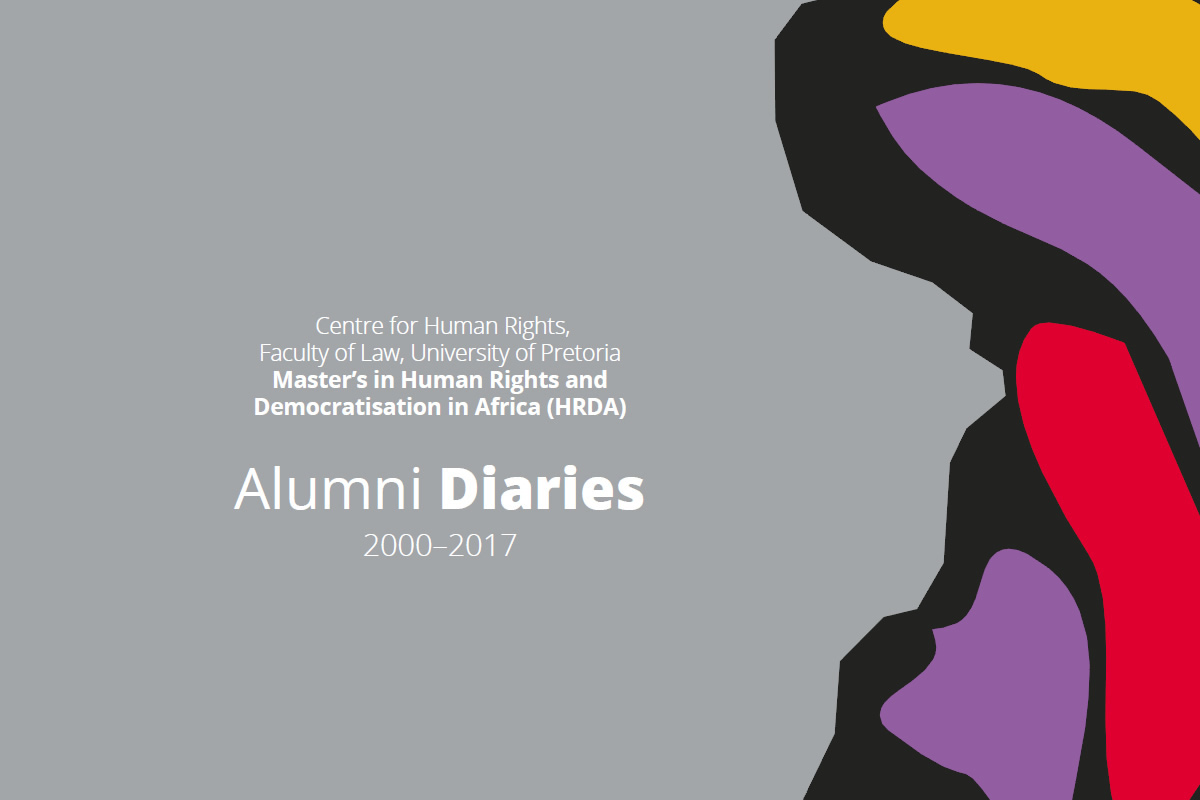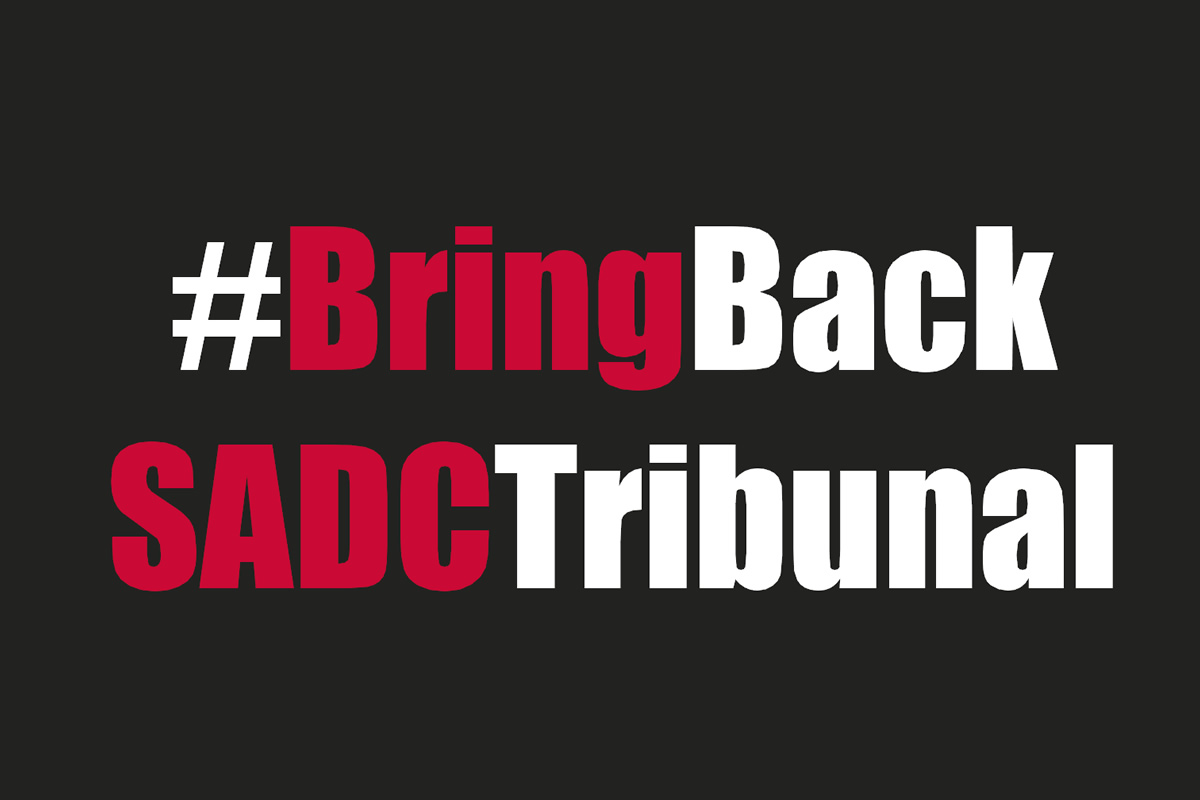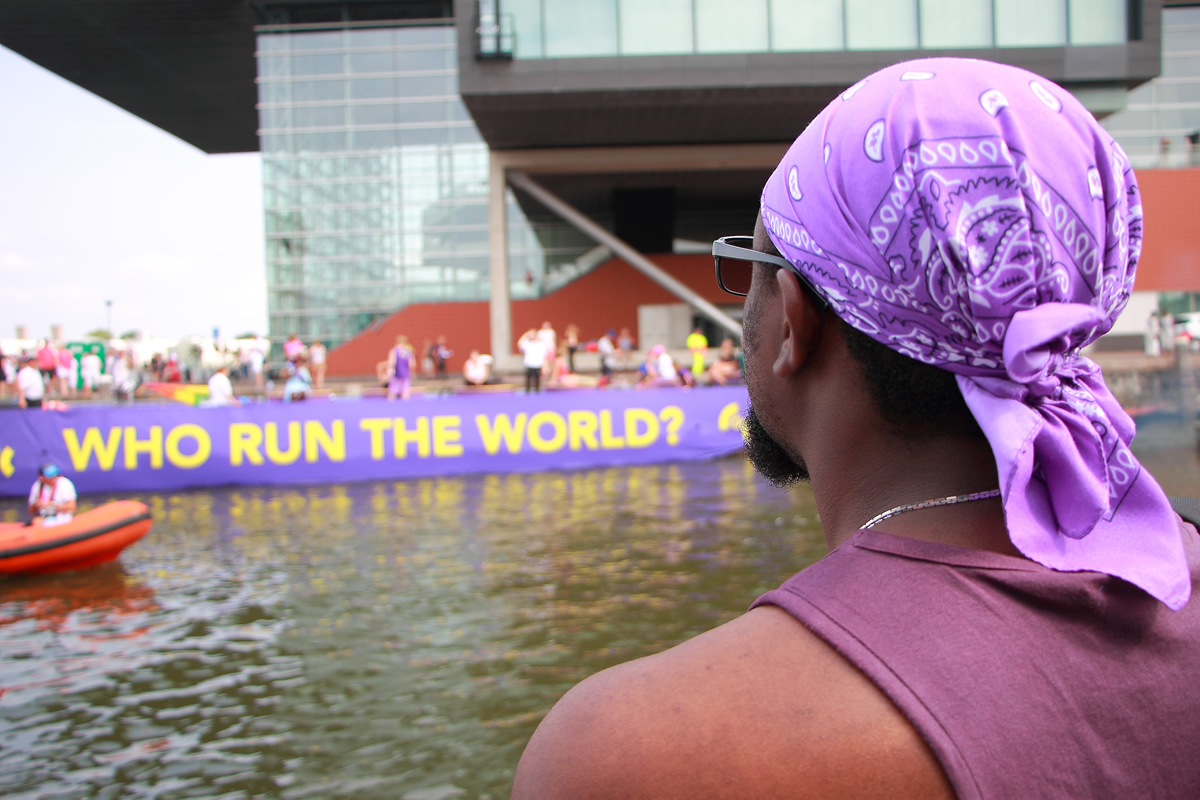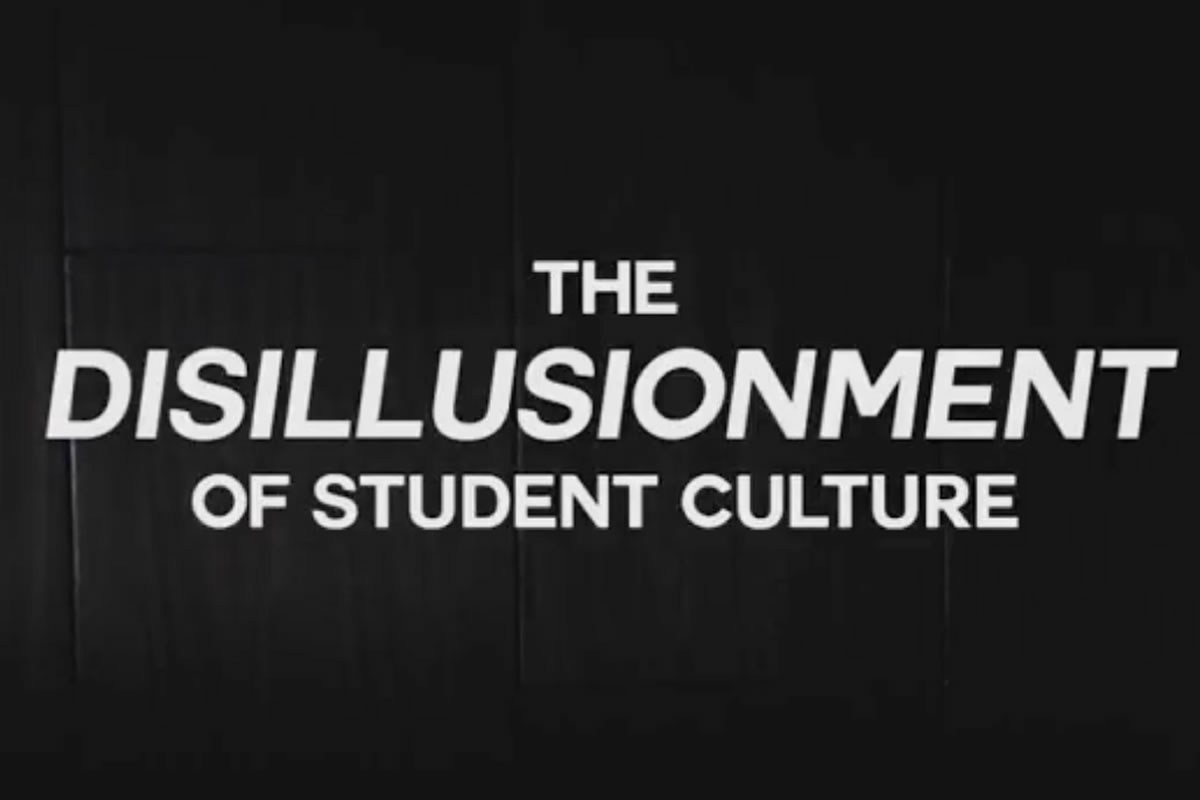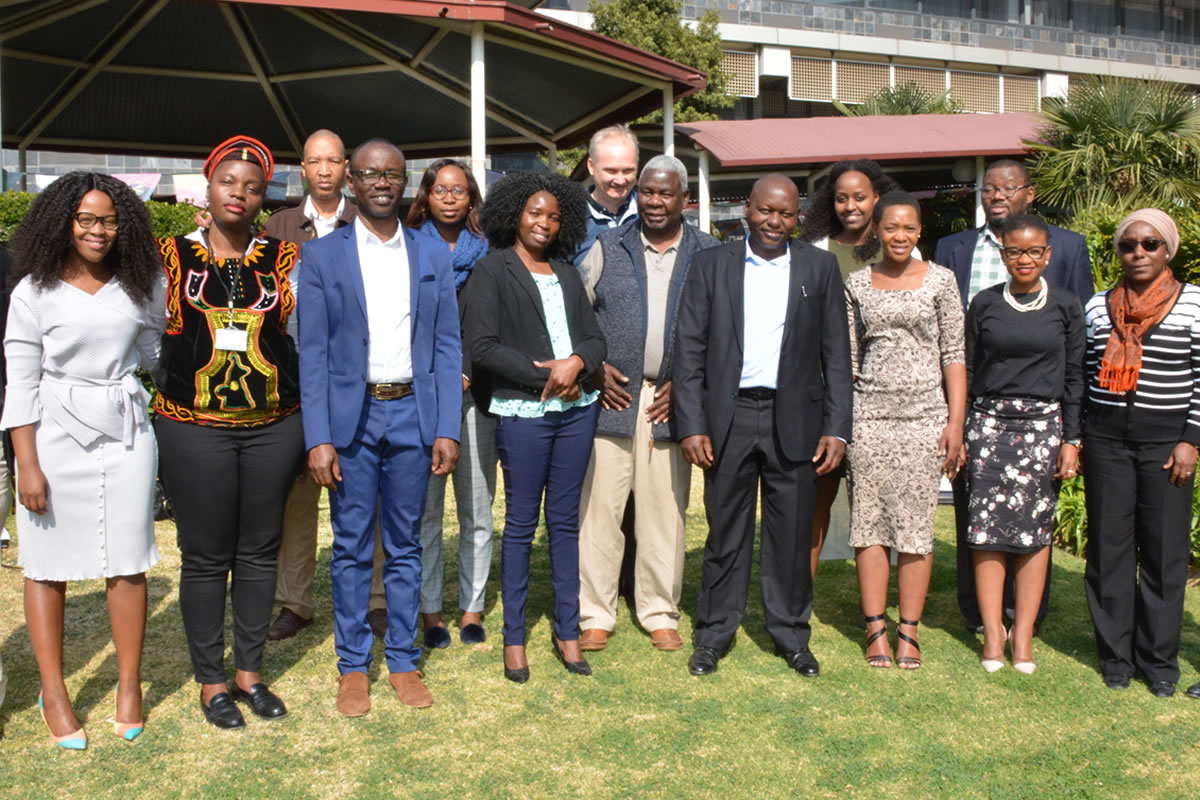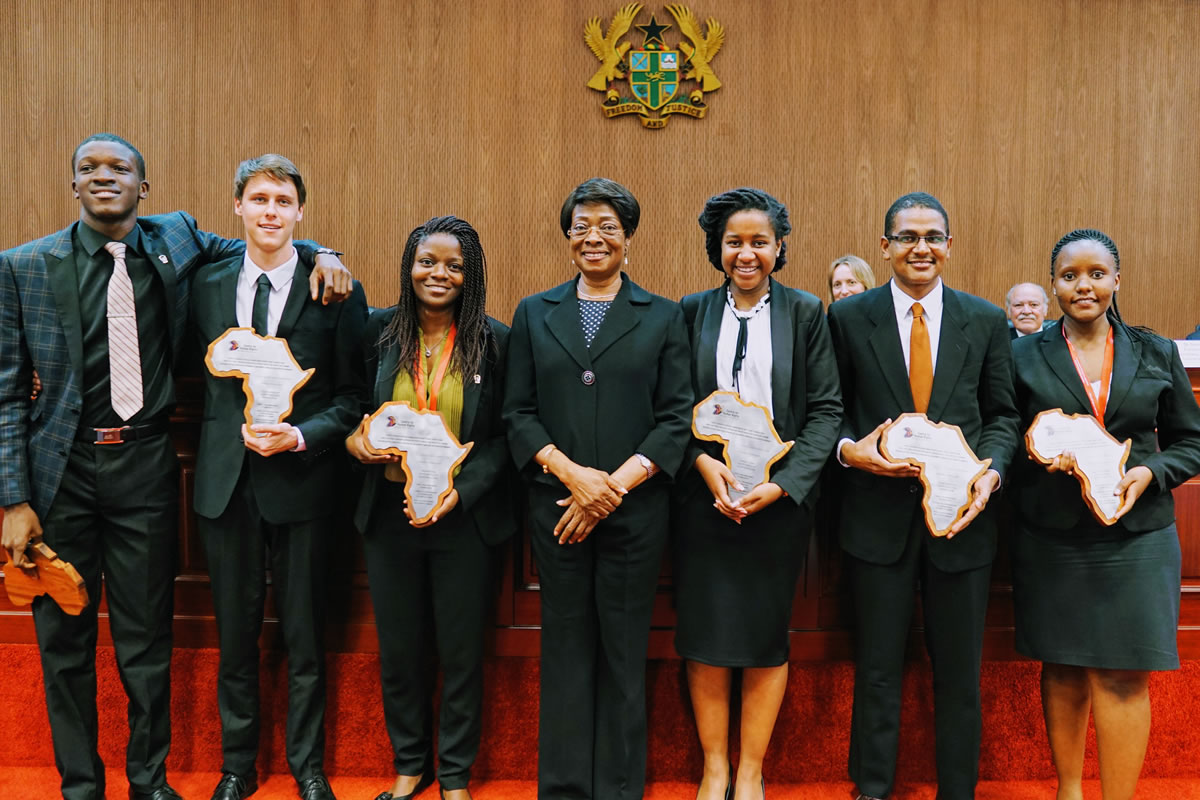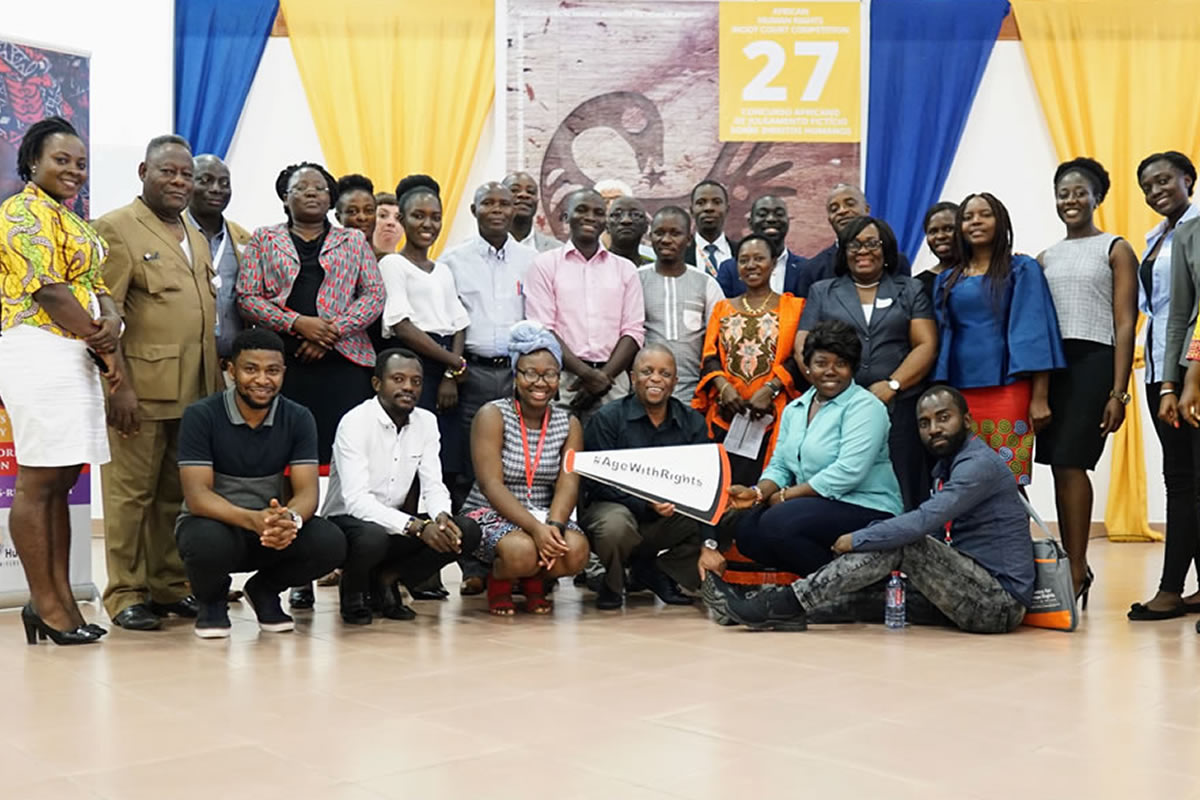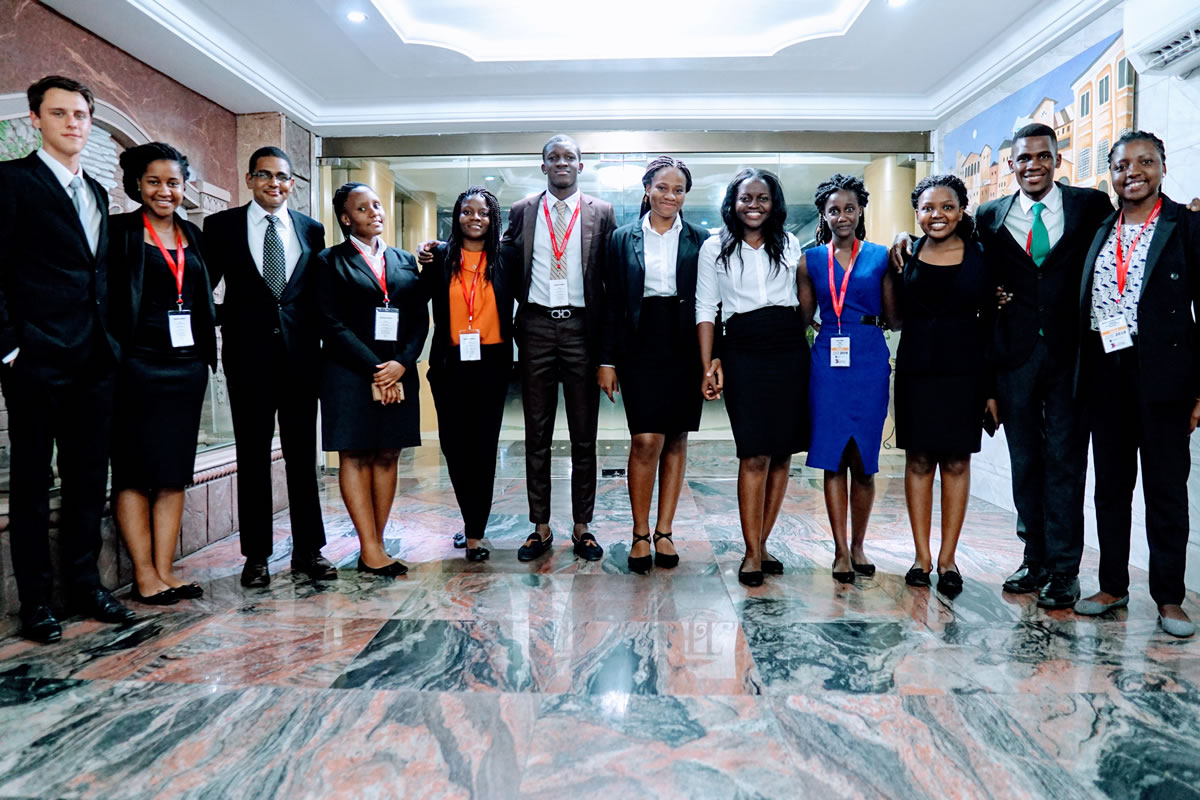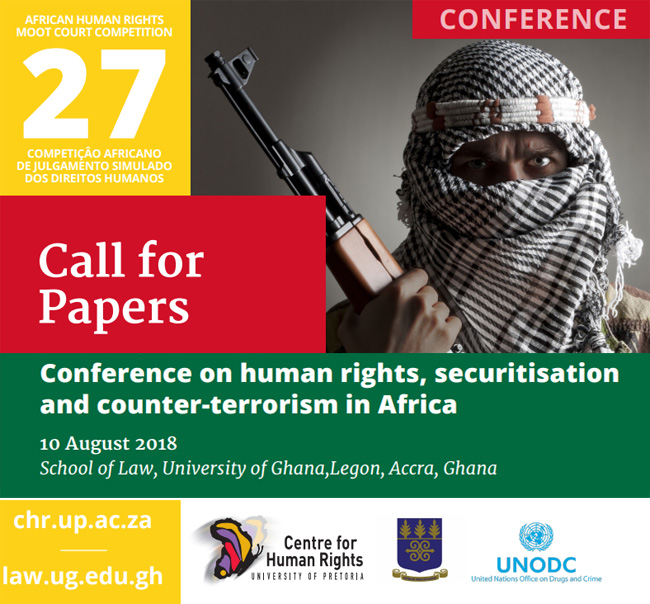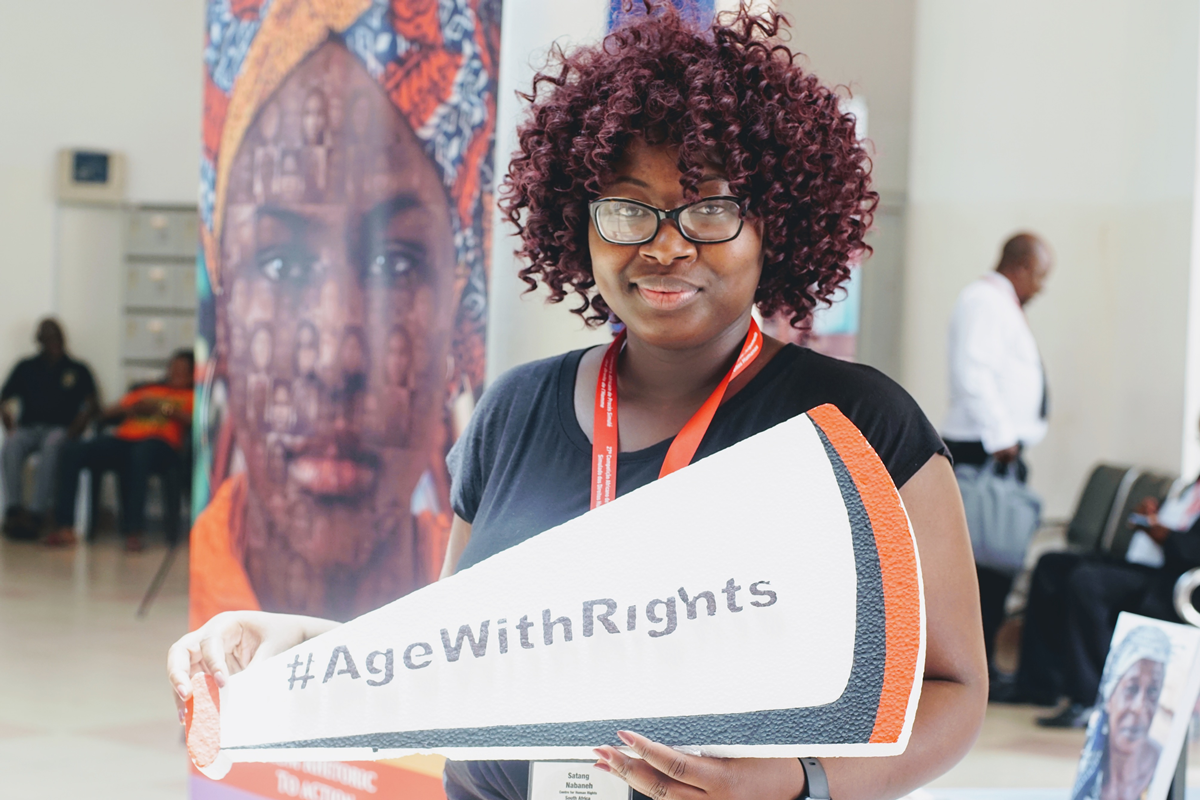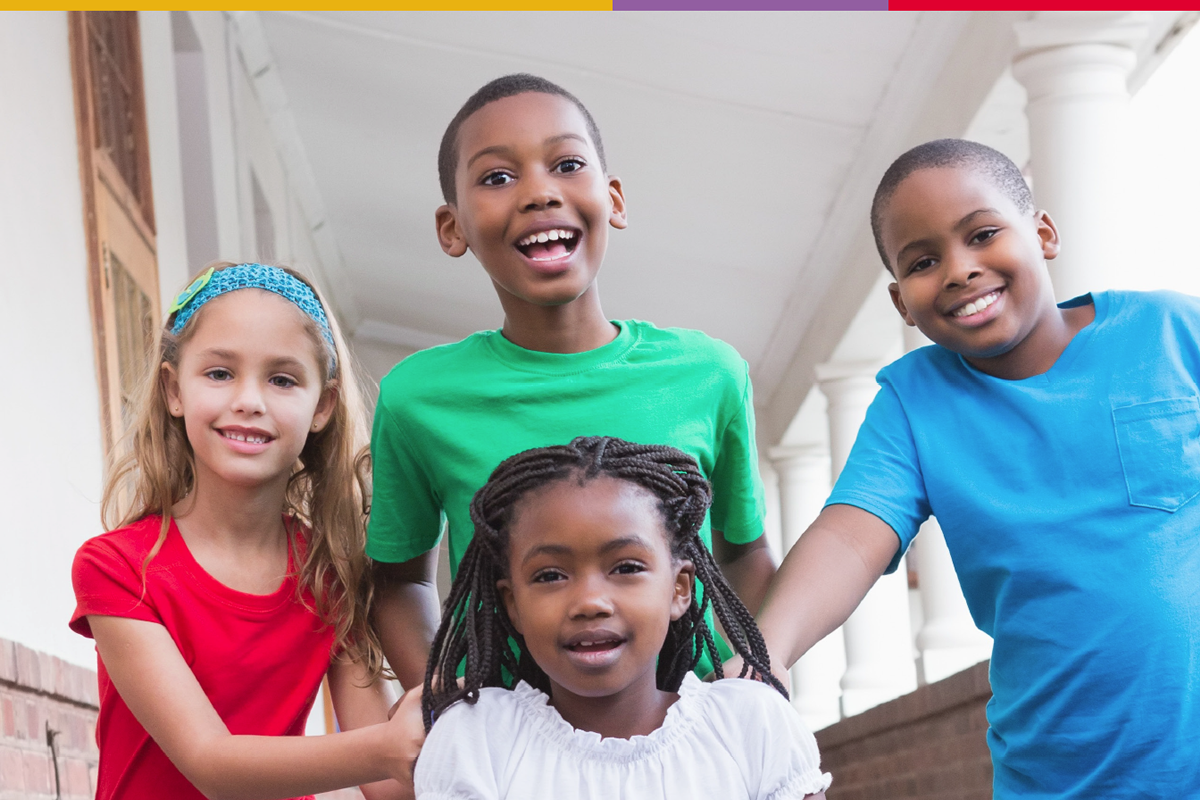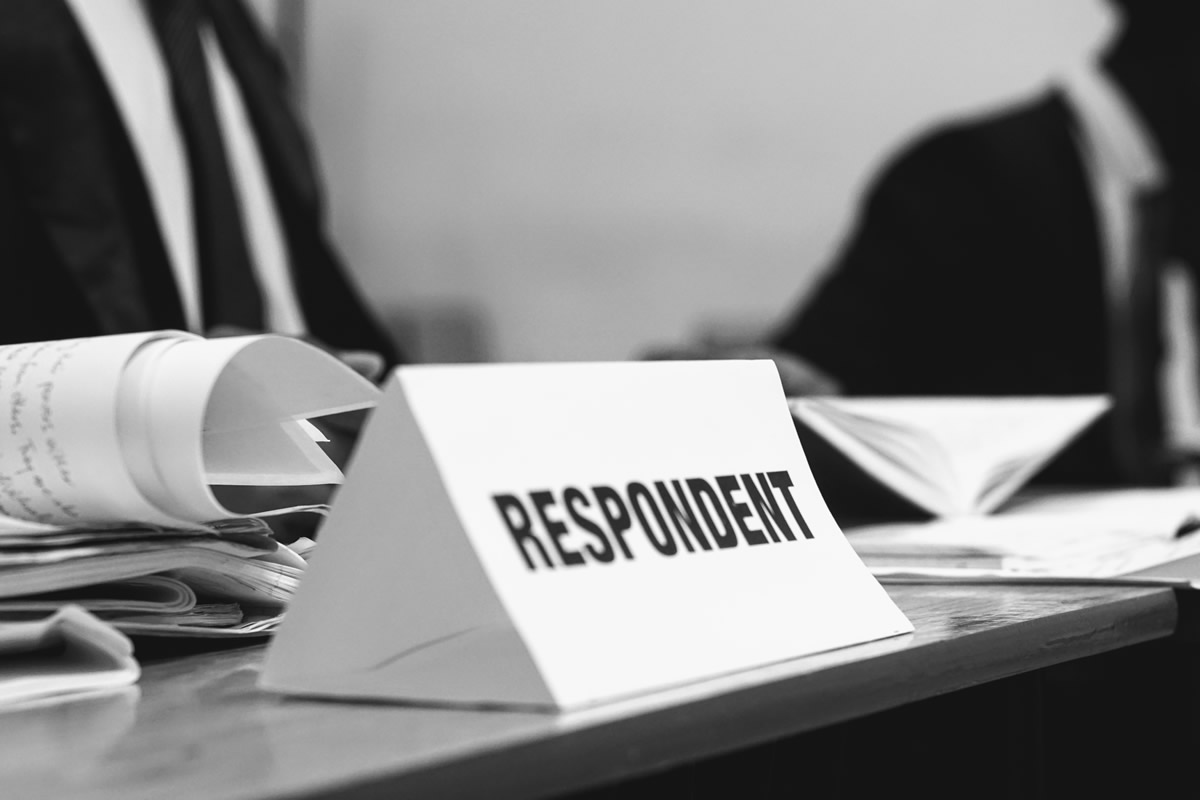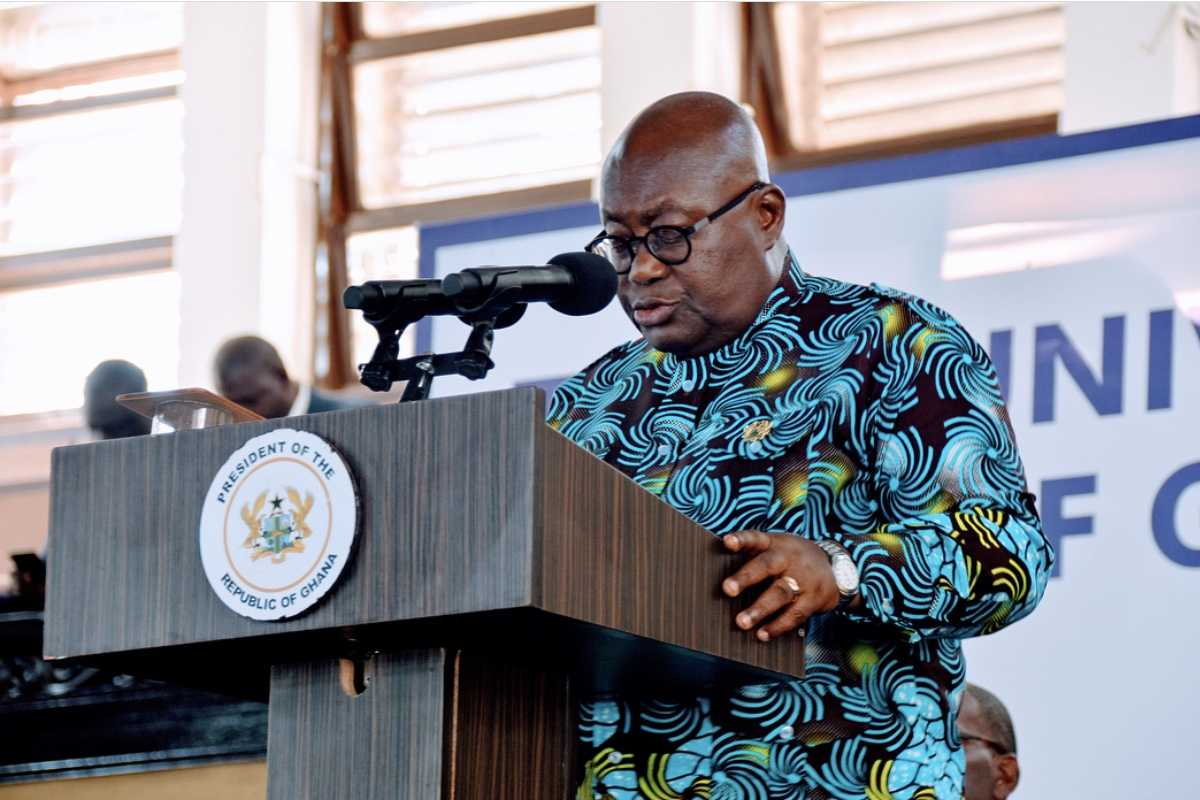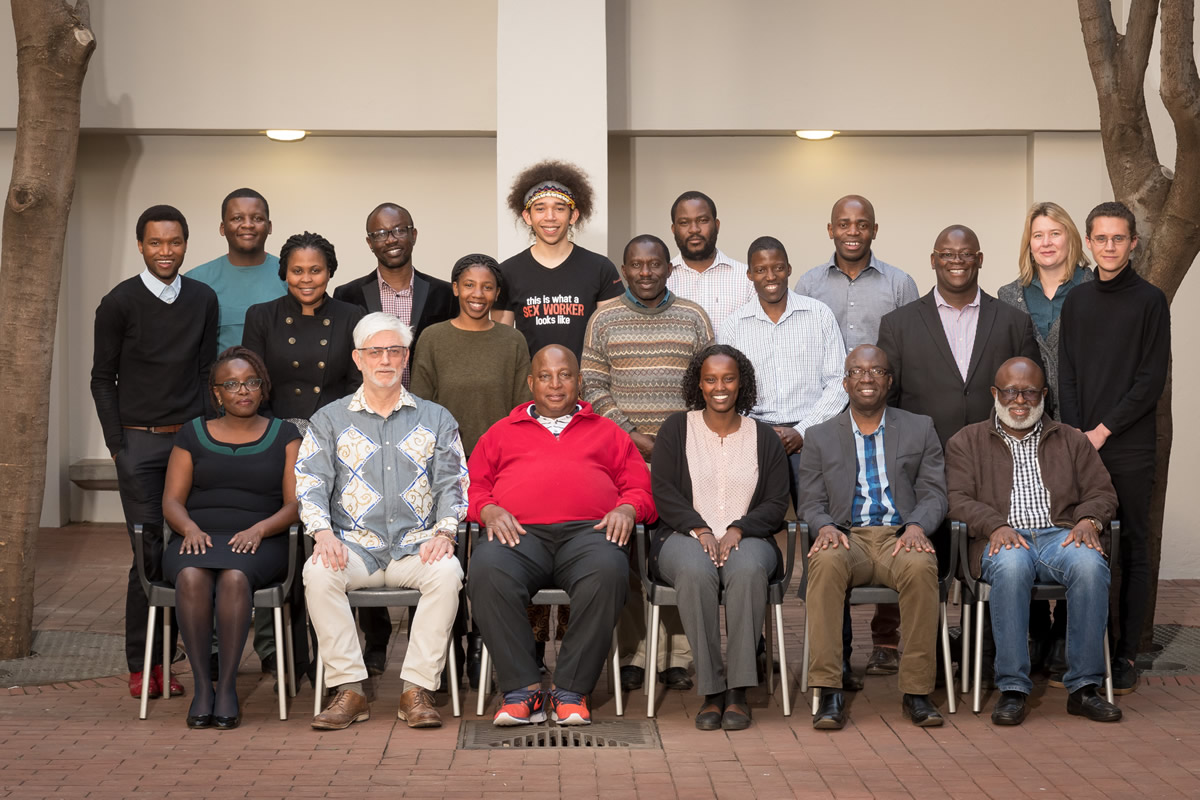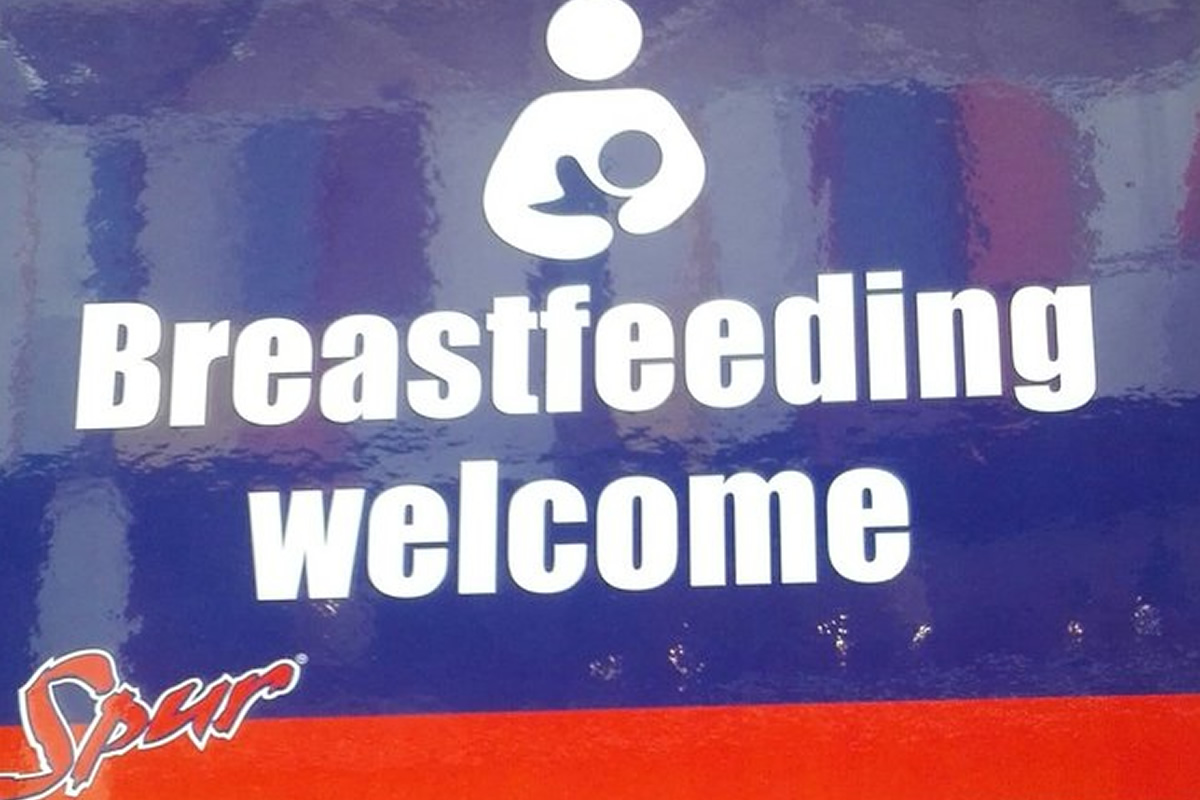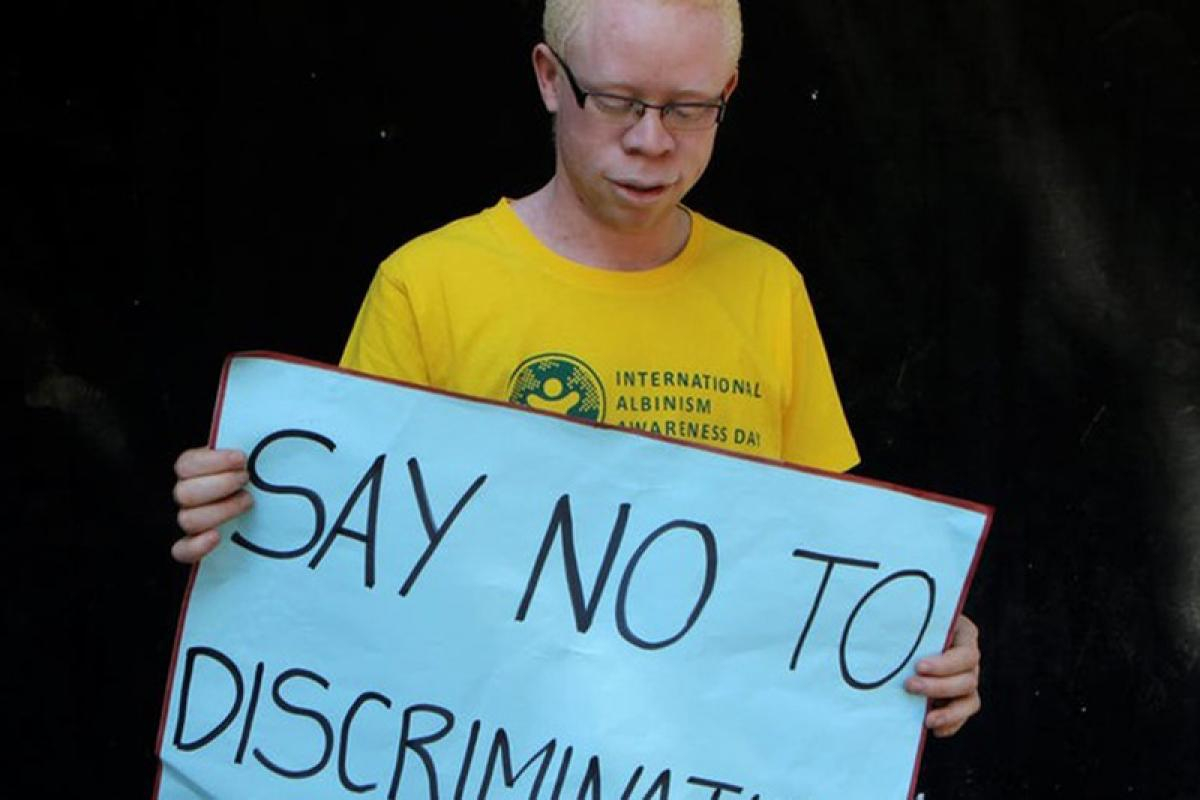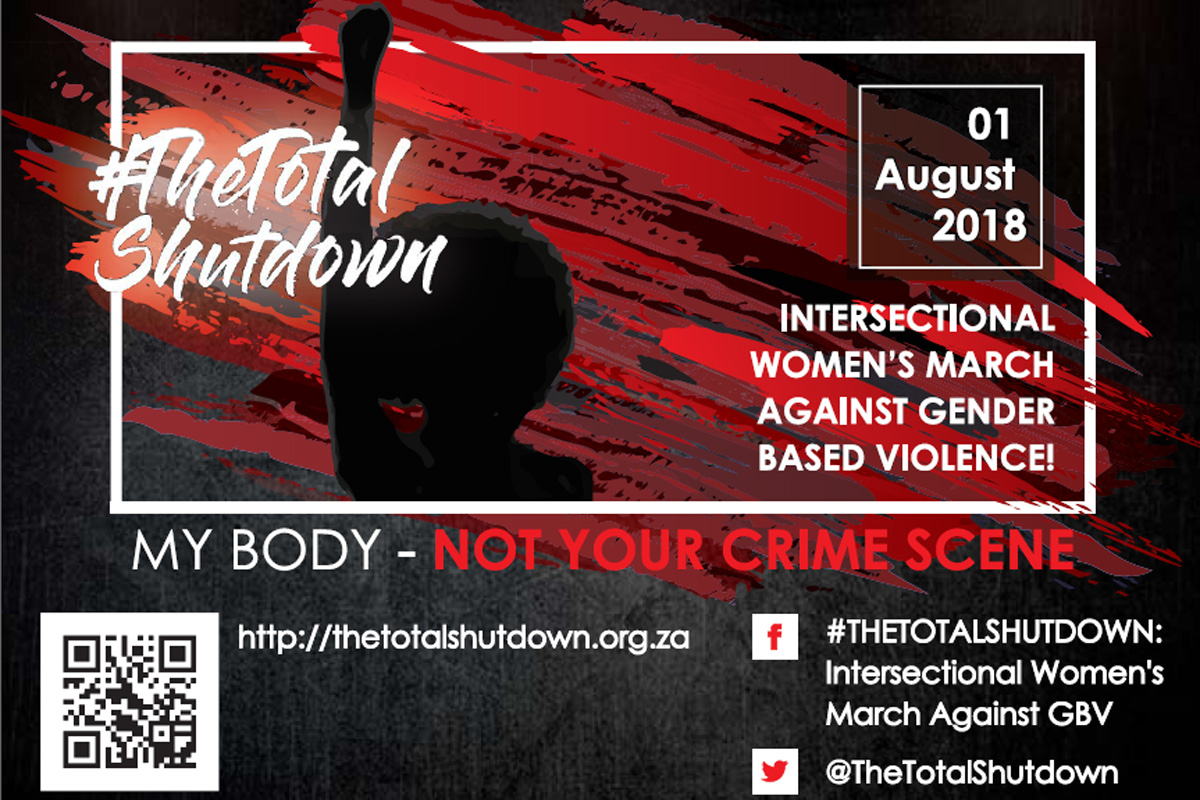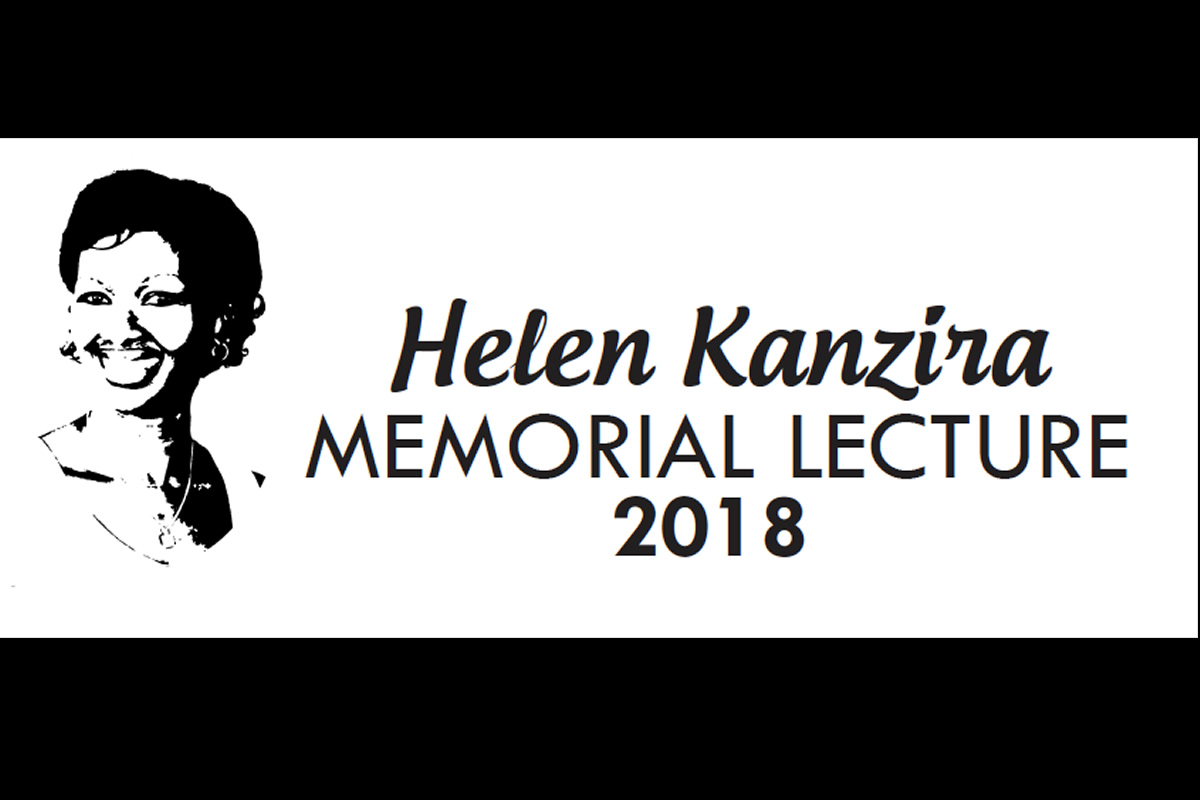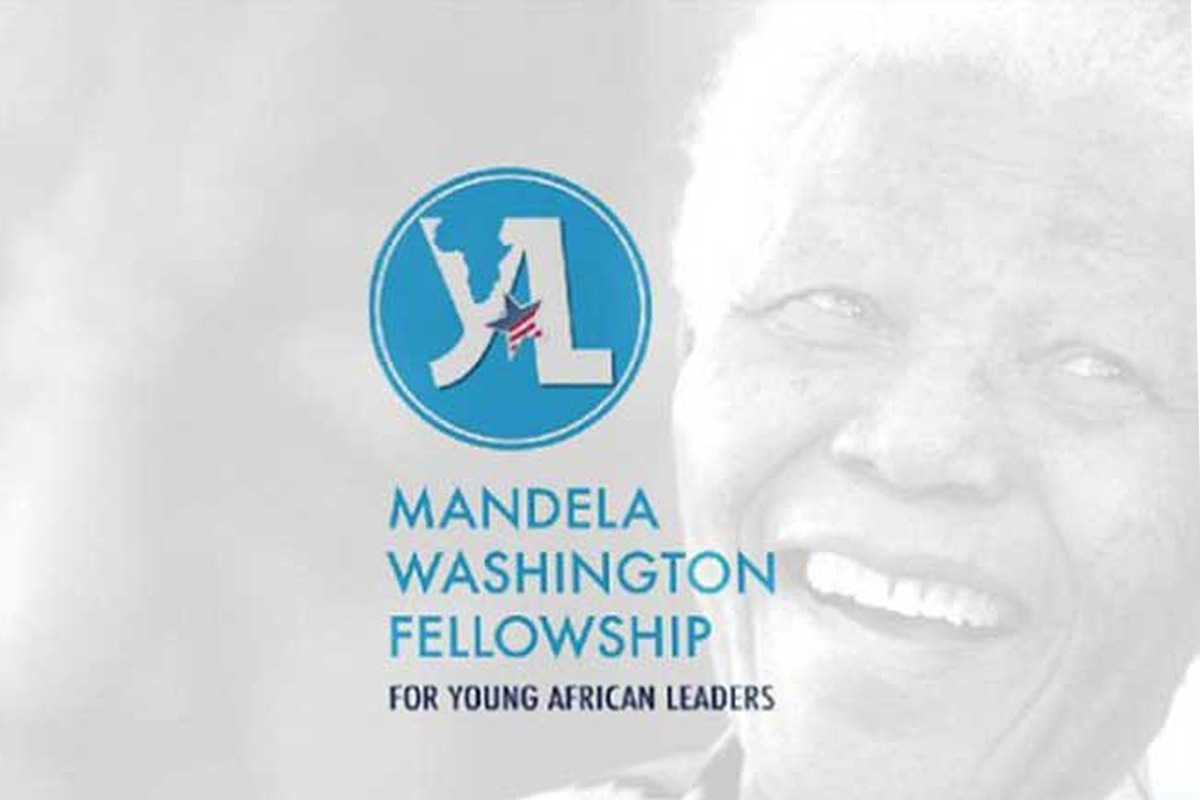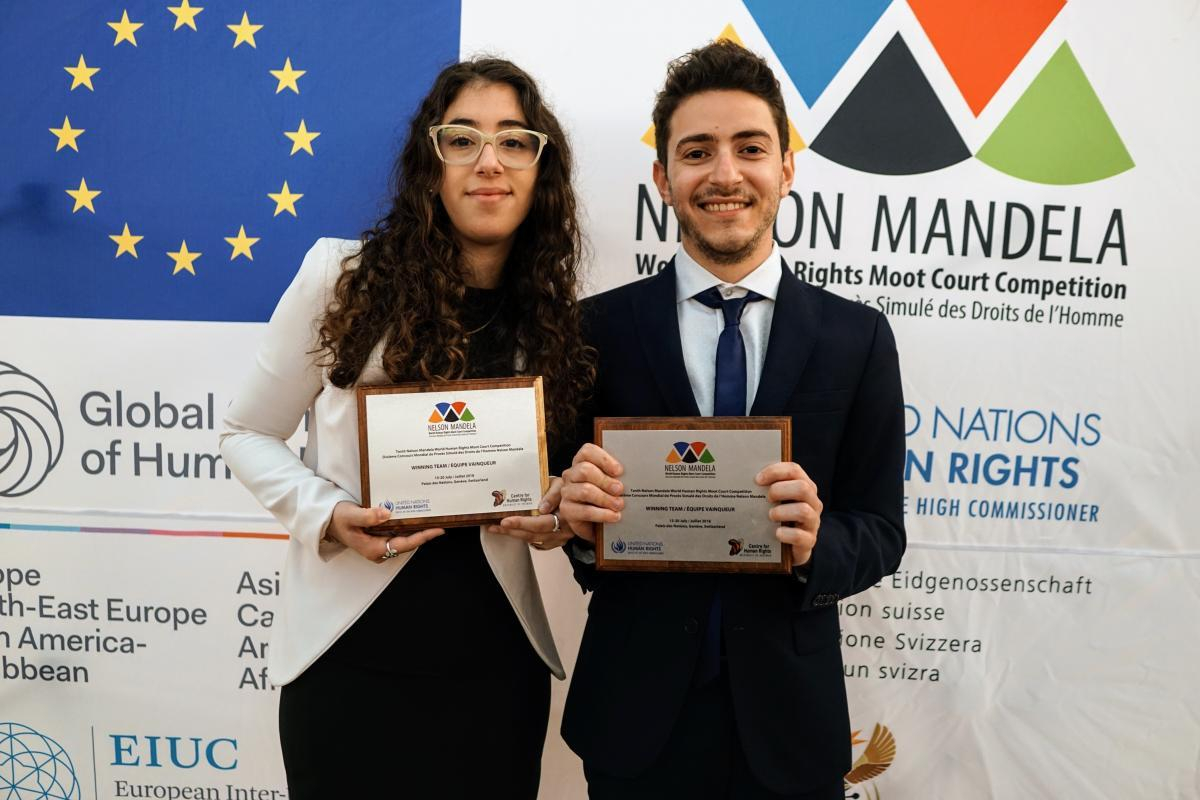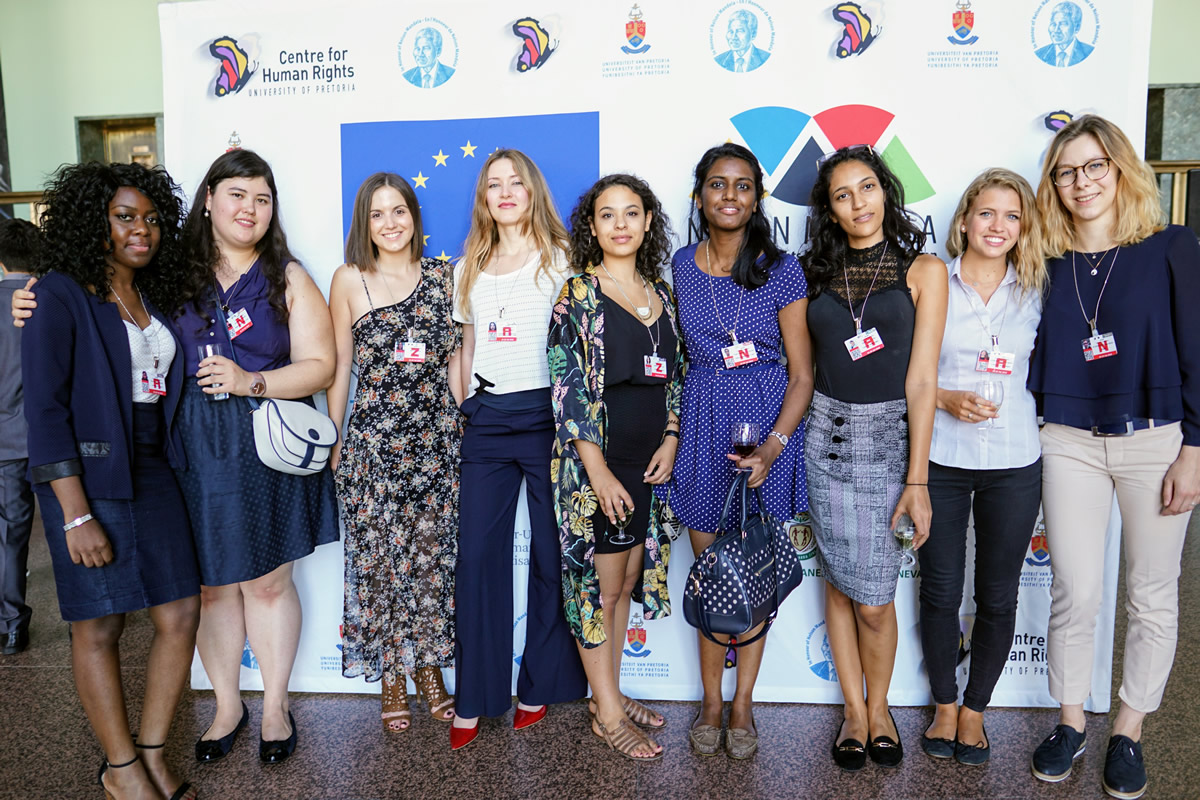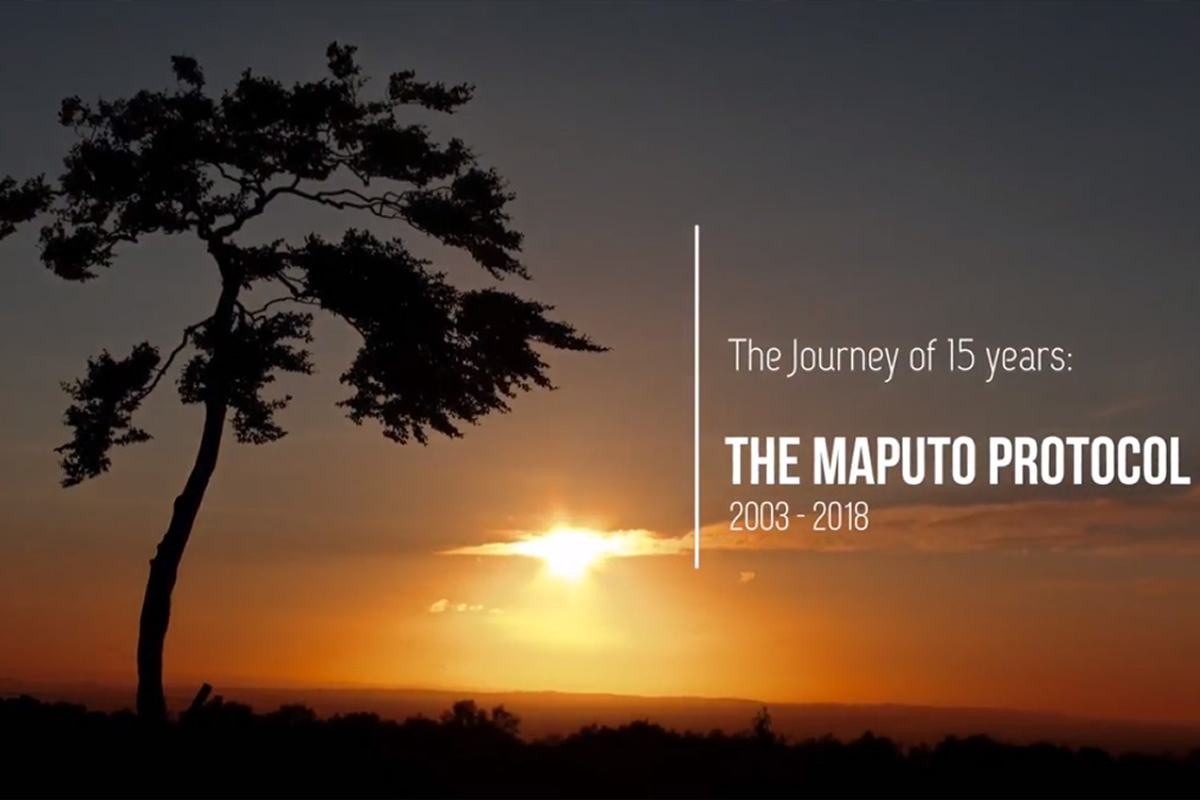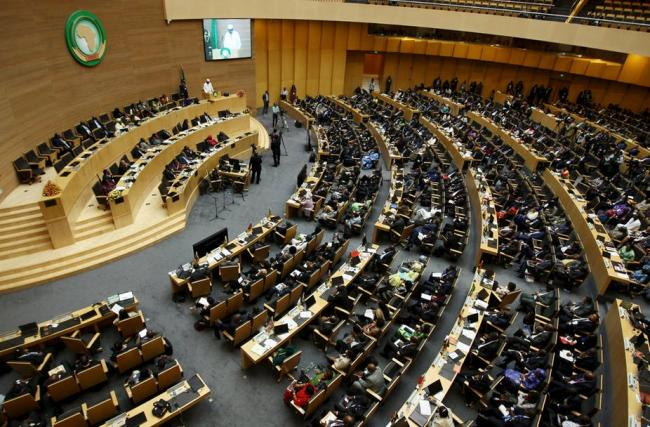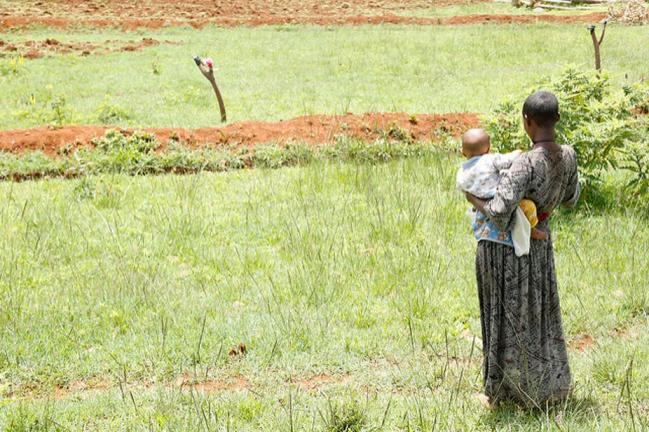- Details
You are cordially invited to Centre for Human Rights Master’s Programmes Welcoming Ceremony where 91 students from 28 African countries will be individually introduced.
- Details
The Global Campus of Human Rights recently launched its latest Massive Open Online Course (MOOC) on the monitoring of human rights of LGBTI persons. The MOOC is open to participants around the world who are actively interested and engaged in LGBTI work at different levels and wish to deepen their knowledge about relevant human rights legal frameworks, monitoring mechanisms, and strategies.
- Details
Is South Africa regularly denying children their right to access education as well as health care on the grounds either of petty bureaucracy or by a misinterpretation of the country’s laws and international obligations?
- Details
On so many levels, the last week of February 2019 was a risky leap for the Queer Space Collective, comprising the Centre for Human Rights and the Centre for Sexualities AIDS and Gender, University of Pretoria. It was the maiden edition of the Invitation: Pride and Letters - Queer Literary Festival. The Pride and Letters ran hand in glove with the Advanced Human Rights Course: Sexual Minority Rights 2019, weaving its content through a more narrative and intimate approach than is the tradition. The three themes addressed in the course of the week were: queer exploration; queer resistance and queer celebration. These days have been chronicled in the week’s diary.
- Details
The Advanced Human Rights Courses (AHRC) and the SOGIESC Unit are currently hosting the annual short course on Sexual Minority Rights in Africa. The maiden edition of the Pride & Letters Queer Literary Festival forms part of the week-long programme.
- Details
The Centre for Human Rights (the Centre), University of Pretoria, fully supports the campaign by the South African Department of Sports and Recreation, against the enforcement of the International Association of Athletics Federations (IAAF) regulations against hyper-androgenic women in sports. This follows an appeal against the regulations made to the Court of Arbitration for Sport (CAS) by Olympic champion Caster Semenya and Athletics South Africa (ASA). The appeal, which is before the CAS, will be concluded on 29 March 2019. The regulations violate the right to bodily autonomy, physical integrity, freedom from non-discrimination and other bioethical considerations.
- Details
The Women's Rights Unit at the Centre for Human Rights, University of Pretoria, is seeking to recruit 3 experienced consultants with knowledge of human rights, particularly women’s rights and familiarity with the African human rights framework. The consultants are expected to develop a State Party report to the African Commission on Human and People’s Rights (African Commission) on the African Charter on Human and Peoples’ Rights (African Charter) and the Protocol to the African Charter on Human and Peoples’ Rights on the Rights of Women in Africa (Maputo Protocol) for Eswatini, Mauritius and Liberia respectively.
- Details
(By Prof Frans Viljoen and Dr Ashwanee Budoo)
Egyptian President Abdel Fattah al-Sisi has been sworn in as the African Union’s chairman until January 2020. A new chair is selected annually from among the members of the African Union Assembly of Heads of State and Government, which is the union’s “supreme organ”.
AL-Sisi’s ascent to this powerful position, even if it’s just for 12 months, should concern anyone who is committed to human rights. The legitimacy of his claim to the Egyptian presidency is tenuous: he came to power in 2013 after staging a coup d’état that overthrew President Mohamed Morsi. That’s in contravention of the AU’s own rules; in fact, Egypt was suspended from the AU after the coup.
- Details
“Poor and vulnerable people are made into criminals for being poor and vulnerable.” – On World Day of Social Justice, Professor Magnus Killander of UP’s Centre for Human Rights argues that some municipal by-laws are effectively criminalising poverty – and should be rethought.
- Details
The Centre for Human Rights, University of Pretoria, is proud to join Professor Danwood Chirwa (left) and Professor Bonolo Dinokopila (right), two of our LLM/MPhil Human Rights and Democratisation in Africa (HRDA) alumni, in celebration of their latest career achievements.
- Details
(By Prof Frans Viljoen)
Angola has decriminalised consensual same-sex acts between adults in private.
An erstwhile Portuguese colony, Angola inherited an ancient colonial statute – dating back to 1886 – that criminalised “indecent acts” and persons habitually engaging in “acts against nature”. These formulations have widely been interpreted as a ban on homosexual conduct.
- Details
The African Disability Rights Yearbook (ADRY) is calling for papers for consideration for publication in Section A of the ADRY in 2019. The ADRY publishes once a year with a focus on disability rights issues and developments of contemporary concern to persons with disabilities on the African continent. It comprises three sections – Section A containing doctrinal articles and for which we are calling for papers; Section B containing country-focused overviews of developments in disability rights in selected African countries; and Section C containing brief overviews of developments at the African regional and sub-regional levels.
- Details
Dear Africa
On 25, 27 February and 1 March 2019, the Queer Space Collective, University of Pretoria, will be hosting the Pride and Letters Queer Literary Festival. Pride and Letters forms part of the Advanced Human Rights Course on Sexual Minority Rights organised by the Centre for Human Rights. Pride and Letters will specifically address three themes Queer Exploration, Resistance and Celebration. The Queer Space Collective is a project run collaboratively by the Centre for Human Rights and Centre for Sexualities AIDS and Gender, both at University of Pretoria with the vision to make the University of Pretoria more inclusive of queer expression and identities through the use of creative writing and expression.
![]() Download this Invitation
Download this Invitation ![]() Download Programme
Download Programme
Spaces are limited. RSVP deadline is 20 February 2019.
- Details
Civil society organisations working on gender-based violence (GBV) express concern over the slow pace at which the South African Presidency is addressing issues identified at the National Summit against Gender-Based Violence and Femicide.
- Details
Professor Daniel Bradlow, International Development Law Unit in the Centre for Human Rights is looking to hire an LLM or LLD student as a Research Assistant to work with him on projects in the area of international economic law.
- Details
The Universal Declaration of Human Rights (UDHR) Multimedia Competition was launched in 2018 by the Centre for Human Rights with four creative categories: still image; audio-visual; oral/audio and written. This competition was open strictly to staff and students of the University of Pretoria. They were invited to think creatively around the specific articles in the UDHR and submit entries under these categories.
- Details
The Information Regulator (South Africa) and the Centre for Human Rights, University of Pretoria, cordially invite you to the 11th International Conference of Information Commissioners (ICIC 2019).
- Details
The African Human Rights Moot Court Competition will be held, for the first time, in Botswana. This year the competition is co-organised by the University of Botswana and will be held from 1 to 6 July in Gaborone.
Call for Applications: Internship opportunity at the Disability Rights Unit, Centre for Human Rights
- Details
The Disability Rights Unit at the Centre for Human Rights seeks to appoint an appropriately qualified individual (student) for its internship programme, based in Hatfield, Pretoria, South Africa
- Details
The Centre for Human Rights (the Centre) congratulates the government, parliament and people of Angola, for the brave steps taken, through its judicial reform programme, towards the decriminalisation of ‘habitual unnatural vices’, into which consensual adult same-sex sexual conduct was read. The Centre also expresses its pleasure towards the criminalisation of crimes based on discrimination including prohibiting crimes based on discrimination based on sexual orientation. To further galvanise the reforms, employment and service discrimination based on sexual orientation is also now illegal. These are major achievements towards respecting and promoting the rights of all citizens of Angola including sexual and gender minorities.
- Details
On Monday 28 January 2019, Mark Deng, a doctoral candidate at the University of Queensland in Australia, made a presentation on 'Constitution building in conflict-ridden South Sudan: A prerequisite for achieving peace and long-term political stability'
- Details
The Centre for Human Rights, University of Pretoria (the Centre) is deeply concerned by the reported ongoing human rights violations in our immediate northern neighbour, taking the form of excessive use of force and restrictions on the free flow of information. We urge the South African government to offer itself as a facilitator to assist in seeking a solution in the interest of Zimbabwe’s people.
- Details
The Information Regulator and the Centre for Human Rights, University of Pretoria invite you to the 11th International conference of information commissioners (ICIC 2019).
- Details
The Centre for Human Rights has awarded the 2018 edition of its prestigious Vera Chirwa Award to Solomon Joojo Cobbinah in recognition of his contribution towards the advancement of the socio-economic rights of the most vulnerable in Africa, especially in Ghana, through his courageous and impactful journalism.
- Details
On 11 December 2018, the Constitutional Court of South Africa in the matter between Law Society of South Africa and Others v. The President of the Republic of South Africa and Others, upheld the 1 March 2018 decision of the Northern Gauteng High Court that the President’s decision and signing of the 2014 Protocol which disbanded the Southern African Development Community (SADC) Tribunal was unconstitutional, unlawful and irrational. The Court thereby ordered the President to withdraw his signature from the 2014 Protocol to the SADC Tribunal.
- Details
On 10 December 2018, the world celebrated International Human Rights Day and commemorated the 70th Anniversary of the Universal Declaration of Human Rights (UDHR). Indeed the UDHR and subsequent human rights instruments have had an enduring impact on the lives of many across the world and has arguably contributed to a more equitable world. The adoption of the UDHR coincided with the institution of formalised apartheid in 1948. As the struggle against apartheid intensified over the subsequent period, the world-wide resistance was increasingly framed along the underlying values and provisions of the UDHR.
- Details
The Centre for Human Rights, University of Pretoria, in collaboration with the Department of Public Law is launching a Master’s degree programme (LLM/MPhil) in Disability Rights in Africa. The programme is unique in that it is the first Master’s programme in disability rights in Africa. The Master’s programme focuses on the implementation of disability rights in Africa in line with the Convention on the Rights of Persons with Disabilities (CRPD) and the newly adopted Protocol to the African Charter on Human and Peoples’ Rights on the Rights of Persons with Disabilities in Africa (African Protocol). The mission of the programme is “[E]ducating passionate defenders of the rights of persons with disabilities with a deep understanding of the rights of persons with disabilities and providing tools to work towards reasonable accommodation and against discrimination and stigma of persons with disabilities.”
- Details
On 10 December 2018, staff of the Centre for Human Rights, University of Pretoria were at the University of Kwa Zulu Natal to mark the International Human Rights Day at the AfroGames 2018 which included a Symposium on ‘Decolonising of LGBTI rights in Africa’. The symposium of hosted by University of Kwazulu-Natal’s School of Law in collaboration with the AfroGames 2018.The symposium began with a key note address Justice Edwin Cameron. It was highlighted that this year 2018 is particularly important in the discourse on the human rights of LGBTI persons on the African continent because it jointly marks 70 years of the adoption of the Universal Declaration of Human Rights and 20 years of the passing of Simon Nkoli, one of South Africa’s most celebrated LGBTI rights and anti-apartheid activist.
- Details
On 10 and 11 December 2018, the Amsterdam Rainbow made its debut on the African continent in the Gauteng Province. The Amsterdam Rainbow dress is ‘ a work of art made from the flags of all countries in the world where homosexuality is illegal’. Being that most of the flags that make up the dress are African, it is important that the dress has come in its beauty to symbolise this sad truth.
- Details
At the Centre for Human Rights Graduation Ceremony on 7 December 2018, which was the last Graduation Ceremony presided over by the current Vice-Chancellor and Rector of the University, Professor Cheryl de la Rey, an honorary doctorate degree was awarded to former Deputy Chief Justice Dikgang Moseneke. The event, at which degrees were awarded to students in human rights, commemorates 100 years since the birth of former President Nelson Rolihlahla Mandela, and 70 years since the adoption of the Universal Declaration of Human Rights.
- Details
On the 28th of November, the Centre for Human Rights in Collaboration with Cliffe Dekker Hofmeyr Pro Bono and Human Rights Practice hosted the ‘Pride and Plight’ exhibition in Sandton, Pretoria. The exhibition brought together key partners, government representatives, and human rights advocates and showcased incredible art works by Helena Hugo, Cindy Awuor, Paulina Mazlbuko, Kenneth Nkozl, Charles Nkosl, Andrew Tshabangu, Dominic Tshabangu, Lisa Nettleton and our very own Advocacy Coordinator, Adebayo Okeowo and University of Pretoria’s Curator, Daniel Mosako.
- Details
The Keba Mbaye conference hosted by the Centre for Human Rights on 5 and 6 December 2018, aims to put Africa at the centre of scholarship and practice. It has brought together about a hundred scholars and students from across Africa, the Diaspora and India. The Centre partnered with the Makerere University, Strathmore University, and the University of Johannesburg in organising this event.
- Details
On 29 November 2018, The Centre for Human Rights, Media Institute for Southern Africa and Zimbabwe Lawyers for Human Rights organized a workshop in Harare, Zimbabwe, aimed at reflecting on Zimbabwe’s 2018 elections. This was in the context of access to information , freedom of expression and digital rights against the backdrop of the normative standards adopted by the African Commission on Human and Peoples’ Rights such as the Model Law on Access to Information in Africa and the Guidelines on Access to Information and Elections in Africa. The workshop was attended by representatives from the media, media organisations, political parties, election monitors and civil society organisations including women, youth and disability organisations.
- Details
The Sexual Orientation, Gender Identity and Expression and Sex Characteristics (SOGIESC) Unit continues to celebrate LGBTIQ+ Africans who have bravely served and are still bravely serving their communities in various capacities worthy of note.
- Details
- Details
Christof Heyns, professor in the Centre for Human Rights, University of Pretoria, was appointed by the United Nations Human Rights Committee, of which he is a member, to lead a two-year process to draft guidelines on the proper management of demonstrations. This will be the leading UN text setting out the international legal and other standards determining how States must approach mass protest and other forms of assembly.
The 18-member Human Rights Committee will start in March 2019 to draft the new guidelines, with inputs from the 172 States that are members of the International Covenant on Civil and Political Rights, as well as other interested parties, such as police organisations and NGOs
- Details
The Centre participated in the CSO forum of the ACERWC which took place in Addis Ababa, Ethiopia from 9 to 12 November 2018 under the theme, ‘leave no child behind for Africa’s development: Setting the CSO agenda’. The Centre also participated in the 32nd session of the ACERWC which was held from 12 to 20 November 2018 in Addis Ababa.
- Details
The Centre for Human rights in collaboration with Cliffe Dekker Hofmeyr Pro Bono and Human Rights Practice is organising an exhibition 'Pride and Plights' to draw attention to the critical challenges faced by older women whilst also celebrating their resilience and amazing contributions to the society.
Date: 28th November
Venue: Cliffe Dekker Hofmeyr , 1 Protea Place, Sandton
Time: 17:30 for 18:00
- Details
Statement by the centre for human rights in commemoration of transgender day of rememberance – 20 November 2018
November 20 is marked as International Transgender Day of Remembrance or TDoR. It is a day to remember all those who have been murdered because of their gender identity and expression as transgender persons. The Centre for Human Rights calls upon the affirmation of transgender lives and bodies through supportive laws and protections for transgender persons, as well as education around respect for the right to life and the identities of transgender people.
- Details
South Africa ratified the African Charter on the Rights and Welfare of the Child (the Children’s Charter) in 2000. Its main obligation under this African Union treaty is to ensure that the rights of children in the country are fulfilled. As a State Party to the Charter, South Africa is also required to periodically report on the progress that is has made towards implementing the Charter. In terms of article 43(1) of the African Children’s Charter, which regulates the reporting procedure, an initial report to the African Committee of Expert on the Rights and Welfare of the Child (the Committee) is required within two years of ratifying the Charter, and thereafter every three years.
- Details
The Centre for Human Rights, University of Pretoria hosted the 6th annual Disability Rights in Africa conference from the 6th to the 7th of November 2018 at St George Hotel in Pretoria. The theme for this year’s conference was “Are we learning together? Addressing barriers to inclusive education in the African region.”
- Details
The Centre for Human Rights (the Centre) organised a panel discussion on access to information and elections in Africa during the African Commission on Human and Peoples’ Rights’ (African Commission) 63rd Ordinary Session in Banjul, The Gambia. The panel discussion was held on 28 October 2018, and was moderated by the Special Rapporteur on Freedom of Expression and Access to Information in Africa, Commissioner Lawrence Mute. The panel consisted of Maxwell Kadiri, of the Open Society Justice Initiative; Raouf Salami, of the ECOWAS Network of Electoral Commissions (ECONEC) and Joana Cortes, a senior official of the Gender Ministry of Angola. The discussion was aimed at popularizing and facilitating dialogue on the Guidelines on Access to Information and Elections in Africa (the Guidelines), which the African Commission adopted during the 61st Ordinary Session in November 2017.
- Details
Du 30 octobre au 01 Novembre 2018, le département de droits de la femme du Centre des droits de l'homme de l’Université de Pretoria a organisé et animé un atelier régional de soumission de rapports sur la Charte africaine des droits de l'homme et des peuples (Charte africaine) et le Protocole à la Charte africaine des droits de l'homme et des peuples relatif aux droits des femmes en Afrique (Protocole de Maputo). Cet atelier a connu la participation de représentants du Gabon, de la République du Congo, du Djibouti et de la Guinée Équatoriale. L’atelier a eu pour cadre, la salle de conférence de l'hôtel Fortis à Pretoria.
- Details
On Monday 5 November 2018, participants from across the region came together to discuss critical issues of inclusive education in the African Context. The roundtable was organised by Open Society Foundation in collaboration, UNESCO and the Centre for Human Rights on the eve of the Center’s annual African disability rights conference, which is held on the 6-7 of November, 2018.
- Details
The Women’s Rights Unit of the Centre for Human Rights was involved in various activities at the 63rd ordinary session of the African Commission on Human and Peoples' Rights which is currently been held in Banjul, The Gambia from 24 October to 7 November 2018. The session was preceded by the NGO Forum and 37th African Human Rights Book Fair, which took place from 20 to 22 October 2018.
- Details
Day one of the two day conference on Disability Rights in Africa kicked off this morning at St George’s Hotel in Pretoria with welcome addresses from Professor Andre Boraine, Dean of the Faculty of Law, University of Pretoria and Professor Frans Viljoen, Director of the Centre for Human Rights, University of Pretoria. Professor Boraine in his address said the conference was a platform for participants to exchange and explore ideas on how the right to inclusive education as set out in Article 24 of the UN Convention on the Rights of Persons with Disabilities can be implemented. He went on point out that the over representation of persons with disabilities among the poor was due to their under representation in education systems. Professor Viljoen echoing Professor Borraine called on States to ratify the Protol to the African Charter on Human and People’s Rights on the Rights of Persons with Disabilities in Africa to ensure the right of education of children with disabilities in Africa. To date no African State has ratified the Protocol.
- Details
- Details
The Centre for Human Rights, Faculty of Law, University of Pretoria, will be hosting its annual disability rights in Africa conference from the 6 - 7 November 2018.The theme of this year’s conference is ‘Are we learning together? Addressing barriers to inclusive education in the African region’. The focus of the conference will be on addressing the barriers to implementation of inclusive education in the African region
- Details
The Centre for Human Rights, Faculty of Law, University of Pretoria on 26 October 2018 held a side event on Resolution 275 of the African Commission on Human and Peoples’ Rights. The Resolution passed by the African Commission in 2014 calls upon state parties to stop violence and other human rights violations against people who identify as gay, lesbian, bisexual or transgender. The purpose of the side event was to discuss how Resolution 275 can be implemented by state and non-state actors. Against this background, the Centre for Human Rights in partnership with Network of African National Human Rights Institutions (NANHRI) successfully launched the Implementation Guidelines on Resolution 275.
- Details
The Democracy and Transparency Unit of the Centre hosted an East African Civil Society round-table forum in Kigali, Rwanda at the sidelines of a session of the Pan-African Parliament (PAP). The forum participants included academics, law students from Rwanda University and Kigali University, a representative from Rwanda Ministry of Justice and members of various civil society organisations in Rwanda, Uganda, Tanzania and Kenya.
- Details
What brings us – states, Commission, civil society, and others – here, to the 63rd session if the African Commission on Human and Peoples’ Rights, is our joint pursuit to better protect the rights of Africa’s peoples – in all their diversity. We have just lived through the second year of the AU’s 2016-declared Human and Peoples’ Rights Decade in Africa 2017-2026. However, Africa’s people would be forgiven for feeling perplexed and disappointed, and question the legitimacy of both their states and the African Commission to claim to be protectors of their rights.
- Details
‘Freedom from Violence in Africa’ is a research programme that focusses on violence and securing the right to life in Africa. It is a multi-disciplinary programme that engages in the African context with the aspiration of the UN Sustainable Goal 16 to establish ‘peaceful societies.’
- Details
On Friday, 19 October 2018, there was a one-day technical support meeting for stakeholders from Uganda. The meeting was organised jointly by the Ministry of Justice and Constitutional Affairs and the Centre for Human Rights. The meeting was held at the Protea hotel, Entebbe. Participants for this meeting were drawn from Government ministries, National Human Rights Commissions and civil society in Uganda. Participants were also members of a task team that had been set up for the purposes of drafting state reports on all the treaties that Uganda is party to. The meeting was earmarked specifically to offer technical support to Uganda's current draft report as part of the state's efforts to fulfil its reporting obligations under the African Charter and the Maputo Protocol to the African Commission.
- Details
From Tuesday, 16 October 2018 to Thursday, 18 October 2018, the Women's Rights Unit of the Centre for Human Rights organised and conducted a regional state reporting workshop on the African Charter on Human and Peoples Rights (African Charter) and the Protocol to the African Charter on Human and Peoples Rights on the Rights of Women in Africa (Maputo Protocol) for four African countries namely, Uganda, Kenya, Ethiopia and South Sudan. The workshop was organised and hosted in collaboration with the Ministry of Justice and Constitutional Affairs, in Uganda. It was held at the Protea hotel, Entebbe.
- Details
On 11 and 12 October 2018, the Centre for Human Rights, University of Pretoria in collaboration with the Special Rapporteur on Freedom of Expression and Access to Information in Africa (Special Rapporteur), Commissioner Lawrence Mute, organised a technical draft meeting of experts on the Revision of the Declaration of Principles on Freedom of Expression in Africa, in Mombasa, Kenya.
- Details
Due to the central role of access to information in promoting a healthy and well-functioning multi-party democracy, the African Commission’s Special Rapporteur on Freedom of Expression and Access to Information in Africa, Commissioner Lawrence Mute, undertook an advocacy visit to Nigeria from 24 to 27 September 2018 to raise awareness on article 9 of the African Charter on Human and Peoples’ Rights which establishes the right to freedom of expression and access to information.
- Details
The Westminster Foundation for Democracy (WFD) will be implementing a project on “Influencing Policy for Social, Political, and Economic Inclusion of Persons with Disabilities in Mozambique” over the next two years and has partnered with the Disability Rights Unit at the Centre for Human Rights and ADEMO (an organisation representing persons with disabilities in Mozambique) in the implementation of this project. As an initial step in the implementation of this project, a stakeholder engagement and project work plan validation workshop was held in Maputo from the 27th to the 28th of September 2018. Various stakeholders including government ministries, organisations of persons with disabilities, media, and the private sector were present at the meeting and gave an input into the project. The workshop received a lot of media coverage with several newspapers in Mozambique covering the workshop.
- Details
On Saturday 29 September 2018 the annual SOWETO Pride was held at GOG Gardens in Soweto. Geoffrey Ogwaro and William Aseka from the SOGIE Unit of the Centre for Human Rights participated and took the opportunity to conduct informal information sessions with attendees and distribute brochures on the Equality Courts of South Africa. The SOGIE unit encourages persons discriminated against on the basis of their sexual orientation and/or gender identity to seek justice from the Equality Court as one of the uniquely different judicial institutions that tries to make access to justice easier for historically and socially marginalised groups. The Equality Courts are housed in most Magistrate Courts as well as some High Courts around South Africa. More information on Equality Courts can be accessed from the Department of Justice and Constitutional Development website http://www.justice.gov.za/EQCact/eqc_faq.html
- Details
Geoffrey Ogwaro
Centre for Human Rights, University of Pretoria
2 October 2018
Recently, as I was commuting on South Africa’s Gautrain, an urban passenger train transport system that connects several economic and residential hubs in the county’s cosmopolitan province of Gauteng, I came across a sign on the wall of the station that read: ‘The Gautrain celebrates diversity in South Africa and serves people of all races, nationalities, sexes, colours, religions, beliefs, genders, ages, sexual orientations, and disabilities. Valuing and respecting people’s differences on board the Gautrain is in the best interests of nation-building.’
- Details
The Disability Rights Unit of the Centre for Human Rights, University of Pretoria participated in the roundtable on the development of an integrated plan to protect, promote and uphold the rights of persons with albinism held in Pretoria on 27 and 28 September 2018. The roundtable was hosted by the Department of Social Development (DSD), the department responsible for coordinating national strategies aimed at promoting the rights of persons with disabilities and other marginalised groups who are at risk of compounded marginalisation.
- Details
Today - 1 October 2018, the Centre for Human Rights, joins others in commemorating the International Day of Older Persons. The theme of this year’s observance, “Celebrating Older Human Rights Champion,” points to the leading role of older persons in championing human rights. The International Day of Older Persons is representative of a global push to prioritise, promote and protect the rights of ageing populations across regions. Current global trend shows an increase in the overall number of people who are living beyond the age of sixty. The 2016 World Health Organization (WHO) Global Report on Ageing posits that between 2000 and 2050, the proportion of the world’s population that is 60 and above will double from 11 per cent to 22 per cent. By 2050, 2 billion of the world’s population will be 60 or older. Thus, it is critical that we focus on addressing the specific and unique needs of individuals as they grow older.
- Details
The recent surge in scholarship on queer African visuality has brought into sharp focus the queer somapolitics of body-technics-visualitytechnology assemblages. In this frame, queer visuality can be understood as a new presentfuture philosophical and ethico-political horizon which views the body, visuality and technology as coimbricated and mutually interdependent in contemporary society.
- Details
The Centre for Human Rights, University of Pretoria partnered with the Network of Scholars on Gender, Sexuality and the Law (ALAS), the Raoul Wallenberg Institute for Human Rights and Humanitarian Law, the Center for Human Rights & Humanitarian Law at American University Washington College of Law in hosting a conference on Global Transformation towards Gender Equality and Agenda 2030: A conversation about innovative approaches to break the cycle of violence against women, which was held in México City, México from 17-18, September 2018. The Conference brought together researchers, academics and civil society from the world over.
- Details
The Centre for Human Rights, in partnership with African Men for Sexual and Health Rights (AMSHeR) and African Policing Civilian Oversight Forum (APCOF), ran a week-long capacity-building course on Policing and Vulnerability: Exploring Issues of Vulnerability, Policing and Oversight. It took place from 10 to 14 September 2018 at the University of Pretoria.
- Details
The Pretoria University Law Press (PULP) on 11 September 2018 marked its 200th publication with the launch of a monograph by Charles Ngwena, titled What is Africanness: Contesting nativism in culture, race and sexualities. This book has already been lauded as a significant contribution to ongoing discussions about race and identity.
- Details
Dr. Nkatha holds the degrees LLB (Moi), LLM (UP), LLD (UWC). She is an alumna (of the Class of 2009) of the Centre’s Master’s in Human Rights and Democratisation in Africa. She is also an advocate of the High Court of Kenya. She completed her doctorate at the University of the Western Cape, on the topic: "The significance of article 24(2) of the UN Convention on the Rights of Persons with Disabilities for the right to primary education of children with disabilities: A comparative study of South Africa and Kenya".
- Details
For the last 22 years, on the first Friday of every September, South Africans from all works of life have celebrated Casual Day. This year Casua is celebrated on 7 September. Day Casual Day is a leading fundraising and awareness campaign for persons with disabilities and a flagship project of the National Council of and for Persons with Disabilities. This campaign was launched in 1995 as a way to create awareness and raise funds for persons with disabilities. The campaign encourages the public to contribute financially through a small donation of R10 for a sticker, and at the same time lobbies for the full inclusion and equity of persons with disabilities.
- Details
The Centre welcomes the promotional visit by the African Commission on Human and Peoples’ Right (African Commission) to South Africa. This visit, which takes place from 3 to 8 September, aims to raise awareness about the African human rights system, established under the African Union(AU), and to provide a forum for dialogue about the state of human rights in South Africa.
Having been established in 1987 to supervise states’ adherence to the African Charter on Human and Peoples’ Rights (African Charter), the Commission is the longest-standing AU human rights body. It is an independent body, composed of eleven African experts, created as an autonomous institution to supervise human rights within member states. Its mandate is to promote and protect the rights of everyone under the jurisdiction of states that have accepted to be bound by the African Charter. All AU member states, with the exception of Morocco, have become a party to the African Charter. South Africa joined soon after its democratic transition, in 1995.
- Details
On 3 September 2018, the Sexual Orientation, Gender Identity and Expression (SOGIE) Unit at Centre for Human Rights, Faculty of Law, University of Pretoria kicked off the Strategic Litigation and Advocacy workshop for African LGBTI Human Rights Defenders. The workshop was officially opened by Hans Peters, the ambassador of the Kingdom of Netherlands. The workshop aims to strengthen the capacity of civil society organisations in order to better pursue legal disputes and advocate on behalf of LGBTI people who are at risk of suffering serious human rights violations. In addition, the workshop seeks to have participants learn from each other about the challenges of filing cases at domestic courts. Mr Peters encouraged the participants to continue fighting for equality of LGBT individuals within Africa.
- Details
The Institute for International and Comparative Law in Africa and the Geneva Academy invite you to a discussion targeted at seeking input from a broad range of stakeholders on a set of draft guidelines on the lawful and responsible redesign, production, procurement, testing, training, transfer and use of non-lethal weapons and related equipment.
Speakers
- Prof Christof Heyns
- Prof Stuart Maslen
Participants are invited to visit www.policinglaw.info in order to download the Consultation Draft of the Guidelines, or to visit this page for further details.
- Details
The Centre for Human Rights hosted the 2nd International Conference on the Right to Development, which took place from the 15 to 17 August 2018. The conference was jointly sponsored by the Centre for Human Rights, University of Pretoria, the American Society for International Law and the Thabo Mbeki African Leadership Institute, University of South Africa. The focus of this year’s theme: Insights into Policies and Practices on the Right to Development, provided participants the opportunity to explore the subject from a broad range of angles, including challenges and prospects for making the right to development a reality, the connection between the Sustainable Development Goals and the realisation of the right to development as well as regional and domestic experiences relating to implementing the right to development.
- Details
The Disability Rights Unit of the Centre for Human Rights in collaboration with the office of the UN Independent expert on the enjoyment of human rights by persons with albinism hosted a three-day capacity building workshop for frontline organisations working to advance the rights of persons with albinism in Botswana, Ghana, Kenya, Malawi, Nigeria, South Africa, Swaziland, Tanzania, Uganda, Zambia and Zimbabwe. The training which took place from 20-22 August 2018 at the University of Pretoria, was aimed at increasing the knowledge and understanding of human rights amoungst organisations working to advance the rights of persons with albinism in Africa.
- Details
A recent PULP publication, What is Africanness: Contesting nativism in culture, race and sexualities, by Charles Ngwena, Professor of Law at the Centre for Human Rights, Faculty of Law, University of Pretoria, is a peer-reviewed monograph aiming to contribute to the ongoing scholarly conversation in and beyond South Africa about who is African and what is African. It aims to implicate a reductive sameness in the naming of Africans (‘nativism’) by showing its teleology and effects; and offers an alternative understanding of how Africans can be named or can name themselves.
- Details
The Centre for Human Rights, University of Pretoria, and the United Nations (UN) Independent Expert on the enjoyment of human rights by persons with albinism officially launched the Online Platform of the Regional Action Plan on Albinism in Africa (2017-2021) on Tuesday 21 August (available online at www.actiononalbinism.org). The launch featured a cocktail reception and a photo exhibition: ‘Shining Our Light to the World’ by Spanish artist and photojournalist Ana Yturralde. ‘Shining the light to the world’ is an exhibition consisting of realistic and striking depictions of the daily lives and the stories of persons with albinism in Africa.
- Details
(By Prof Danny Bradlow)
Kofi Annan (80) was an important historical figure who played a critical role in many key events of the 1990s and 2000s. His death is therefore an opportunity to both celebrate his life and to begin honestly assessing his contributions to the world.
The Ghanaian diplomat’s legacy is complicated. He served as both head of the United Nations peacekeeping and as Secretary General of the UN. His tenure in these high offices – from 1992 to 2006 – were marked by great human tragedies as well as episodes of progress. His role in these events raises difficult questions about individual responsibility and the role of international organisations and their leaders in creating a more peaceful and just world.
- Details
This publication commemorates 18 years of the Master’s programme in Human Rights and Democratisation in Africa (HRDA).
It gives a snapshot of the HRDA programme; the Centre for Human Rights where it is based, and the partner universities in collaboration with which it is presented The reader will find comprehensive information on the donors, to whom the HRDA owes its very existence, and the administrative and academic staff whose competence and expertise have set high standards and given it world wide recognition.It gives a snapshot of the HRDA programme; the Centre for Human Rights where it is based, and the partner universities in collaboration with which it is presented The reader will find comprehensive information on the donors, to whom the HRDA owes its very existence, and the administrative and academic staff whose competence and expertise have set high standards and given it world wide recognition.Above all, this publication recognises the work of the alumni whose achievements in the field are contributing to advancing human rights and democracy, primarily in Africa, but also in other parts of the world. They are the manifestation of a momentum to move Africa forward; the vindication of the idea that expertise and a common understanding are important tools in addressing today’s development challenges.
- Details
From 17 to 18 August 2018, the Southern African Development Community (SADC) is holding its 38th Ordinary Summit of the Heads of State and Government in Namibia. The Summit is expected to address some of the critical challenges affecting the region including the need to address poverty, promote development and take steps towards sub-regional integration. The Summit is also expected to speak to peace, stability and security in the region. Whilst these goals are inspirational, achieving them requires strong regional institutions capable of defending the rule of law and promoting democratic governance.
- Details
An epistolary report on the Building Bridges Program, Amsterdam 2018
Dear Pink Africa,
We have to act. We have to act fast. Lives, our lives are on the line. I have never felt greater urgency than I feel now. I have just returned from Amsterdam and I brought you some words, some dreams.
I was selected to participate in the Building Bridges Program from 31 July to 5 August 2018. Annually, the program seeks to connect activists with inspiration, needs with support, questions with answers, doubt with confirmations and to bring together stories from across the sphere of the protection and promotion of human rights of sexual and gender minorities globally. This year’s theme was ‘LGBT and Religion and how to overcome by building bridges with allies’. I joined 11 other African, Middle Eastern and Northern African activists in the world’s most dynamic rainbow city, Amsterdam.
- Details
The Centre for Human Rights, University of Pretoria is proud to announce the winners of this year’s FACES African Student Cellphone Film Competition.
First Prize (R10 000):
Jenira Ferreira with ‘Disillusionment of Student Culture’
The film was well executed and incorporated unique techniques that added flare to the overall output. This film was outstanding in its audio narration, cinematic shots and editing style.
- Details
The Centre of Human Rights, University of Pretoria, in collaboration with the Pan-African Parliament (PAP), held a Civil Society Organisations’ Forum on the sidelines of committee sittings which focused on the theme ‘Effective Engagement with the Pan-African Parliament’. The one-day meeting, which was held on 8 August 2018, was attended by the First Vice-President of the PAP, Honorable Julius Masel; the PAP Acting Clerk Parliament, Mr Yusupha Jobe; the PAP Legal Counsel, Mr Clement Phebe Mavungu; the PAP Senior International Relations Officer, Mrs Lyn Chiwandamira; Professors and staff members from the Centre of Human Rights. The forum was attended by Gauteng-based civil society organisations (CSOs) including Oxfam South Africa, Southern African Parliamentary Support Trust (SAPST), the Open Society Initiative of Southern Africa (OSISA), Section 27, South African Institute of International Affairs (SAIIA), Centre of Applied Legal Studies (CALS), Freedom House and the French Embassy. The forum sought to establish a common approach to sustained and meaningful engagement by enabling participants to share and exchange best practices on how to achieve an effective and constructive civil society engagement platform with the PAP.
- Details
The final round of the 27th African Human Rights Moot Court Competition, which took place on 11 August 2018 at the Law Court complex in Accra, Ghana, was won by the combined team comprising the Université des Lagunes (Côte d'Ivoire), Makerere University (Uganda) and the University of Pretoria (South Africa).
The runner up team consisted of Universidade Eduardo Mondlane (Mozambique), University of Ghana (Ghana) and University of Nairobi (Nairobi).
The final round was presided over by the Chief Justice of Ghana, Justice Sophia Akuffo, who is also a previous President of the African Court on Human and Peoples' Rights.
A total of 48 teams partcipated in this annual event, which in 2018 was organised by the Centre for Human Rights and hosted by the School of Law, University of Ghana. This was the second time that the African Moot Competition was held in Ghana.
- Details
"It’s time for Africa to commit to protect the rights of older persons”
The Centre for Human Rights, University of Pretoria, in partnership with HelpAge Global Network in Africa and Moremi Initiative for Women’s Leadership in Africa, on 9 August 2018 organised a Policy Dialogue with Key Government Institutions including the African Union Social Affairs Department responsible for coordination and ratification of the African Union Protocol to the African Charter on Human and Peoples’ Rights on the Rights of Older Persons (Protocol) on 8 August 2018 and a regional expert meeting for West Africa on the theme “Human rights of older women in West Africa: The need for enhanced protection”.
- Details
After an intense two days of heated arguments at the 27th African Human Rights Moot Court Competition in Ghana, the results of the preliminary rounds were announced at Miklin Hotel, East Legon on 8 August 2018.
The following teams qualified for the final round which will take place at the High Court of Ghana:
- Details
The Centre for Human Rights, University of Pretoria and the School of Law, University of Ghana, Legon, in collaboration with the United Nations Office on Drugs and Crime (UNODC) are pleased to announce a one-day conference on human rights, securitisation and counter-terrorism in Africa and hereby invite proposals for papers. The conference will be held as part of the 27th African Human Rights Moot Court Competition.
- Details
Alongside the activities of the 27th African Human Rights Moot Court, the Centre for Human Rights is engaging in advocacy to advance the rights of older persons, with a specific focus on older women, in Ghana. The Centre’s Women’s Rights Unit campaign, #AgeWithRights, in partnership with HelpAge International and the Moremi Initiative, hosted an advocacy meeting on 8 August to discuss Ghana’s ratification of the Protocol on the Rights of Older Persons.
- Details
The Centre for Human Rights, Faculty of Law, University of Pretoria, cordially invites you to a conference on addressing the barriers to implementation of inclusive education in the African region, which will be held from 6 to 7 November 2018.
- Details
After an illustrious opening ceremony, the first two sessions of the preliminary rounds of the African Human Rights Moot Court Competition started at the University of Ghana’s School of Law on 7 August 2018. The preliminary rounds involve all participating teams arguing the hypothetical case four times: twice for the Applicants, and twice as Respondent (the State).
- Details
The 27th edition of the African Human Rights Moot Court Competition started on an illustrious note, on 6 August 2018, at the University of Ghana, Accra, when H.E Nana Akufo-Addo, the President of Ghana officially opened the event.
The African Human Rights Moot Court Competition remains one of the largest gatherings of students, academics and judges around the theme of human rights in Africa. As in the past 27 years of the African Moot Court Competition, the Moot has brought together teams from all over the African continent – this year, there are 48 teams from 15 African countries.
- Details
On the 2 and 3 August, 2018, the Centre for Human Rights hosted a colloquium on sexual minority rights within Africa. The colloquium presented a platform for authors from around the continent to challenge and re-define how sexuality, identity, and LGBT advocacy have been constructed in Africa. In his welcoming address, Professor Frans Viljoen recognized the inspirational role of Professor Charles Ngwena in initiating and conceptualising the colloquium, and emphasises its multi-disciplinary nature. In giving background about the workshop, Professor Ebenezer Durojaye challenged the participants to interrogate how sexuality has been defined in Africa, outside of Western ideals, and outlined the aspiration of a publication following the colloquium.
- Details
(By Yolanda Booyzen)
If breastfeeding did not already exist, someone who invented it today would deserve a dual Nobel Prize in medicine and economics” – Keith Hansen, World Bank (2016).
At the beginning of every August, we celebrate World Breastfeeding Week (WBW). And every year we are reminded of the elixir-like qualities of breastfeeding and how it can address some of the world’s toughest challenges – infant mortality, malnutrition, food insecurity, poverty, obesity and environmental degradation. The 2018 WBW campaign focuses on how breastfeeding is the “foundation of life” and how there are links between breastfeeding and each of the 17 United Nations Sustainable Development Goals (SDGs).
- Details
The Centre for Human Rights - University of Pretoria (CHR), the Institute for Human Rights and Development in Africa (IHRDA), and the Legal and Human Rights Centre (LHRC) have sued the United Republic of Tanzania before the African Court on Human and Peoples’ Rights for its failure to ensure adequate protection of persons with albinism (PWAs).
The applicants filed the lawsuit on 25th July 2018, alleging that the State of Tanzania has failed to take sufficient measures to ward against the widespread persecution and discrimination perpetrated by the public against PWA.
- Details
![]() Download this statement
Download this statement
![]() Download this media advisory
Download this media advisory
![]() Download this flyer
Download this flyer
Civil society organizations in South Africa comprised of a broad collective of human rights and women’s rights organizations and Trade Unions add their voice to the call for immediate and decisive action towards ending violence against women in South Africa.
We call upon every woman in South Africa to join us on the 1st of August to march peacefully in protest of the violence with impunity targeted at women. We demand that the government of South Africa pay particular attention to the continued and increasing spate of violence against women and girls and take concrete measures to end the violation of women’s right to life, dignity and security of persons.
- Details
The School of Law, University of Venda, and the Centre for Human Rights, Faculty of Law, University of Pretoria, cordially invite you to the Annual Helen Kanzira Memorial Lecture.
The Keynote Address will be presented by The Honourable Justice Mandisa Maya President of the Supreme Court of Appeal, South Africa ‘Safe and voluntary motherhood a matter of human rights: We can do more’
- Details
On Friday 20 July 2018, students from the 14th Cohort of the Young African Leaders Initiative (YALI) (Civic Leadership Track) visited the Centre for Human Rights to learn more about the Centre’s work.
The afternoon kicked off with a presentation from the Disability Rights Unit. The students were introduced to the United Nations Convention on the Rights of Persons with Disabilities (CRPD) and given some information on how specific rights within the Convention may be implemented in practice, using the right to access to justice which is found in article 13 of the Convention as an example. Students learnt about the different types of disabilities and the barriers which people with each type of disability typically face in accessing justice. Solutions to these barriers were also explored in the form of accommodations which may be made to enable persons with disabilities to participate effectively in the criminal justice system and access justice on an equal basis with others.
- Details
Coinciding with the birth date of Nelson Mandela 100 years ago, the Nelson Mandela World Human Rights Moot Court Competition was held at the United Nations headquarters in Geneva, Switzerland. The University of Buenos Aires in Argentina emerged as winners, and the St. Thomas University in Canada, as runners-up in the final round of the competition.
A total number of 39 universities representing 24 countries from the 5 United Nations regions participated in the pre-final oral rounds of the competition, held in the human rights capital of the world. The Centre for Human Rights, University of Pretoria, annually organises this event, in collaboration with the United Nations Office of the High Commissioner for Human Rights. This year marked the tenth time the competition took place.
- Details
Today Africa, at least parts of it, celebrates the legacy of Nelson Mandela. He was a ‘great’ anti-apartheid activist, lawyer and South Africa’s first post-apartheid president.
Here in South Africa, I have navigated through some multi-ethnic and multi-racial social spaces where the conversation of ‘Who is Nelson Mandela?’ came up. I have a growing sense of that there are mixed feelings about him, what he represents and the sustainability of his legacy. It is difficult to completely grasp the emotional context of the ‘phenomenon’ that is Nelson Mandela.
- Details
The 10th edition of the Nelson Mandela World Human Rights Moot Court Competition is currently holding at the human rights capital of the world – Geneva, Switzerland. The 39 teams that are competing this year at the Palais des Nations made it after an initial round of regional contest across the 5 UN regions. Brazil has six universities at this year’s World moot which is the largest number from any country. India is next with 4 universities. While Kenya and Ukraine have 3 universities each.
This year’s moot is especially significant because not only does it mark the tenth year of the competition, it also coincides with the centenary celebration of the great Nelson Mandela – the man whom the moot is named after.
- Details
“Inequality can be done away with only by establishing a new society, where men and women will enjoy equal rights, resulting from an upheaval in the means of production and in all social relations. Thus, the status of women will improve only with the elimination of the system that exploits them….” Thomas Sankara
Since Sankara uttered these words, the African continent has made some strides towards eliminating the system that exploits and discriminates against women. One of these steps is the adoption of the Protocol to the African Charter on Human and Peoples’ Rights on the Rights of Women in Africa (Maputo Protocol) on 11 July 2003 in Maputo, Mozambique, it later came into force in 2005.
- Details
(By Dr Ashwanee Budoo)
The African Union has taken several initiatives to demonstrate its commitment to eliminating injustices against women in Africa. The most recent has been a meeting ahead of the African Union (AU) summit scheduled for later this year to highlight the continent’s commitment to gender equality.
Other examples include the African Women’s Decade (2010-2020), adopting the African Union Gender Policy and creating a fund for African women. In addition, the AU declared 2016 the year of human rights with a particular focus on the rights of women.
Fifteen years ago the AU adopted the Maputo Protocol under the African Charter on Human and Peoples’ Rights to boost the protection of women. Its implementation was meant to be overseen by the African Commission on Human and Peoples’ Rights, a human rights body set up under the African Charter. And the process was meant to be monitored by the Special Rapporteur on the Rights of Women in Africa.
Despite the protocol’s adoption, the violation of women’s rights is still widespread across the continent. The list is long. But some of the more egregious acts include violence against women, child marriage, gender-based discrimination and exploitative widow rites. The reasons for these range from culture, to tradition, ignorance, lack of education and patriarchy.
The problem is that the protocol’s provisions remain mere words on paper. This is because its potential has been stifled by a weak monitoring and evaluation function.
There is a solution to the problem: the creation of an institution whose sole purpose is to protect women’s rights. But it will require political will and a commitment to make the necessary funds available.
- Details
(By Dr Ashwanee Budoo)
Mauritius has been shaken by the news of the death of a 13-year-old pregnant girl who was married. Her death was particularly shocking because the country doesn’t have a high child marriage rate. It’s extremely low compared to countries like Niger where 76% of brides are children or the Central African Republic where the figure is 68%. In fact it’s so low that no recent studies have been done to estimate the number of child marriages in the country.
- FACES 2018: African Student Cellphone Film Competition
- Press Statement: Eritrea: UN expert says embracing human rights vital to shape successful future
- Centre for Human Rights celebrates Albinism Awareness Day in eMalahleni and calls for the rights of persons with albinism to be realised
- Call for Applications: Capacity Building Workshop on strategic advocacy & litigation for LGBT human rights defenders in Africa

